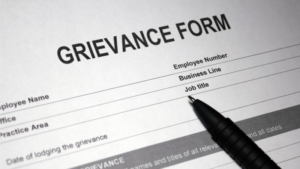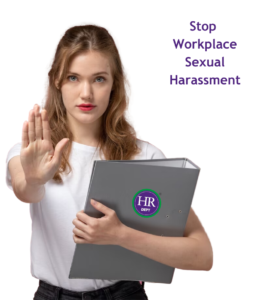Newsletter
People Matter April 2024
Introduction: According to a new report, Australian employees are experiencing “growing disillusionment” at work, resulting in them feeling less connected and included in the workplace. The 2023-2024 Inclusion@Work Index reveals that 19% of Australian employees don’t feel valued, respected, or able to contribute and progress at work. This marks a significant increase from the 12% of employees in 2021. How would your employees respond to this question? If you’d like support in increasing engagement and morale in your workplace, get in touch with the HR Dept; we’re here to help.
News: Only 3% of employees in Australia want to return to the office full time, according to a new report from Morgan McKinley’s Global Workplace Guide. More than half of the Australian respondents (56%) said they only prefer to be on-site for up to two days a week, while 24% said they want to be in-office for three to four days.
News: More than three in four Australians support the “right to disconnect” bill, including supporters of the Coalition party that wants to repeal it, according to a new report. A survey by the Australia Institute revealed that 76% of people support the right to disconnect.
News: Nearly one million people in Australia have at least two jobs, with women and younger people more likely to be working multiple jobs, according to the Australian Bureau of Statistics. This is a 1.4% increase from September 2023.
News: Women are only earning 77 cents for every dollar earned by men, according to a new report from the World Bank, which highlighted the global gender gap in workplaces across the world.
News: The Australian Government will start paying 12% superannuation on top of its Paid Parental Leave from July 2025.
News: Safe Work Australia has updated its information sheet on family and domestic violence at work to cover the recent rollout of leave entitlements to employees. The updated information sheet now states that employees can access up to 10 days of FDV leave in a 12-month period, request flexible working arrangements, and take paid or unpaid sick or carer’s leave in some circumstances.
Embracing diversity and inclusion
In today’s dynamic and interconnected world, diversity and inclusion (D&I) stand at the forefront of creating innovation, driving success, and creating a harmonious workplace environment. Here’s why prioritising diversity and inclusion is crucial for businesses:
Fosters Innovation and Creativity
Diversity brings together individuals from varied backgrounds, experiences, and perspectives. Diverse teams tend to generate more innovative solutions, challenge conventional thinking, and approach problem-solving from multiple angles.
Enhances Employee Engagement and Retention
An inclusive environment cultivates a sense of belonging and respect among employees. When individuals feel valued and respected for their unique contributions, they are more engaged, motivated, and committed to their work. This, in turn, boosts employee retention rates and reduces turnover.
Drives Better Decision-Making
Inclusive workplaces encourage diverse voices and opinions at the decision-making table. Embracing a variety of perspectives enables comprehensive analysis and informed decision-making. Companies benefit from well-rounded strategies that reflect a deeper understanding of diverse customer needs and market dynamics.
Reflects the Global Marketplace
A diverse workforce mirrors the customer base, enabling organisations to better understand, connect with, and cater to diverse customer needs. It cultivates cultural competency and adaptability, essential for success in a global marketplace.
Encourages Social Responsibility and Brand Reputation
A commitment to diversity and inclusion aligns with societal values, promoting social responsibility. Organisations that champion D&I initiatives demonstrate a commitment to fairness, equity, and societal progress.
Supports Organisational Growth and Adaptability
Diversity promotes adaptability and resilience within organisations. It enables businesses to evolve, innovate, and respond to evolving market trends and challenges swiftly.
Reach out to your local HR Dept for advice on incentives for your organisation.
Maximising the impact of feedback 
Here are key strategies to make your feedback more effective and impactful:
Be specific and actionable; Vague or generalised feedback lacks the necessary direction for improvement.
Focus on behaviour, not personality; Feedback should address behaviours or actions, not personal traits.
Balance criticism with positive reinforcement; While addressing areas for improvement it’s essential to acknowledge strengths and successes.
Timely and regular feedback; Feedback is most effective when provided promptly, allowing for immediate reflection and action.
Create a safe and open environment; Ensure a supportive environment where individuals feel comfortable receiving and giving feedback without fear of judgment or repercussions
Encourage two-way communication; Encourage dialogue and invite your employee to share their perspective.
Offer constructive solutions and resources; Accompany feedback with actionable suggestions or resources for improvement.
Reach out to your local HR Dept to learn more about this topic.
Navigating unpaid leave 
Life is unpredictable, and employees might encounter unforeseen circumstances that necessitate immediate time off, even when their leave balances run low. Understanding unpaid leave provisions becomes crucial in these scenarios.
The Fair Work Act
The Fair Work Act mandates employers to grant unpaid leave for specific circumstances where the employee is eligible, such as parental leave, carer’s leave, compassionate leave, and family and domestic violence leave. However, outside of these leave types, employers are not obligated to approve unpaid leave requests. Yet, there are instances where granting unpaid leave avoids potential discrimination claims.
Best practices for employees
When considering unpaid leave, your employees can follow these steps:
- Early notification
- Understanding company policies
- Formal request
- Discussion and planning
Vital types of rest – a guide for you and your team
Understanding and embracing the diverse types of rest can profoundly impact not only your personal life but also your team’s performance and contentment in the workplace.
- Physical rest
- Mental rest
- Sensory Rest
- Emotional rest
- Social rest
- Creative rest
- Spiritual rest
Encouraging a holistic approach to rest not only benefits individuals but also fosters a workplace culture that values the overall well-being of its employees. Reach out to your local HR Dept if you would like to learn more about this topic.
People Matter March 2024
Introduction: The Australian way of working is set to change dramatically, after the Senate passed the second Closing Loopholes bill. The bill grants employees the right to refuse contact from their employer out of hours, unless that refusal is unreasonable. It means that workers will legitimately be able to switch off from work at the end of each day – just like in years gone by! If you’d like assistance in implementing policies around this right to disconnect, get in touch with the HR Dept.
News: The Australian HR Institute has predicted that the mean basic pay increase will hit 3.7% in the 12 months to January 2025.
News: The Queensland Government has launched a new online tool that aims to enhance the awareness of First Nations staff. The First Nations Cultural Responsibility Resource tool offers businesses practical advice on cultural awareness and training to help them foster a supportive workplace environment for First Nations workers and operators.
News: Australia’s unemployment rate rose to 4.1% in January as the number of unemployed people increased by 22,000, according to data from the Australian Bureau of Statistics. It was the first time in two years that the unemployment rate had been above 4%.
News: The Western Australian Government is seeking to introduce tougher penalties for those who assault retail workers. The legislation would lift the maximum penalty for assaulting a retail worker to seven years in prison, or three years and a fine of $36,000.
News: Australia’s unemployment rate stayed at 3.9% in December 2023, data from the Australian Bureau of Statistics shows. Full-time employment also declined by 106,600, while part-time employment increased by 41,400 people, according to ABS data.
News: The Migration Amendment (Strengthening Employer Compliance) Bill 2023, which takes effect on July 1, makes it a criminal offence for employers to force or unduly influence migrant workers to work in breach of their visa conditions. The law also grants the Minister authority to bar employers from hiring any migrant workers on temporary visas if they are found guilty of exploitation.
News: Randstad’s latest Workmonitor research revealed that only 64% of Australians are putting career ambition on top of their priorities, behind work-life balance (95%) and flexible working hours (87%).
Measuring inclusion and well-being at work: building a healthy workplace culture
Creating a work environment where every employee feels valued, respected, and supported is the cornerstone of a successful and sustainable business. But how can business owners effectively measure and gauge the level of inclusion and well-being within their organisation? Here are some key strategies to consider:
Employee Surveys and Feedback Mechanisms
Implementing regular employee surveys focused on inclusion and well-being can provide valuable insights. These surveys offer anonymity, encouraging honest feedback that can pinpoint areas for improvement.
Retention Rates and Turnover Data
Monitoring employee retention rates and turnover data provides a gauge of workplace satisfaction and inclusion.
Diversity Metrics and Representation
Assessing diversity metrics within the workplace is crucial for understanding inclusivity.
Employee Participation and Engagement Levels
Engagement levels and participation in various workplace activities, such as volunteering, workshops, or diversity events, can indicate a sense of belonging and inclusivity.
Health and Absence Data
Monitoring employee health metrics and patterns of absence can reflect well-being within the workplace.
Inclusion and Well-being Programs Assessment
Evaluate the effectiveness of programs designed to enhance inclusion and well-being.
Qualitative Stories and Testimonials
Collecting personal stories or testimonials from employees about their experiences regarding inclusion and well-being can provide powerful insights.
Regular Benchmarking and Continuous Improvement
Regularly benchmarking your organisation against industry standards or similar companies helps in understanding where your organisation stands.
Measuring inclusion and well-being at work is not a one-size-fits-all approach. If you need support on how to build a healthy workplace culture, reach out to your local HR Dept; we’re here to help.
How to cultivate effective leadership 
Here are four key strategies to help build more effective leaders:
1. The complimentary fruit bowl. Providing free fruit for your team is a kind-spirited and well-intentioned way in which to promote more healthy snacking.
2. A discounted or free gym membership. Gym membership is a desirable employee benefit, as there is something for everyone: from gentle trainer-led classes to intense cardiovascular and weight-lifting regimes.
3. A cycle-to-work scheme. This promotes exercise, is good for the environment and may solve parking problems at your workplace. What’s not to like!
4. Medical benefits. Employees get the convenience and quick access to experts; and you can get poorly staff back off sick leave sooner!
5. Mental health initiatives. A cost-effective Employee Assistance Program (EAP) is advisable for almost every business.
For advice on how to instil a healthier workplace please reach out with your local HR Dept today.
Mastering the role of a support person in HR meetings
A support person, often a colleague or union representative, accompanies an employee during HR meetings for guidance and emotional support. Their primary role is to observe and provide assistance without disrupting the meeting’s flow.
Understanding the Role of a Support Person
Before the Meeting – Preparation Is Key
During the Meeting – Maintaining Professional Conduct
Managing the Meeting Dynamics
Respecting Employee Rights
Post-Meeting Follow-Up
Effectively managing a support person’s role in disciplinary meetings requires clear communication, maintaining professionalism, and upholding the meeting’s integrity. When managed adeptly, the presence of a support person can contribute positively to the fairness and transparency of disciplinary discussions.
Reach out to your local HR Dept if you would like more information about this topic.
Strategies for success for overperforming employees 
While managing underperforming employees is a common concern for managers, dealing with overperformers brings its own set of challenges. Here are some strategies for dealing with these types of employees:
- Acknowledge and appreciate excellence
- Assess impact on team dynamics
- Offer growth opportunities
- Set clear expectations
- Maintain fairness and equity
- Regularly check in to provide constructive feedback
- Encourage work-life balance
- Continuously monitor the impact on team dynamics and productivity
- Adjust strategies if necessary
- Involve the high-performing employee in decision-making processes
To know more on how to manage overperforming employees, contact your local HR Dept today.
People Matter February 2024
Introduction: As the wheels of business begin to turn in 2024, you might start to hear the term “flexidus”. Flexidus refers to mass resignations resulting from a lack of flexible options in the workplace – and it could become increasingly common in 2024, according to the experts. That’s because employees have adjusted their lives to accommodate flexible working arrangements, and simply won’t tolerate working in an environment that isn’t similarly flexible. Employers should keep this in mind when considering workplace policies – have a chat to the team at the HR Dept; we can help you avoid a flexidus in your own workplace!
News: The Closing Loopholes workplace laws were passed late last year – and we encourage all employers to stay across them, as jail time is among the significant penalties for employers if they violate the laws. Changes in the legislation include:
- Stopping companies underpaying workers through the use of labour hire
- Criminalising intentional wage theft
- Introducing a new criminal offence of industrial manslaughter
- Better supporting first responders with PTSD
- Better protecting workers subjected to family and domestic violence from discrimination at work
- Expanding the functions of the Asbestos Safety and Eradication Agency to include silica
- Closing the loophole in which large businesses claim small business exemptions during insolvency to avoid redundancy payments
News: The number of casual employees in Australia recently hit a new record of 2.73 million, according to the Australian Bureau of Statistics. An estimated 554,000 are long-term casuals who would like to become permanent employees, according to ACTU.
News: Three in 10 employers in Australia are offering unlimited annual leave days amid strong demand from employees, according to a report from Robert Half. Another 37% said they plan to offer the benefit in the future.
News: Australia’s unemployment rate stayed at 3.9% in December 2023, data from the Australian Bureau of Statistics shows. Full-time employment also declined by 106,600, while part-time employment increased by 41,400 people, according to ABS data.
Understanding the Pros and Cons of Office Romances
Love is in the air at this time of year. While blossoming romances may set pulses racing for the couples involved, they may also raise blood pressure for business owners or managers like you, if they are workplace relationships.
relationships.
Some employers choose to ban relationships outright, but this is difficult, awkward and time-consuming to police.
A better approach, we would normally advise, is to have very clear policies about acceptable behaviour. You may choose to have a workplace relationship policy. Naturally the onus would be on you and any senior colleagues to lead by example, creating a positive workplace culture.
You will have your own thoughts on what is and isn’t acceptable within your company, but here are a few basic principles which can be considered a starting point.
Be particularly wary of relationships where there is an imbalance of power – such as between managers and their employees. This can lead to problems around discrimination (direct or indirect), as well as dissatisfaction amongst the wider team who may experience real or perceived bias.
As in any setting, mutual consent is a fundamental part of a relationship. Where this isn’t present, sexual harassment is a risk and could lead to much anguish and ultimately, for you, an employment tribunal.
Whether a relationship is a long-term success or ends abruptly there will probably be consequences for the company. This could include losing staff, rearranging teams, managing conflicts of interest, harassment, bullying and hostile working environments.
All of these need to be considered when devising a policy so that you can manage fluid, complex situations effectively.
For advice on understanding the Pros and Cons of office romances and any of the other ideas above, get in touch with your local HR Dept today.
Let them eat cake! Five alternative ways to instil a healthier workplace 
Five ways to promote a healthy workplace without banning cake:
1. The complimentary fruit bowl. Providing free fruit for your team is a kind-spirited and well-intentioned way in which to promote more healthy snacking.
2. A discounted or free gym membership. Gym membership is a desirable employee benefit, as there is something for everyone: from gentle trainer-led classes to intense cardiovascular and weight-lifting regimes.
3. A cycle-to-work scheme. This promotes exercise, is good for the environment and may solve parking problems at your workplace. What’s not to like!
4. Medical benefits. Employees get the convenience and quick access to experts; and you can get poorly staff back off sick leave sooner!
5. Mental health initiatives. A cost-effective Employee Assistance Program (EAP) is advisable for almost every business.
For advice on how to instil a healthier workplace please reach out with your local HR Dept today.
Top 5 tips for using social media effectively in HR 
Here are five ways that social media can help your HR function:
1. Attract talent. A strong social media presence helps you to shape the way that potential candidates will perceive your brand, helping you to attract the right kind of people for your firm.
2. Find talent. As well as posting vacancies, platforms such as LinkedIn allow you to reach out to potential candidates directly.
3. Engage employees. Messaging apps like Google Hangouts can let you talk to employees, wherever they’re based.
4. Deliver training and development .Trying to corral everyone into a room at a set date and time to deliver training is a thing of the past thanks to social media.
5. Obtain feedback. Searching social media platforms for company mentions can give some useful insights into how you’re perceived.
As you can see, using social media effectively in HR can be tricky! If you need a little help on how social media help your HR function correctly, please get in touch with the HR Dept.
Addressing productivity in your SME before turning to overtime 
A focus on productivity has never been more important. We would always suggest having your staff on board with your vision and giving them an accurate understanding of how the company is performing. This is an excellent step to improving productivity.
So too is looking at job descriptions and workloads to ensure goals are achievable and that your team are not working under too heavy workloads.
If you would like help setting up well-thought-out overtime schemes or wish to address productivity issues, please get in touch with your local HR Dept office.
People Matter January 2024
Introduction: As we head into 2024, business leaders are urging employers to be aware of the risk of burn-out amongst their workforce. According to the latest International SOS Risk Outlook Report for 2024, burn-out will significantly impact businesses in the coming year. Worryingly, only 41% of respondents feel their organisations are equipped to deal with this mental health challenge. Why not using the start of a new year to take a look at your workplace wellbeing programs, and consider what might need to be put in place to look after your team? The HR Dept can help; get in touch with us today if you’d like some assistance.
News: The Australian Human Rights Commission now has the power to investigate and enforce “positive duty,” which imposes a legal obligation on employers to take steps to prevent relevant unlawful conduct including:
- Discrimination on the grounds of sex in a work context
- Sexual harassment in connection with work
- Sex-based harassment in connection with work
- Conduct creating a workplace environment that is hostile on the grounds of sex
- Related acts of victimisation
News: Job ads in Australia declined 4.3% in November, according to the latest SEEK Employment Report, which found that demand for workers remains strong despite the decline trend this year.
News: The Australian Government’s new Skills in Demand visa will replace the Temporary Work (Skilled) visa (subclass 457) as the country’s main temporary skilled work visa, in a move to end the exploitation of migrant workers. The Government has also chosen not to limit the popular working holiday visa to one year, instead exploring alternative measures to attract foreign workers to regional areas.
News: Under new Fair Work legislation, a fixed–term contract can’t be for longer than two years – including any extensions or renewals.
News: The gender pay gap in Australia dropped to a new record low of 21.7% in 2023, according to the latest data from the Workplace Gender Equality Agency. Annually, this means the pay difference between men and women has narrowed by $1,322 – but there is still a gap of $26,393.
New Year’s resolutions for your SME
Accompanying the new year for many SMEs are goals and resolutions, such as the following:
I want to retain my best staff
Retaining your staff is far more cost-effective than recruiting and training new employees. A variety of aspects can contribute to retention.
For example, giving your employees the chance to improve their skillsets will make them feel valued. Additionally, upskilling your team will help you fill any recruitment gaps you have experienced from within.
I want to improve diversity, inclusion and equality
A workplace encouraging diversity, equality and inclusion (DEI) can reap rewards – from making your company more successful to being able to better serve a more diverse range of customers.
Improving diversity, equality and inclusion within your business needs to be a genuine shift in your culture and values. A great place to start is with your recruitment process.
I want to boost productivity
Introducing regular appraisals can be a great way to provide your staff with direct feedback on their progress and performance and can help keep them on track. They are an opportunity to cascade your business strategy throughout the company to push everyone towards achieving its objectives.
I want to improve my HR processes and procedures
The beginning of a new year is the ideal time to hit the reset button, and one way you may choose to do this is by refreshing your workplace policies.
For advice on adjusting and improving your HR procedures and any of the other ideas above, get in touch with your local HR Dept today.
The grey area that is accessing medical records 
As an employer, it’s useful to know the medical background of an employee, if only to accommodate them better in the workplace. But, how much information can you access before you begin to breach privacy laws?
Private information versus personal information – there’s a difference! Private information is the information an employee chooses to keep to themselves. Personal information, on the other hand, is the information that is used to identify an individual, such as name, address, phone number, bank account details, government identification numbers, academic records, and medical information.
It’s worth taking the time to understand the privacy laws in your State, to avoid any legal breaches. Being aware and compliant with policies about privacy can help build trust and boost motivation and loyalty in the workplace.
Obtaining medical information can be complicated, so please reach out to the HR Dept if you need help.
Common questions around overtime 
Overtime is work performed by an employee outside of their ordinary hours. It’s defined as any work done:
- Beyond your employee’s maximum daily or weekly ordinary hours of work
- Outside a part-time employee’s agreed number of hours
- Outside the spread of ordinary hours
Can I just ask my employee to work overtime? Yes, but the Fair Work Ombudsman makes it clear that employers can only request that an employee works reasonable overtime.
“Reasonable” takes into account the following factors:
- Risk to health and safety from working the extra hours
- The employee’s personal situation, including their family responsibilities
- The needs of the workplace
As you can see, navigating overtime can be tricky! If you need a little help ensuring you request and implement overtime correctly, please get in touch with the HR Dept. We can help with all your staffing issues.
New year, new you, new business success 
The end of the year is a great time to take stock of what you’ve achieved over the past year and to set goals for the next 12 months.
When you’re a small business owner, you’re so busy dealing with the daily deluge of tasks and responsibilities, it can be hard to make time to step back and see the bigger picture.
This year, try to make business planning a weekly event. Regular, shorter business planning sessions can help to ensure that your business is developing in the right way, giving you time to set new directions or tweak existing goals.
People Matter December 2023
Introduction: As we head into the holiday season, you might find that you’re becoming inundated with questions regarding leave. If you’re finding that leave enquiries are starting to pile up, make your life easier by having one central point of knowledge, such as a company leave policy.
An up-to-date and well communicated leave policy can inform employees on important points such as: how to request leave, when leave can be taken, rules regarding unused leave and so on. Another useful step to streamline your holiday management is to use HR software specifically designed to automate the process.
News: The unemployment rate increased by 0.2 percentage points to 3.7 per cent in October (seasonally adjusted), according to data released today by the Australian Bureau of Statistics.
Bjorn Jarvis, ABS head of labour statistics, said: “With employment increasing by 55,000 people, and the number of unemployed people increasing by 28,000, the unemployment rate rose to 3.7 per cent in October. This was back to around where it had been in July and August.
“The large increase in employment in October followed a small increase in September of around 8,000 people.”
News: Key changes to the Professional Employees Award 2020 came into operation in September. The key changes include new obligations for the payment of overtime and penalty rates and record-keeping requirements for employees covered by the Professional Employees Award.
News: Wages in Australia grew 1.3% in the September quarter to mark the country’s highest quarterly growth on record, according to the Australian Bureau of Statistics. The annual wage growth was at 4% – and is also the highest since the March quarter of 2009.
News: The previous financial year has seen overtime increase in 35% of Australian organisations. According to a survey from Hays, 30% of employers that increased overtime did so by five hours per week on average. Another 36% increased overtime between six and 10 hours per week.
News: According to SEEK, job ads declined 1.8% in September, with the science and technology industry being the only sector to report a monthly increase (3.5%) in job ads.
How to manage an employee under the influence of alcohol
 Find out how best to deal with an employee who is potentially under the influence of alcohol with our top tips below:
Find out how best to deal with an employee who is potentially under the influence of alcohol with our top tips below:
Meet immediately with the employee as soon as it is brought to your attention that they may be under the influence. There may be an innocent explanation. For instance, some medications can cause drowsiness and some illnesses can impair mobility. Therefore, it is important to assess the situation and establish whether the employee is under the influence of alcohol or illegal drugs.
Having a policy that clearly sets out your company rules on drugs and alcohol in the workplace is essential. It will help you work out what to do next. If the employee is under the influence of alcohol, you can refer to your policy and explain the steps. This may be a gross misconduct issue that could result in summary dismissal. If the employee is obviously incapable of working safely then they should be suspended on full pay pending further investigations.
At a later date, invite the employee to an investigative interview. Interview witnesses and try to build a complete picture. Is it a one-off following a personal problem or celebratory event? Or is there an underlying addiction? Does your policy have a support system in place for addiction?
If you’re in need of an alcohol policy, setting up testing or would like to train your managers on how to deal with alcohol in the workplace, contact your local HR Dept today. We are here to help.
Managing holiday requests
Most workers have the statutory right to four weeks of paid leave each calendar year. However, juggling leave requests can be tricky, especially during busy periods and the peak summer holiday season. So, how do you manage leave requests fairly, while ensure the wheels of business keep smoothly turning?
The solution is to implement a straightforward leave policy and communicate it to all employees. Check in with staff regularly to remind them of the leave policy. This is especially important if you shut down your business over Christmas, or if there are times when no leave is allowed due to business pressure.
How you manage leave requests as a business is crucial to the efficiency, productivity and engagement of your employees. If you’d like help creating a leave policy, or advice on handling leave requests, please contact the HR Dept.
Managing the risk of Christmas decorations in the workplace 
It’s important to bear in mind health and safety when decorating the office in tinsel, glitter and baubles.
The first step to having a festive workplace is putting up the decorations. In all the excitement many would be forgiven for thinking there’s no harm in quickly grabbing a chair to stand on and asking someone to pass the Blu Tack and mistletoe. However, this opens up the risk that employees might injure themselves as they stretch to decorate the tree or fix stars to the ceiling.
And then there are the dangers when the decorations are up. Decorations can be a potential fire or trip hazard, with all the extra bits and pieces lying around, as well as the tree and the tree’s lights.
Christmas isn’t an excuse: employers are still liable for injuries in the workplace.
How to play it safe with Secret Santa in your business 
To make sure Secret Santa goes smoothly in your business, take a look at our HR advice below:
No pressure: When proposing a Secret Santa or gift exchange amongst your employees, make sure to point out that participation is optional.
Budget friendly: It’s a good idea to set a budget for your Secret Santa game to reduce the risk of employees overspending on their gifts.
Gift guidance: To save them (and you) the embarrassment, it would be wise to provide some guidance on gift giving.
People Matter November 2023
Introduction: As we come out of Mental Health Month in October, it’s a timely reminder to check in with your workforce’s mental health and wellbeing – as the latest research points to many employees feeling more stressed and less supported at work.
A report from ADP found that Australian employees are getting less support from their managers, despite feeling more stressed. According to the survey, 57% of employees are stressed to the point that it is affecting their work performance.
Despite this, the number of employees saying they feel supported by their managers declined to 56% in 2022, down from the previous 66% in 2021.
Now, more than ever, employers need to take responsibility for their team’s wellbeing – both in terms of their mental and physical health. If you would like assistance with employee wellbeing, please get in touch with the HR Dept – we can help!
News: Private health insurer Medibank has begun a trial of a four-day work week in an effort to improve employee satisfaction. Medibank is offering 250 of its employees a six-month trial of the four-day work week. The trial was designed with 4 Day Week Global, and will be monitored and measured by Macquarie University’s Health and Wellbeing Research Unit.
News: The Australian Government has introduced a bill that will increase paid parental leave to 26 weeks by July 2026. The Paid Parental Leave Amendment (More Support for Working Families) Bill 2023 wants to add two additional weeks to Australia’s current 20 weeks of paid leave starting July 2024.
News: The Federal Government is set to launch a new initiative that aims to make workplaces more inclusive for employees with caring responsibilities. The new Carer Inclusive Workplace Initiative will help employers develop and adopt practices to support carers, according to the government on Thursday.
News: A new report has found that one in two Australian employees have experienced bullying, harassment, and inappropriate behaviour at work. A survey by the Australian Workers revealed that 49.87% have experienced “poor workplace relationships”.
How to hold on to quality employees
Rather than seeing employee retention as an insurmountable problem, we believe employers should see the Great Resignation as a challenge. With a little bit of lateral thinking, you can attract and retain the best of the best.
Get to know your employees Take the time to get to know your workforce beyond their resume and qualifications. By taking the time to get to know each employee on a personal level, you’ll be in a better position to understand his or her motivation, goals and any external pressures – and respond accordingly.
By showing compassion, understanding and patience towards your employees, you’ll be rewarded with an engaged, committed workforce.
Create a “safe” workplace It’s important that your employees feel safe to learn, fail and make mistakes in the workplace, without fear of repercussions.
Recognise employee achievements When an employer is recognised for their contribution, they immediately feel worthwhile, and like they’re playing a part in achieving a greater goal.
Evaluate your company culture Increasingly, people are looking for purpose-driven roles that align with their values. As such, it’s a good time for businesses to consider their own vision and mission statements.
Implement a flexible workplace Today’s workers want mobility and flexibility in the workplace. Flexible workers are not only happier, they’re also more productive.
Set achievable goals and communicate often Setting goals is an essential part of employee retention. Not only does it allow for accountability and professional growth, making ambitious goals can keep your team feeling motivated and valued.
Prioritise mental health Make it known that your company is focused on employee mental health – encourage mental-health days, flexible work schedules, and access to mental-health initiatives.
An employee is looking for another job. What can I do about it?
What can you do when you learn of an employee looking for another job?
- Have a contingency plan Review draft job specs regularly as your business grows and build a knowledge base of useful information that could be made readily available to a new hire.
- Don’t jump the gun Try some open-ended questions to better understand their position.
- Move on and gain from it Sometimes people need to move on for career progression and you might not have an available opportunity for them. In addition, keeping an employee who doesn’t really want to be there can end up being detrimental to your business and disturb the culture.
When they do leave be sure to conduct an exit interview. This can be hugely beneficial intel for you. And if you need assistance, get in touch!
What is the key to effective internal communication?
How should you communicate with your wider workforce, and what is the key to effective communication with employees?
First, it’s a good idea to consider your audience. Does everybody across your workforce need to know or only those concerned? When your message is good to go, it’s time to consider your method of communication. If you’re stumped as to how to get your message out there without email, why not try one of these?
Face-to-face. Call a company meeting. This can reduce the risk of misinterpretation and you can take questions there and then.
Mobile first. If your team are dispersed in the field, an internal communications app could work well for your business.
Instant message. Messages come with read receipts and your thread can be safely backed up in the cloud.
Top ten office distractions and what you do about them 
The productivity of your team is vital to the success of the business, but all too often employees can become distracted and lose valuable time which should be spent working.
The Most Common Office Distractions
- Phones
- Meetings
- An untidy desk
- Loud talkers
- Unexpected visitors
- Constant emails
- Tea rounds
- Office gossip
- People typing loudly
- Environment
For staff training, policies or difficult conversations The HR Dept can help create a harmonious and happy workforce. Just give us a call!
People Matter October 2023
Introduction: As much as you may not want to admit it, the festive period is just around the corner! With that in mind, it might be worth checking in with the new employer obligations around business shutdown periods.
As of 1 May 2023, employers are prohibited from directing employees covered by any of the 78 impacted modern awards to take unpaid leave during any business shutdown periods.
If the employee has a sufficient annual leave balance:
- An employer can’t tell the employee to take annual leave
- Can mutually agree with the employee to take paid annual leave during the shutdown period; this agreement must be in writing
If the employee does not have a sufficient leave balance:
- The employee can come to a mutual agreement with the employer to take unpaid leave for the shutdown period; this must be in writing
- If the employee’s Award permits, the employee can agree to take annual leave in advance during the shutdown period
If the employee does not have a sufficient leave balance and does not agree to take unpaid leave or leave in advance:
- The employer can allow the employee to work
- The employer must pay the employee for the time for which annual leave cannot be taken
Need advice or assistance? Have a chat to the team at the HR Dept – we’re here to help!
News: A Robert Half poll has found that 45% of employers are seeing more shortlisted candidates negotiating their compensation this year than last year. Another 40% said more of their current staff are negotiating their compensation this year.
News: The Australian Government is being urged to lift red tape and tax barriers preventing other talent pools from joining the workforce as the country’s regional areas are hit hard by a labour shortage.
News: Although 88% of Australian employers support a compressed work week, only 49% would offer it, according to a recent survey.
News: The South Australian government is rolling out new work health and safety regulations to help employers minimise the risk of psychological harm in the workplace. The new regulations, which are under the Work Health and Safety Act 2012, will take effect in December 2023.
How inclusivity helps with workplace mental health
 Did you know that one in four people will experience poor mental health at some point in their lives?
Did you know that one in four people will experience poor mental health at some point in their lives?
Underrepresentation, feelings of isolation or being subject to unequal treatment can all contribute to poor mental health. With a significant proportion of daily life being spent at work, the workplace has an important part to play in making a positive difference.
A mentally healthy workplace is not just important for employees, but the wider business too. Staff retention, productivity, attendance, engagement, and company culture all benefit.
Employers have a duty of care to manage and maintain the health and safety of their staff. This includes assessing stress-related risks to protect workplace mental health.
Workplace mental health is a broad term and there are many ways in which employers can look to improve this and the well-being of their staff.
Often, mental health support is provided when someone is already suffering, but preventative measures are important too.
For example, to reduce the risk of employees feeling underrepresented or isolated employers can consider improving diversity and inclusivity.
Social distancing created new challenges for inclusivity, but a rise in digital communication has shown that it is possible to keep inclusivity at the heart of a business, no matter the distance.
A mentally healthy workplace is one that treats everyone equally and allows everyone to thrive. If you’re seeking advice on a workplace well-being strategy that meets the unique needs of your business, please get in touch with the HR Dept for further information.
How to be an employer of choice
 With a little bit of common-sense thinking (and support from the HR Dept), you can quickly become an employer of choice, attracting and retaining top talent. Here’s how:
With a little bit of common-sense thinking (and support from the HR Dept), you can quickly become an employer of choice, attracting and retaining top talent. Here’s how:
- Take time to onboard new employees. We recommend implementing customised performance and development plans, with regular check-ins on progress.
- Upskill your existing workforce, particularly in areas of digital technology.
- Promoting from within is an effective way of increasing productivity and improving staff morale.
- Evaluate your company culture. Increasingly, people are looking for purpose-driven roles that align with their values.
- Implement a flexible workplace. The pandemic opened many employers’ eyes to the benefits of flexible and hybrid working.
- Setting achievable goals is an essential part of employee retention.
- Communicate often and check in regularly to ensure everyone is feeling motivated and productive.
- Prioritise mental health; make it known that your company is focused on employee mental health.
Do your policies match your values?
 Values should generally be a good thing for a company. Defined and enacted well, they can help give you clarity about your purpose. This can differentiate you from your competitors, assist you in attracting staff who are a good fit, and help inform your decision-making. For example, here at The HR Dept, one of our values is to be “The voice of the SME”.
Values should generally be a good thing for a company. Defined and enacted well, they can help give you clarity about your purpose. This can differentiate you from your competitors, assist you in attracting staff who are a good fit, and help inform your decision-making. For example, here at The HR Dept, one of our values is to be “The voice of the SME”.
Commit your values to an internal document – a single source of truth if you like – which you can then use to create other documentation; marketing yes, but also your people policies.
Policies are separate from any cultural guidelines that are born out of your values.
Ultimately, the way your people behave will be governed by your company policies. They guide staff in how to act, and give you the framework to respond should they fall below the standards expected of them.
If you need help with your policies, please reach out to the HR Dept.
Watch this space for major changes to the Fair Work Act
 As you’re no doubt aware, there have been major amendments to the Fair Work Act. On September 4, the Government introduced another Bill to Parliament that will make further, major amendments to the Fair Work Act. The Fair Work Legislation Amendment (Closing Loopholes) Bill 2023 is 278 pages long and, if passed later this year, will have a huge impact on employers and current workplace arrangements, as it leans towards being pro-employee and pro-union.
As you’re no doubt aware, there have been major amendments to the Fair Work Act. On September 4, the Government introduced another Bill to Parliament that will make further, major amendments to the Fair Work Act. The Fair Work Legislation Amendment (Closing Loopholes) Bill 2023 is 278 pages long and, if passed later this year, will have a huge impact on employers and current workplace arrangements, as it leans towards being pro-employee and pro-union.
Keep an eye on updates from the HR Dept to find out which amendments are passed, and what the implications are to employers.
People Matter September 2023
Introduction: The gender pay gap in Australia has fallen for the second year to hit 13%, according to data from the Australian Bureau of Statistics. This means for every dollar a man earns in Australia, a woman makes 87 cents. Annually, this means women earn, on average, $13,120 less than men each year.
At the HR Dept, we encourage employers to address the gender pay gap and make efforts to narrow it where possible. Doing so has numerous benefits for the company, including:
- Valuing the work of Australian women fairly and equally
- Driving better company performance, productivity and profitability
- Delivering meaningful, systemic change
We encourage employers to regularly examine and audit their own pay structures, to ensure salaries are fair and equal. It sends a positive message to all staff – male and females alike.
News: Fewer jobs had wage increases this quarter, according to the ABS, but the average wage increases received were higher. The Wage Price Index rose 0.8% in the June quarter 2023, while it eased annually to 3.6%.
News: Three in four organisations across the world are considering or implementing bans on ChatGPT and other generative AI apps on their employees’ work devices, according to research from BlackBerry Limited. Among those already implementing or considering a ban, 61% said these restrictions are intended to be long term.
News: A consultant at Insurance Australia Group has been fired after monitoring technology revealed that she was not meeting the minimum keystrokes that were expected from her per hour. The consultant raised the matter to the FWC, but was overruled.
News: Around 9 in 10 Australian businesses have implemented mandatory return-to-office policies. Research from Robert Half found that 87% of companies are mandating staff to come to the workplace. The number of days per week required is as follows:
- Five days (19%)
- Four days (28%)
- Three days (26%)
- Two days (12%)
- One day (2%)
News: To assist in understanding rights and responsibilities in relation to sexual harassment and sex-based discrimination in the workplace, the Australian Human Rights Commission has established the Respect@Work Information Service. The service is free and confidential and also provides appropriate referrals.
How to manage a negative employee

Negative employees can be real energy zappers. Their negativity can be contagious and halt productivity for the wider team. Persistent negative energy can impact the mood and stress levels of everyone, which can affect productivity and customer service.
Four steps to tackling negativity:
- Have a quiet word
Have a private, informal chat. There is a chance that they hadn’t realised how their actions were being perceived. Or they may decide to use this opportunity to reveal a problem that they have been struggling with. - Support and divert
If the employee fails to acknowledge their negativity and proceeds to blame colleagues, processes or anything but themselves, see if you can change their mindset. Explain the impact of their behaviour and suggest to them alternative ways of thinking. Make it clear they must change as the impact on the team cannot go on. - Schedule a follow up
Let the employee know that you are monitoring their behaviour and wellbeing. Use the meeting to review any actions agreed from your previous catch up. If you have tried to reason with the employee and they are not showing any signs of improvement, it’s time to start the process of exiting them from the business. - Consider the working environment
A proactive approach to dealing with negativity can include making small changes to the working environment. Natural light, vibrant colours and even plants have all been known to boost positivity, inspiration and morale. Happy employees lead to better productivity, happy customers and more business.
If you would like further advice or ideas on how to manage a negative employee, give us a call.
How to address poor time management with employees

If employees are providing excuses when you ask them for an update on a task or project, you may need to address their time management. Leading by example will not only solve the problem going forwards, but also foster trust and respect from your workforce.
Five common causes of deadline delays:
- They are not prioritising their workload
2. They are distracted by co-workers
3. They honestly don’t have the time - They are ill-equipped to complete the work
- They are unskilled or lethargic
Each of these examples requires its own remedy. After sitting down with an employee and asking them some questions about their workday, the direction that you need to take may become quite clear.
If you would like to discuss how to improve efficiencies for your workforce, or introduce time management training to your team, get in touch with your local HR Dept.
Help your employees through the dark days of winter

Here in Australia, we’re approaching the end of what’s been a long, grey winter. You may have noticed that your workforce seems a little more down than usual – and that’s totally normal. It’s not uncommon for people to experience “seasonal affective disorder” in winter; it’s a form of depression that’s triggered by colder, darker weather.
As an employer, you can also make a few simple changes in the workplace to ease some of the pressure on your team:
- Encourage employees to find a work-life balance.
- Encourage conversations that aren’t just about work.
- Ensure your employees know where to access mental health support. This may be through an Employee Assistance Program (EAP) or, via support lines such as Lifeline or Beyond Blue.
If you need help supporting your employees, please reach out to the HR Dept.
How to increase employee engagement with one simple tool

There’s one simple, surefire way to keep employees engaged: recognition. Employees are more willing to show loyalty to their employer if they feel valued and rewarded.
When you’re made to feel competent and masterful, dopamine is released in your body, which is a motivation enhancer. When you’re made to feel autonomous and self-motivated, serotonin – the mood-boosting chemical – is released.
At the HR Dept, we believe it’s worth making an effort to keep employees engaged. After all, engaged employees are more productive, more motivated, and less inclined to look for alternative employment!
People Matter August 2023
Introduction: Could the five-day working week soon become a thing of the past? Current research certainly seems to indicate so! Recently, researchers from Swinburne University of Technology interviewed senior managers from Australian businesses who have implemented a four-day working week. The managers gave the four-day work week model a 9.2 score out of 10, citing its benefits for retention, attraction, and productivity.
Would you be interested in trialling a four-day work week? Have a chat to the team at the HR Dept if it’s a model that you think might be effective in your workplace.
News: On June 9, the Australian Government deposited the instrument of ratification of the Violence and Harassment Convention, 2019 (No 190). In simple terms, this a commitment to eliminating workplace violence and harassment, as well as child labour, in Australian workplaces.
News: According to research from the Manpower Group, 46% of Australian employers say they plan to increase their number of employees in the next 12 months. Another 38% aren’t expecting any changes in their headcount, while 12% are anticipating a decrease.
News: The Western Australian Industrial Relations Commission has awarded compensation to a worker who had his work hours reduced. The worker was employed by the Nullagine Community Resource Centre on a full-time basis of 38 hours per week, which was later reduced to nine hours per week.
News: Australian workplace reforms on bargaining and flexible work arrangements that were introduced under the Secure Jobs, Better Pay legislation are now officially in effect.
News: Australia’s award workers will be getting a 5.75% wage increase starting July 1. In its Annual Wage Review Decision, the Fair Work Commission said the national minimum wage will be increased to $23.23 per hour. The FWC also made a change to the base rate of the minimum wage, where employees on the national minimum award will see an 8.6% increase.
News: The average time to hire an employee is now 44 days, according to a report from Global Talent Climate, which is an all-time high.
Five top tips when welcoming a new employee

If you have somebody lined up to join your organisation soon, make sure you read our top tips below on how to achieve an effective induction process for new employees.
One: Send their contract. The offer letter or contract should be sent out as soon as possible. Most interviewees won’t hand in their notice until they receive this. The terms must reflect the ones discussed at interview as contracts can be oral as well as written. This document should state who their line manager will be and who will meet them on their first day.
Two: Keep in touch. When changing jobs most people are required to work a notice period which means there could be sometime between them accepting your job offer and starting with you. During this time, it’s a good idea to maintain contact.
Three: Day one prep. Ensuring that all of the necessary equipment is ready for them to start work, from PC to phone, name badge and (if appropriate) business cards, can help them feel prepared to hit the ground running.
Four: Induction timetable. Induction training is key to giving the employee a real feel for workplace culture and their role in the business’s success.
Five: Terms and conditions. Make sure to allocate some time to talk through the terms and conditions of their employment and key policies such as how to book holiday or report an absence.
Planning an effective induction can take time away from day-to-day tasks. Get in touch with your local HR Dept if a helping hand with inductions could benefit your business.
Managing introverts and extroverts in the workplace

Personality has many facets, but one somewhat binary example to consider is whether each employee is an introvert or an extrovert. Understanding this could help you take your team to the next level.
Extroverts get their energy from other people. They thrive on social contact, moving around, talking to people, being vocal in meetings, thinking on the fly, multi-tasking, making quick decisions and articulating their thoughts as they go along.
Speaking generally again, introverts prefer the quiet. They work better alone or in small groups and like to focus on one task at a time. They are more likely to reflect on questions asked of them, taking time to formulate their answers.
Here are some top tips for ongoing management:
- Design meetings with introverts in mind
- Coach your extroverts to listen to the introverts
- Make sure your workplace works for extroverts and introverts
We can advise on how to manage personalities in the workplace, so if of interest please contact your local HR Dept office.
Why assisting departing employees is good for your business

Redundancies are sometimes necessary when a business is forced to change and adapt, but the process must be handled with care.
One way in which employers can address this is through making additional support available for employees who are being made redundant. This is known as outplacement and should be seen as a way to reinvest in the business. Outplacement is a HR function which seeks to provide redundant employees with the best possible start in finding their next job opportunity.
Providing outgoing employees with outplacement support can help them to remain positive, whilst also offering guidance on things like CV writing and interview skills development.
Beyond this, outplacement can help a person to discover a new career pathway, access e-learning and build on the skills they need for a positive career move.
If you are facing difficult redundancy decisions for your workforce, contact the HR Dept for more information on outplacement.
Supporting an employee at risk of domestic abuse

Domestic abuse is any incident or pattern of incidents of controlling, coercive or threatening behaviour, violence or abuse between those aged 16 or over who are or have been intimate partners or family members, regardless of gender or sexuality.
Domestic abuse can encompass, but is not limited to, the following types of abuse: psychological, physical, sexual, financial, emotional.
If you need advice on developing and implementing best practice support for victims of domestic abuse in the workplace, please contact the HR Dept – can help ensure that all your employees are supported in these domestic abuse situations.
The HR Dept is, of course, here to help and advise.
People Matter July 2023
Intro: Could the five-day working week soon become a thing of the past? Current research certainly seems to indicate so! Recently, researchers from Swinburne University of Technology interviewed senior managers from Australian businesses who have implemented a four-day working week. The managers gave the four-day work week model a 9.2 score out of 10, citing its benefits for retention, attraction, and productivity.
Would you be interested in trialling a four-day work week? Have a chat to the team at the HR Dept if it’s a model that you think might be effective in your workplace.
News: On June 9, the Australian Government deposited the instrument of ratification of the Violence and Harassment Convention, 2019 (No 190). In simple terms, this a commitment to eliminating workplace violence and harassment, as well as child labour, in Australian workplaces.
News: According to research from the Manpower Group, 46% of Australian employers say they plan to increase their number of employees in the next 12 months. Another 38% aren’t expecting any changes in their headcount, while 12% are anticipating a decrease.
News: The Western Australian Industrial Relations Commission has awarded compensation to a worker who had his work hours reduced. The worker was employed by the Nullagine Community Resource Centre on a full-time basis of 38 hours per week, which was later reduced to nine hours per week.
News: Australian workplace reforms on bargaining and flexible work arrangements that were introduced under the Secure Jobs, Better Pay legislation are now officially in effect.
News: Australia’s award workers will be getting a 5.75% wage increase starting July 1. In its Annual Wage Review Decision, the Fair Work Commission said the national minimum wage will be increased to $23.23 per hour. The FWC also made a change to the base rate of the minimum wage, where employees on the national minimum award will see an 8.6% increase.
News: The average time to hire an employee is now 44 days, according to a report from Global Talent Climate, which is an all-time high.
Protect your business from email attacks
There’s no question that Australian businesses are under threat online. According to research from Accenture, security breaches have increased by 11% since 2018, and 67% since 2014.
Of particular threat to business owners and employers are “business email compromise” (also know as “BEC”) attacks – which you’ll no doubt already be familiar with. These email attacks involve scammers emailing employees to trick them into sending money or divulging confidential company info.
These types of cyberattacks tend to be:
- Requests for money, especially if urgent or overdue
- Bank account changes
- Attachments
- Requests to check or confirm login details
What can employers do to protect their business?
- Incorporate, update and regularly repeat cybersecurity training and awareness amongst your employees. Research has shown that only around 51% of Australian companies train their staff in cybersecurity awareness
- Implement simulated BEC attacks, just as you do with fire drills
- Establish an access control system to determine who should have access to what
- Restrict administrator privileges to an ‘as-required’ basis
- Do not share passphrases, for example, individual logins
- Remember to revoke accounts when employees leave the business
- Use strong passphrases
- Use with multi-factor authentication
- Create a cybersecurity incident response plan
- Reward employees who find threats
- Create a cybersecurity culture and encourage regular discussions
- Always be cautious of emails with unusual requests
It’s also worth talking to your IT department about investing in cybersecurity systems, to ensure that the BEC attacks never hit employee inboxes in the first place.
Have a chat to the team at the HR Dept to see how we can help implement policies and procedures to keep your business safe from cybercrime.
Don’t skip the exit interview
An exit interview presents a good opportunity to learn from your departing employee. Use this time to ask for feedback about their time with you, what did they feel went well or could have gone better.
You may think you already know their reason for leaving, nevertheless an exit interview gives you the chance to find out for certain and ask questions. At this point, an employee is more likely to be open and honest with you and you can gain valuable insight into your business.
Not only is it helpful to part ways on good terms for well-being and reputation, but it minimises the risk of a future claim coming back to bite you.
What if the employee is not leaving voluntarily? You will have likely had meetings with them relating to dismissal, but an exit interview has a different purpose and there are still benefits to be gained from conducting one.
How to handle flexible working requests
Flexible working: everyone has the right to request it, and all employees have the right to take their employer to tribunal if they suspect they’ve been discriminated against.
First things first, spell out what flexible working provision your business will provide, and make sure it’s in your employment handbooks. Your wording should outline the employees’ right to request flexible working, how they should apply and that each case will be evaluated on its own merits within the framework of your policy.
When you meet with the employee to discuss their request, explore all the options. Be creative and you may find an alternative solution that caters to both their needs and the needs of your business.
When you are in the position where you need to reject a flexible working request, make sure you have a legitimate business reason. If you’re unsure, play it safe and seek advice.
How to Support Employees Affected by Travel Disruptions
Upon first hearing that an employee is stuck on holiday and won’t be able to return to work as planned, you’ll need to find out more information.
Your options for helping the employee:
- Could you agree an extension to their leave? Paid or unpaid?
- You may consider offering them a short-term loan.
- Can you help with distributing some of their work to the team, or updating their out of office message?
If you’re dealing with this and would like a helping hand from HR, give us a call.
People Matter June 2023
Intro: The last month saw the release of the Federal Budget 2023-24 – with plenty of implications for Australian employers. Primarily, the budget addresses workplace safety, putting in place various measures to make Australian workplaces safer and healthier.
- The budget has earmarked $4.4 million for the establishment of the National Construction Industry Forum, which will provide the building and construction industry advice on workplace safety, culture, skills, productivity, and gender equality.
- Another $2 million will be invested in Commonwealth Work Health and Safety Regulations to manage psychosocial hazards at work.
- The budget also provides support for job seekers, young people, First Nations communities, and Pacific Island workers.
If you are wondering how the Federal Budget impacts your business, get in touch with the HR Dept – we can talk you through the HR implications and help you put in place policies and procedures to make the most of the budget.
News: Western Australia is launching a new $5.5-million programme that aims to put older workers into work. The Job Reconnect programme targets jobseekers who are aged 45 and above, as well as those exiting the justice system and facing barriers to employment.
News: From early June 2023, new laws will mean that employers have increased obligations to sincerely try to accommodate flexible working arrangements. Under Fair Work legislation, an employer will only be able to refuse a request for flexible work if they have discussed the request with the employee and genuinely tried to reach an agreement with the employee about making changes to the employee’s working arrangements.
News: Australia’s annual wage growth has hit its highest since 2012. The seasonally adjusted Wage Price Index rose 0.8% in the March quarter of 2023 and 3.7% annually, ABS data revealed.
News: From July 2026, employers across Australia will be mandated to pay their employees’ super on payday.
News: Post-accident marijuana positivity among employees hit 7.3% in 2022, the highest since 1997, according to an analysis of Quest Diagnostics of more than 9.2 million urine drug tests last year.
Is sleep deprivation impacting your workforce?
Although many people have now returned to work and routine in some capacity, the pandemic has undeniably put a strain on mental health, the results of which can be lasting. 
There is a close correlation between mental well-being and sleep habits, and the pandemic has given rise to worry and stress for much of the population.
Concerns over health, family, finances, and work could be disrupting sleep for you or your employees. And consistently disrupted sleep can, in turn, result in poor physical and mental health. It is a vicious cycle.
Additionally, poor working practices can also be contributing factors to sleep deprivation.
Is your team online all the time?
Pre-pandemic, we were starting to see the effects that an “always-on” lifestyle can have on mental well-being. The pressure for people to be online, responsive, and ‘seen’ to be working was becoming more prevalent due to advancements in technology.
Fast forward to the present day and this may be truer than ever. The recent rise in home working has blurred the lines between home and work, making it even harder for some people to switch off at the end of the working day.
Regular breaks from the screen and a bit of fresh air are essential for both you and your workforce to stay happy and healthy.
A good night’s sleep is key to feeling well at work. You can help to prevent sleepless nights by ensuring that employees keep to a routine and take regular breaks to avoid burnout. Leading by example will help and see that you take care of yourself in the process.
Family and Domestic Violence Leave: What You Need to Know
If you have fewer than 15 employees in your workplace, it is time to take note: as of August 1, your employees will be entitled to 10 days of paid family and domestic violence leave each year.
Understandably, you have many questions about this new FDV (Family & Domestic Violence) leave entitlement; that is okay, the HR Dept is here to talk you through the changes and help with any bumps in the road.
Just keep in mind that although FDV leave may create a little extra paperwork for you as the employer, the benefits for the employee are enormous.
FDV leave gives vulnerable employees the chance to take time off work to deal with the effects of a violent relationship. This might include seeking medical treatment, getting legal advice, planning for their safe exit from a violent situation, or attending court to obtain protection orders. Your employee can do this without the added worry of losing out financially.
Recognising Sexual Harassment in the Workplace
Employers have a duty of care to protect staff from harassment, and soon will have a new duty to prevent violence and harassment in the workplace. This means that, at a tribunal, you would need to show the steps that you took to actively prevent instances of harassment against your employees – and not just the actions you took after the fact.
To stop harassment from occurring, a unified effort is required to understand what harassment is and the actions needed to counter and prevent it.
Some forms of harassment are easier to identify than others. For example, if you saw someone shouting at a staff member, or being physically violent towards them, you could quickly identify this and take immediate action.
What if it was a conversation, a private message, advance, or “banter” that caused harm?
There won’t be an alarm that goes off when one of these happen, so you’ll need your management team to be well informed, approachable, and alert to all instances of workplace harassment.
Creating a supportive culture for mums
Juggling parenting and employment is not easy. As an employer, it is easy to lose sight of the fact that many of your workers are struggling to balance parental responsibilities with working full-time, part-time, or even casually.
According to Fair Work, employees who are pregnant or have parental or caring responsibilities can “take leave or request to set up flexible arrangements to help balance their work and family”. Do your best as an employer to accommodate these requests, by understanding and empathising with your employees. A little bit of compassion goes a long way in the workplace.
People Matter May 2023
Introduction: As Australia’s economic outlook weakens, many employers are finding it increasingly difficult to conduct business. Inflation and rising interest rates are definitely taking their toll on the average Australian business, making it tough on employers and employees alike. If you’re struggling to keep on top of HR issues, or just want a helping hand along the way, please get in touch with the HR Dept – we’re here for you.
News: The Black Dog Institute has launched two new mental health training programs for leaders in the workplace. The programs have been introduced to address the impact of mental ill-health on the economy, which costs Australian businesses up to $39 billion each year due to lost participation and productivity.
News: Australian organisations are leaders when it comes to diversity, equity, and inclusion (DEI), according to Randstad Enterprise’s 2023 Talent Trends Report, which surveyed over 900 C-suite and HR leaders in 18 markets, including Australia. According to the report, 90% of business and HR leaders in Australia have confirmed that DEI is embedded in their talent strategy, higher than the global average of 81%.
News: A survey from PasswordManager.com found that 47% of 1,000 workers are still using their employers’ passwords even after leaving the company. More than half (58%) said this is because the passwords had not changed since they left the company, 44% said someone still working for the company shared it with them, while 6.2% said they were able to guess it.
News: Researchers from The Future of Work Lab at the University of Melbourne have found that young and middle-aged employees have “poorer mental health than other workers” since the pandemic. “Australian prime-aged workers are exhausted, less motivated about their work and unable to concentrate at work because of responsibilities outside of work,” the report said.
News: In a LinkedIn survey, Hays has found that 40% of Australians think a four-day work week will be a reality in the next five years. The survey was carried out amid growing conversation on the introduction of a four-day work week scheme in Australia.
The Benefits of Employee Benefits
 Achieving staff satisfaction and loyalty is not just about salary; it’s about the whole package and the culture that you as an employer provide. A pertinent illustration of this are the results of a recent survey showing that 61% of staff would consider changing jobs to increase their holiday leave and 1 in 3 indicated that they would take a pay cut to secure more days off.
Achieving staff satisfaction and loyalty is not just about salary; it’s about the whole package and the culture that you as an employer provide. A pertinent illustration of this are the results of a recent survey showing that 61% of staff would consider changing jobs to increase their holiday leave and 1 in 3 indicated that they would take a pay cut to secure more days off.
These latest findings bolster the case for ensuring good employee benefits to assist with recruitment and ultimately retention as well.
Most companies will be fully aware of the logistical cost of replacing an employee with expenditure such as advertising costs and agency fees, as well as invested time such as interviewing prospective candidates. But the money lost in productivity during handover and induction periods can spiral even further and this is a factor that is often not properly considered.
With the costs of recruiting taking a serious chunk out of budgets, SMEs should be reviewing how they can retain their staff for longer. Providing the right mix of employee benefits can be a critical component in a successful long-term plan for attracting and retaining employees.
Giving your staff access to these benefits will not just mean you increase your chances of holding on to them it can have the bonus of delivering improved business performance as well. Research has repeatedly demonstrated the links between the way people are managed, with the attitude of employee and business performance. Giving employees options like Employee Assistance Programme can help your business as well as improve staff wellbeing.
To find out how we can help you with the recruitment and retention of your staff just give the HR Dept a call!
5 Ways To Promote a Healthier Workplace
 Here are some ways in which you can promote healthy lifestyles, which can lead to a happier, more resilient workforce and better productivity:
Here are some ways in which you can promote healthy lifestyles, which can lead to a happier, more resilient workforce and better productivity:
The complimentary fruit bowl
Providing free fruit for your team promotes healthy snacking.
A discounted or free gym membership
Gym membership is a desirable employee benefit, as there is something for everyone: from gentle trainer-led classes to intense cardiovascular and weight-lifting regimes.
Encourage cycling to work
By cycling to work, employees can get their recommended daily exercise, save up to $15,000 on fuel, parking, and car repairs, and help limit climate change.
Medical benefits
Employees get the convenience and quick access to experts.
Mental health initiatives
A cost-effective Employee Assistance Programme (EAP), which includes free counselling for struggling employees, is advisable for almost every business.
Need help choosing the right benefits?
We can advise on tailored packages for any budget, so if of interest please contact your local HR Dept office.
Managing Conflict
 Failing to monitor workplace communication can lead to an escalation of conflict.
Failing to monitor workplace communication can lead to an escalation of conflict.
The discrimination cases are endless against employers that fail to act on complaints about discriminatory language, which can really hurt SMEs.
There are several things you should be doing if you aren’t already. Have a clear policy that sets out what is, and what is not, acceptable – and then monitor it.
Have a clear grievance process so that anyone feeling bullied or intimidated has a way forward.
But don’t jump the gun and presume guilt – investigate and gather evidence before taking necessary action.
Train yourself and your management team to spot problems. With these skills, your management team will have the confidence to nip any conflict in the bud.
Managing workplace interaction isn’t easy and we have never seen two cases that are the same. But although your circumstances may be unique, you can always ask the HR Dept for support.
Tough Interviews
 Unlike many aspects in recruiting, the interview scenario is subjective and dependent on the organisation running it.
Unlike many aspects in recruiting, the interview scenario is subjective and dependent on the organisation running it.
The process you undertake will vary upon the role you’re recruiting for, but please exercise consistency.
Although candidates are not yet employed by you, they can still make claims for discrimination. Be consistent in how you select CVs, how you interview and the way that you compare candidates. This could be by preparing key questions in advance and asking each candidate the same ones – this allows you to be more objective.
The HR Dept is, of course, here to help and advise.
People Matter April 2023
Employee resignation retraction and where you stand in it all
Resignations can come in various forms, from simple notes to creatively decorated cakes. But what if someone declares they are quitting in the heat of the moment during an argument? It may be best not to take this at face value and instead ask for a written resignation later, which can provide an opportunity for the employee to reconsider. Scheduling a conversation to understand the underlying issues can also give them space to retract a rash decision. As an employer, it’s important to consider whether any damage has been done to relationships with colleagues or if there are underlying problems that need addressing before accepting a resignation. In some cases, rejecting a retraction may be the only choice, but there could be an element of risk to doing so. The context and circumstances of the situation can affect tribunal judgments, and it is important to have a clear understanding of the situation to make a well-informed decision. A cool-off period and requesting a written resignation are recommended to help everyone come to a rational decision. For expert help with handling a resignation, it’s best to seek advice from professionals.
How to navigate the rocky terrain that is unpaid leave
When an employee requests unpaid leave, the response depends on the reason behind the request. Legally, employers must grant unpaid leave for parental, carer’s, compassionate, and family and domestic violence reasons. Refusing unpaid leave could lead to unlawful discrimination claims, so employers should be cautious. Granting unpaid leave shows compassion and supports a positive workplace culture. Declining such requests could cause an employee to leave, so employers should respond with care. Planning ahead by taking on a contract worker or an internal secondment can ensure business continuity. Communication is essential, and employers must be aware of the employee’s situation and inform them of the conditions of their unpaid leave. Consistency is also important because granting unpaid leave to one employee could set expectations for others. Employers can seek HR advice and assistance regarding unpaid leave.
International remote working post-Covid, and your legal obligations
 The COVID-19 pandemic has led to a shift towards remote work, creating opportunities for international remote working in Australia. However, it is essential to be aware of legal obligations when working remotely from another country. International remote working involves working for a company based in a different country while living and working in Australia. It can offer several benefits, including flexibility, work-life balance, and diversity. Nevertheless, legal implications vary, depending on the nature of work, the employer, and the country of work. Compliance with tax laws, employment contracts, and visa requirements is critical. Seeking professional advice to ensure compliance is necessary. Personal and professional growth opportunities should also be proactively sought when working remotely from another country. Therefore, international remote working can provide many advantages, but compliance with legal obligations is crucial to maximise these opportunities.
The COVID-19 pandemic has led to a shift towards remote work, creating opportunities for international remote working in Australia. However, it is essential to be aware of legal obligations when working remotely from another country. International remote working involves working for a company based in a different country while living and working in Australia. It can offer several benefits, including flexibility, work-life balance, and diversity. Nevertheless, legal implications vary, depending on the nature of work, the employer, and the country of work. Compliance with tax laws, employment contracts, and visa requirements is critical. Seeking professional advice to ensure compliance is necessary. Personal and professional growth opportunities should also be proactively sought when working remotely from another country. Therefore, international remote working can provide many advantages, but compliance with legal obligations is crucial to maximise these opportunities.
How to deal with the rise in grievances as an SME
 The COVID-19 pandemic has caused a rise in workplace grievances among SMEs. This can be attributed to the shift in ways of working and remote working distancing staff from company culture, leading to a lack of communication among employees. Mental health also plays a role, as employees may be taking their frustrations out on colleagues, leading to grievances about working conditions. When dealing with grievances, it is important to take all aspects into consideration and understand why the issue has been raised. Having a grievance policy and procedure is helpful, and it is important to deal with the issue in an appropriate way. It is also important to establish if the issue can be dealt with in an informal manner, as this can reassure the employee and speed up the process. Some grievances may require a formal route, in which case a clear procedure must be followed. A cultural reset could be key in preventing grievances, as cultivating an open and honest culture will help employees feel comfortable in raising issues. It is also recommended to consider introducing flexible working, remote working, or employee benefits packages to help alleviate potential issues. For SMEs experiencing people problems, the HR Dept can provide guidance and carry out investigations, even managing meetings in person if desired.
The COVID-19 pandemic has caused a rise in workplace grievances among SMEs. This can be attributed to the shift in ways of working and remote working distancing staff from company culture, leading to a lack of communication among employees. Mental health also plays a role, as employees may be taking their frustrations out on colleagues, leading to grievances about working conditions. When dealing with grievances, it is important to take all aspects into consideration and understand why the issue has been raised. Having a grievance policy and procedure is helpful, and it is important to deal with the issue in an appropriate way. It is also important to establish if the issue can be dealt with in an informal manner, as this can reassure the employee and speed up the process. Some grievances may require a formal route, in which case a clear procedure must be followed. A cultural reset could be key in preventing grievances, as cultivating an open and honest culture will help employees feel comfortable in raising issues. It is also recommended to consider introducing flexible working, remote working, or employee benefits packages to help alleviate potential issues. For SMEs experiencing people problems, the HR Dept can provide guidance and carry out investigations, even managing meetings in person if desired.
People Matter March 2023
Introduction: As we head into March, consider taking stock of your HR policies and procedures. How are things going? Are you ticking along nicely, or is there room for improvement? Even the most productive workplaces can benefit from a reassessment every now and again – and no one is better placed to help with this than the HR Dept! We can help bring polices up to date and in line with company culture, while ensuring you’ve got the perfect team for the job. We’re here to help!
News: Government delegates from Western Australia are visiting the UK in the hopes of luring up to 31,000 doctors, police officers and teachers to the State. A trade agreement established in 2021 allows British citizens under the age of 35 to travel and work in Australia for up to three years.
News: Apprenticeships in Australia continue to grow, with 415,240 apprentices and trainees in training as of June 30, 2022, representing a 21.60% increase from the previous 12 months. There has also been a surge in commencements with a 22.1% rise from June 2021 and a 15.3% completion in the same 12-month period.
News: The Australian Tax Office is revising the way remote workers can claim tax deductions for costs incurred when working from home. Starting July 1, the cents per work hour that can be claimed under the revised “fixed rate” method will be increased from 52 cents to 67 cents. This higher rate covers energy expenses, phone usage, internet, stationery, and computer consumables.
News: The Australian Government is introducing new legislation that will publish data on employers’ gender pay gaps to boost transparency and gender equality in the workplace. Under the proposed law, employers with over 100 employees will have their gender pay gaps published on the Workplace Gender Equality Agency website.
News: One in five people across the world have experienced some form of violence and harassment at work at some point in their lives, according to a new report from Lloyd’s Register Foundation. The survey found that 20.9% of more than 125,000 people from 121 countries experienced harassment and violence in the workplace.
The grey area that is collecting an employee’s medical data
 As an employer, it’s useful to know the medical background of an employee, if only to accommodate them better in the workplace. But, how much information can you access before you begin to breach privacy laws? That’s a tricky question, and the answer is dependant on employee consent and the privacy laws in your State.
As an employer, it’s useful to know the medical background of an employee, if only to accommodate them better in the workplace. But, how much information can you access before you begin to breach privacy laws? That’s a tricky question, and the answer is dependant on employee consent and the privacy laws in your State.
It’s worth taking the time to understand the privacy laws in your State, to avoid any legal breaches. Being aware and compliant with policies about privacy can help build trust and morale in the workplace.
Can an employer access employees’ medical record? As a rule, employers are not allowed to request a copy of medical records without the consent of the employee. However, an employer could request an employee’s medical records if they’re needed to determine an employee’s ability to work or perform certain duties. In this situation, the employer could only access the relevant information, not the entire medical history, as the Privacy Act does not allow this.
If you’re genuinely concerned about an employee who’s returning to work after a period of injury or ill health, you can ask for a second medical opinion. You have the right to direct the employee to a medical professional or you can choose the doctor. Requesting a second medical opinion is often a good idea, as it ensures the employer will not be liable if the employee falls ill or reinjures themselves in the workplace.
Obtaining medical information can be complicated, so please reach out to the HR Dept if you need help navigating laws and policies.
How to tackle workplace romances
 Although 30% of Australians have been in love at work, only 38% of us think it is appropriate to start up a workplace romance. Working long hours together can create the bond for a relationship, but how might that impact a business?
Although 30% of Australians have been in love at work, only 38% of us think it is appropriate to start up a workplace romance. Working long hours together can create the bond for a relationship, but how might that impact a business?
If someone doesn’t consent to another’s advances, then a harassment claim may be raised. Sexual harassment is not love and it must be stamped out immediately. It’s the right thing to do and it can cost you tens of thousands at an employment tribunal
Managing love in the workplace is not always included in management training. And where there is a policy, almost all organisations ban relationships between supervisors and subordinates. Having a policy may be the right thing for your organisation, but it’s important to have a policy that everyone understands.
The HR Dept can help you craft a ‘romance policy’ fit for your business. Get in touch today to avoid the problems that workplace romances can bring to your business.
How to retain top talent in your business
 Rather than seeing the skills shortage as an insurmountable problem, at the HR Dept, we believe employers should see the current skills shortage as a challenge. With some lateral thinking (and help from us!), you can recruit and retain the best talent Australia has to offer.
Rather than seeing the skills shortage as an insurmountable problem, at the HR Dept, we believe employers should see the current skills shortage as a challenge. With some lateral thinking (and help from us!), you can recruit and retain the best talent Australia has to offer.
If filling gaps in your business through traditional recruitment is difficult, consider shaking things up within your current workforce. Take a look at the talents of your existing employees and ask yourself if – with the right training and a little bit of mentoring and support – the skills you need are already right there in your team.
Also, make it known that your company is focused on employee mental health – encourage mental-health days, flexible work schedules, and access to mental-health initiatives. Foster a culture of communication and openness, where team members feel they can be honest about their mental health.
Stop wasting time “working about work”
 Across the globe, billions of employees are, right now, wasting time “working about work”. Of course, a little work about work is inevitable in the workplace. But how much is too much? And how can we, as employers, limit this work about work?
Across the globe, billions of employees are, right now, wasting time “working about work”. Of course, a little work about work is inevitable in the workplace. But how much is too much? And how can we, as employers, limit this work about work?
If you are going to attempt to limit work about work, be sure to engage your employees at every stage of the process. They know better than anyone where their time could be better spent. Employees are also likely to be far less resistant to change if they’re involved in the streamlining process. Ask the HR Dept for help!
People Matter February 2023
Introduction: As workplaces get back into the swing of things after the summer holidays, it’s a great time to assess HR policies and procedures. Start the year as you mean to go on – with clear guidelines and open lines of communication, so that both employers and employees can clearly focus on achieving workplace goals. Need a hand putting these policies in place? The HR Dept is here to help. Get in touch today!
News: Western Australian local government employers and employees are now covered by State employment laws rather than Commonwealth laws. Western Australia joins Queensland, South Australia and New South Wales in regulating local governments under state-based employment laws.
News: Employers in Australia, Canada, Ireland, and the United Kingdom have upped wages to retain and attract employees, according to a new report. The survey by Peninsula Canada also found that flexible working hours are now the second-most common incentive to attract employees.
News: In a bid to get older Australians back into the workforce, Australia has launched a Work Bonus scheme that allows workers at Age Pension age and over to earn an income without reducing their pension. The program applies to eligible pensioners until December 31, 2023.
News: The Fair Work Ombudsman has prohibited secrecy about employees’ pay, putting transitional policies in place before a formal ruling is given.
News: The 2022 IMD World Talent Ranking saw Switzerland earn a perfect 100 score in the competitiveness ranking, placing first out of 63 other economies. The results see Switzerland hold on to the top spot when it comes to attracting and retaining workplace talent.
News: It is now illegal for Western Australia employers to ignore psychosocial risks in the workplace. This follows the implementation of the amended work health and safety regulations developed by Safe Work Australia for mines and general workplaces in WA.
News: New guidelines on the use of confidentiality clauses in settling workplace sexual harassment cases are now accessible to employers on the Respect@Work website. They provide principles to guide the consideration of the use of a confidentiality clause in a settlement agreement.
Managing employee performance for your hybrid team
 Employee performance is a key driver of business success. When staff are working well and achieving, your business can prosper. Likewise, if employee performance is falling behind, so too can key business objectives.
Employee performance is a key driver of business success. When staff are working well and achieving, your business can prosper. Likewise, if employee performance is falling behind, so too can key business objectives.
Monitoring performance, however, has become a bit more of a challenge since the adoption of remote and hybrid working. Some managers have concerns about the productivity of employees who are working from home. To understand how well employees are performing, no matter where they are working, a reliable performance management process can help.
Performance management is incredibly important for both you and your employees. It’s an essential HR function which helps you to give and receive feedback on a regular basis.
Typically, an effective performance management process will include annual or bi-annual staff appraisals, with 1-on-1 catchups in between for progress updates.
If you are seeing your team less because of remote or hybrid working, you may want to increase these one-on-ones and book them in now for regular intervals throughout the year.
This provides you and your employees with dedicated time to discuss performance and progress. It is a two-way process, meaning that employees should take an active part in the discussion and be able to give their feedback too.
If, during these catchups you discover that an employee is not performing as expected, you need to address this.
Addressing poor performance can feel awkward if you don’t have the experience, or if you have formed a friendship with an employee.
Not addressing it, however, and letting it continue, is much worse and can cause bigger problems for you and your business.
Moonlighting and side hustles – yes or no?
 Moonlighting – or working two full-time jobs simultaneously – has recently become a more common practice, coinciding with the rise of both the cost of living and remote working. With remote work giving people the option to choose flexible hours, it’s not uncommon for them to take on two jobs.
Moonlighting – or working two full-time jobs simultaneously – has recently become a more common practice, coinciding with the rise of both the cost of living and remote working. With remote work giving people the option to choose flexible hours, it’s not uncommon for them to take on two jobs.
What stance should employers take on this practice? Is it illegal or unethical?
Typically, Australian employment law protects an employee’s right to carry on a business or engage in other work as long as:
- The employee is not in competition with their employer’s business
- They do not use their employer’s property
- There are no implications for the employee’s or anyone else’s health and safety
As long your employee is meeting their deadlines, completing their tasks and performing well, there shouldn’t be an issue with side hustles and moonlighting.
As always, get in touch with the HR Dept if you have any concerns.
How HR will help your business thrive this year
 With the pandemic easing off, it’s time for organisations to take a look at processes and procedures, in order to take your business to the next level.
With the pandemic easing off, it’s time for organisations to take a look at processes and procedures, in order to take your business to the next level.
- Celebrate performance and development. HR can provide guidelines and frameworks that establish:
-
- Employee and organisational performance goals
- The current challenges and overcoming them
- Establish clear flexible working arrangements. HR can put in place clear boundaries and guidelines so that everyone feels comfortable and knows they’re supported, regardless of their working arrangements.
- Reassess your company’s culture. The pandemic has prompted many people to re-evaluate what’s important to them.
- Look after the wellbeing of your team and encourage employees to find a work-life balance, especially those who work from home.
- Upskill your team. With a HR team’s guidance, take a look at upskilling the employees you already have.
Is it possible to know too much about your employees? When and how to use workplace personality tests

Personality tests, which come in many forms, attempt to profile individuals based on psychological traits and types. These drive behaviour, motivation, communication and such like.
Some common tools assessing personality types are:
- Myers-Briggs (MBTI)
- DiSC Profile
- Herrmann Brain Dominance Instrument (HBDI)
Some common tools for assessing personality traits are:
- Psytech 15 Factor Questionnaire Plus (15FQ+)
- The Saville Wave
- SHL Occupational Personality Questionnaire
- Hogan Personality Inventory (HPI)
If you would like to explore introducing personality tests into your business and want advice, please do not hesitate to get in touch with us.
People Matter January 2023
Introduction: As we enter a new year (hello, 2023!), most employers are wondering how the new Fair Work Legislation Amendment (Secure Jobs, Better Pay) Bill will impact them.
The industrial law legislation changed in December 2022, with both employers and employees uncertain how the amendment will affect them in 2023.
Many employers are concerned that the new increased regulation will lead to reduced flexibility and increased disruption. As always, the HR Dept is here to help you negotiate the changes. We’ll be here to advise throughout 2023!
If these figures impact on your workforce, please reach out to the HR Dept for support, either now or in the New Year. And if you’re taking a break over Christmas, enjoy! From all of us here, have a safe and enjoyable festive season.
News: A recent report by The Workforce Institute at UKG found that nearly half of employees worldwide (46%) would not recommend their company or their profession to their children or any young person they care about.
News: The representation of female CEOs in Australian and New Zealand is 13%, compared to the global average of 7%. Employers in Australia and New Zealand have nearly twice the global average when it comes to female CEOs, according to a new report from Heidrick & Struggles.
News: The Federal Circuit and Family Court has imposed a six-figure penalty against an employer who reportedly committed breaches against record-keeping and pay slip laws. The employer threatened workers to prevent the misconduct from being exposed.
News: New legislation in the UK removes the 26-week qualifying period that workers need to satisfy before they can request flexible working arrangements. Employees will soon have the right to request flexible working arrangements as early as their first day at work.
News: More than 30 companies and almost 1,000 employees in countries including the US, Ireland and Australia recently concluded a six-month pilot of a four-day working week. The non-profit 4 Day Week Global has revealed that none of the participating organisations are returning to a five-day week.
News: Australia’s Respect@Work Bill emphasises the responsibilities of employers in preventing sexual harassment in the workplace. Under the new law, employers have a “positive duty” to take measures to eliminate sex discrimination, sexual harassment, and victimisation in the workplace.
How to look after your team as temperatures soar
 While the summer months can bring about some of our favourite activities, it can make our working lives a little more difficult. It can be hard for staff to concentrate in the sweltering conditions, especially when the hot weather is predicted to be ongoing for a few days.
While the summer months can bring about some of our favourite activities, it can make our working lives a little more difficult. It can be hard for staff to concentrate in the sweltering conditions, especially when the hot weather is predicted to be ongoing for a few days.
In this weather, you need to carry out a risk assessment. This should look at the environment, type of work being carried out and the impact on any staff with particular needs – such as a pregnant employee or someone with medical conditions. You should then address any issues. For example, could outside workers start earlier or later to avoid the midday sun?
It is definitely time to relax the dress code a little, but standards of decency must be maintained. We suggest casual, smart, loose-fitting clothing, and a temporary relaxing of suits and ties so that the company image is maintained.
Air flow is so important in keeping an area cool. Try keeping blinds closed and moving people away from direct sunlight. Have plenty of cold water available so staff remain hydrated. If you have air con, ensure it is set to an appropriate temperature taking into account the temperature outside.
Why not use the heat as an opportunity to boost morale? Simply buying your employees each an ice cream, or a cold soft drink at lunch could boost staff morale. Maybe look at letting staff knock off a little bit early.
Require further support? The HR Dept is here to help. Contact your local office today.
Keeping Christmas Parties Merry and Bright
 To host a Christmas party that everyone remembers, take a look at our party planning checklist below.
To host a Christmas party that everyone remembers, take a look at our party planning checklist below.
- Before securing the venue for your Christmas party, it would be wise to perform a risk assessment to check for potential hazards.
- Your invite should remind employees that this is a work event.
- The safety of employees travelling to and from the event comes under your responsibility as the employer.
- Food and drink – if you are providing dinner or a buffet, make sure that dietary requirements have been accounted for. When it comes to drinks, it could be a good idea to consider limited drinks vouchers over a free bar.
- Prep your management team to keep an eye out for any untoward behaviour.
- Work the next day – make it clear to staff that no-shows the next working day will not be tolerated.
Why HR should be part of your business New Year’s Resolution
 For small businesses, it can be easy to get swept up in the day-to-day running of the company and not take stock of how far you’ve come and where you want to be. Why not use this downtime to do just that?
For small businesses, it can be easy to get swept up in the day-to-day running of the company and not take stock of how far you’ve come and where you want to be. Why not use this downtime to do just that?
Changes to Awards and employment law are constant, meaning that your employment contracts and staff handbook may not be current. Are you looking to recruit in the new year but never really felt like you were doing it right? We can do this too!
We can also take care of your:
- Payroll
- Company policies
- Performance and appraisals
- Training and development
- Disciplinary and grievance matters
- Dismissals and redundancies
- Employer indemnity insurance and much more!
Don’t think you’ll need us very often? We offer a pay-as-you-go option, too!
Whether you need an employment contract, a complete HR audit or something in between – The HR Dept are here to help.
How to handle the ‘sickie’ over the festive period
 For businesses that are open across the holiday season, it’s likely to be a skeleton staff. But if someone phones in sick, it can cause havoc and unanticipated service gaps.
For businesses that are open across the holiday season, it’s likely to be a skeleton staff. But if someone phones in sick, it can cause havoc and unanticipated service gaps.
The HR Dept’s tips on managing sickies:
- Remind staff before the holidays of how to report sickness.
- Book in a ‘return to work’ meeting.
- Check social media – if someone phones in sick and then checks in online at the nearest pub, chances are they might be faking it.
People Matter December 2022
Introduction: As we approach the end of 2022, it’s a good time to reflect on the state of the Australian workforce. According to the latest release from the Australian Bureau of Statistics, there are now around 236,000 fewer unemployed people and 365,000 fewer underemployed people than in March 2020. The ABS said that the unemployment rate declined to 3.4% in October and the economy added 32,000 jobs.
If these figures impact on your workforce, please reach out to the HR Dept for support, either now or in the New Year. And if you’re taking a break over Christmas, enjoy! From all of us here, have a safe and enjoyable festive season.
News: The Business SA Survey of Business Expectations revealed that 69.6% of South Australian organisations experienced labour shortages in the September quarter. According to the report, the main reasons for the shortage are:
- Lack of available applicants (75.2%)
- Lack of skills (55.6%)
- Lack of experience (38.5%)
- Lack of international worker availability (25.4%)
News: The New South Wales Industrial Relations Commission has ruled in favour of an employee who claimed unfair dismissal when her employer allegedly directed her to resign from employment, or else she would face stricter consequences. The employer challenged the unfair dismissal case, claiming she voluntarily resigned from her job following negotiations with her superior. The IRC found that the worker was indeed dismissed from her employment.
News: Childcare continues to be the most significant barrier to female participation in the workforce, according to recent data from the Australian Bureau of Statistics.
News: The Queensland Government has introduced new codes of practice that aim to protect employees’ psychological wellbeing, in a document entitled Managing the Risk of Psychosocial Hazards at Work Code of Practice.
News: New South Wales is investing $16.5 billion over 10 years as part of a new strategy to boost women’s opportunities at work, among other objectives.
News: Unilever is introducing a trial four-day working week for its staff in Australia, following the success of an 18-month pilot in New Zealand. From November 14, more than half of Unilever’s 900 Australian workers will begin working four days on full pay in return for a 100% commitment of effort.
Personal texts at work? Yay or Nay?
 With the news that the Fair Work Commission has upheld an employer’s decision to dismiss a prolific texter, it’s a good time to ask: should personal calls and texts be tolerated in the workplace? How many is too many texts?
With the news that the Fair Work Commission has upheld an employer’s decision to dismiss a prolific texter, it’s a good time to ask: should personal calls and texts be tolerated in the workplace? How many is too many texts?
For the employee who was dismissed, 50 personal texts a day was the norm. When this was noticed by the company director, the employee was told to put her phone away while at work. Two days after the warning, the employee sent 73 messages within 4.5 hours. One month later, she was dismissed.
FWC said the employee had engaged in “ferocious texting” and was “deliberately failing to follow a lawful and reasonable direction to have her phone turned off while at work”. Although this situation is, of course, an extreme example of personal phone usage, it is still worth having policies in place at your workplace to avoid any confusion or misunderstandings around the issue.
- Employers need to emphasise that it’s not acceptable for people to be on social media, sending text messages or running a side business while they’re at work.
- If an employee does seem to be contravening these policies, start by having an informal chat to address the issue.
- Implement preventative steps, such as clear policies, set clear boundaries and communicate clearly with your team to avoid any misunderstandings.
- It’s also worth reviewing policies, regulations and employment contracts to ensure they sufficiently cover conflicts of interests relating to dual employment.
If you’d like assistance with any of these issues, please get in touch with the HR Dept.
Why you shouldn’t skip the exit interview
 When an employee leaves your employment, your attention may naturally go straight to thinking about their replacement. It’s equally as important though, to set some time aside for an exit interview and exit checklist for your departing employee, no matter the circumstances under which they are leaving.
When an employee leaves your employment, your attention may naturally go straight to thinking about their replacement. It’s equally as important though, to set some time aside for an exit interview and exit checklist for your departing employee, no matter the circumstances under which they are leaving.
An exit interview presents a good opportunity to learn from your departing employee, to see if you need to make any improvements to your business. Use this time to ask for feedback about their time with you, what did they feel went well or could have gone better.
When an employee leaves your business, it can be emotional, for many reasons. We can be a mutual third party to help you create and navigate your exit checklist, as well as the exit interviews. Give us a call to learn more.
Don’t let one bad apple spoil your team
 It sounds dramatic, but it’s true: one bad apple really can spoil the bunch.
It sounds dramatic, but it’s true: one bad apple really can spoil the bunch.
As is often the case, avoiding the bad apple comes down to having clear policies in place from the outset, while communicating openly and honestly to your team about company expectations.
Here are some helpful suggestions:
- Avoid employing a bad apple in the first place, by implementing a multi-faceted recruitment process that looks at more than just experience and the employee’s skillset
- Introduce a ‘values interview’ into the recruitment processes
- Re-evaluate your performance reviews
- Weed out the bad apple; be proactive in keeping team morale up by talking to your employees and listening to their feelings about their workplace.
Need help weeding out the bad apple from your workplace, or not employing a bad apple in the first place? Have a chat to the team at HR Dept.
Overpayment of wages: Where do you stand?
 While it’s true that you’re legally entitled to your overpaid wages back, you run the risk of ruining your employment relationship and workplace morale if the situation isn’t handled carefully.
While it’s true that you’re legally entitled to your overpaid wages back, you run the risk of ruining your employment relationship and workplace morale if the situation isn’t handled carefully.
How to handle the situation:
- Inform the employee of the overpayment
- Outline in writing why it occurred and the amount owing
- Discuss how the money can be paid back, being reasonable and understanding
- Confirm the method of repayment in writing
As always, if you require assistance to obtain overpaid wages, please get in touch with the HR Dept. We’re here to help with your HR issues.
People Matter November 2022
Introduction: The issue of sexual harassment at work could soon become a thing of the past, with new legislation set to be introduced at a national level.
The Federal Government is set to introduce important new legislation, following the recommendations of the Respect@Work report.
The changes, to be introduced under the Anti-Discrimination and Human Rights Legislation Amendment (Respect at Work) Bill, make employers responsible for protecting their workers from harassment.
From an employers’ point of view, this will mean being much more proactive in preventing sexual harassment and discrimination in the workplace. If you’d like help implementing positive, proactive policies in your workplace, please get in touch with the HR Dept.
News: Australia’s paid parental leave is set to expand from 18 to 26 weeks by 2026 in a bid to entice more women back into the workforce. The Government will also incentivise fathers and secondary carers to use their entitlements and divide the responsibility of childcare more evenly.
News: Every mother and father in the NSW public sector is now entitled to 14 weeks of paid parental leave as part of reforms to the NSW Government’s paid parental leave system, which eliminates the difference between a “primary” and a “secondary” caregiver.
News: The ACCC is set to crack down on companies that make false and misleading claims about environmental action. At least 200 company websites will be reviewed for misleading environmental claims after a global investigation found as many as 40% may be fraudulent.
News: Only 49% of employers have formalised policies when it comes to mental health, the Churches, Charities and Local Authorities has found, despite 9 in 10 companies saying they recognise mental health as an important business issue.
News: The Victorian Government has announced a new $19-million inclusive employment package in a bid to help jobseekers secure a role with potential new employers. The scheme will prioritise women aged 45 and over, people with disabilities, long-term jobseekers, people seeking asylum and refugees, as well as newly arrived migrants from non-English-speaking backgrounds.
Supporting an employee through family and domestic violence
 With White Ribbon Day on 18 November, now is a good time for employers to get up to speed on how they can support employees through FDV.
With White Ribbon Day on 18 November, now is a good time for employers to get up to speed on how they can support employees through FDV.
If you suspect that a member of your team is at risk from domestic abuse, you should approach with caution. Implementing and signposting an Employee Assistance Programme (EAP) can give employees access to professional and discreet counselling.
Employers have certain obligations but can provide more than the minimum entitlements if they so wish. There are a range of actions that employers can consider. These positive actions include:
- Establishing clear FDV policies and processes
- Making provisions for leave or flexible work arrangements
- Acknowledging FDV as a workplace issue and educating staff
- Making external resources known for further support, such as 1800RESPECT
There is legislation which requires employers to create a safe workplace environment that is free from violence, discrimination, and harassment.
Employers need to be aware of the potential discrimination risks, including:
- Denying leave or flexible work arrangements for an employee to attend to matters such as entering a shelter or appearing in court,
- Transferring, demoting or terminating employment of a victim of domestic violence due to decreased performance or attendance.
The Fair Work Act provides minimum entitlements for employees. All employees (including part-time and casual employees) are entitled to 5 days unpaid family and domestic violence leave each year.
Additionally, organisations such as 1800RESPECT can provide expert advice on how to support those in need. If an employee is in immediate danger, call 000.
Committing to a safer workplace this National Safe Work Month
 Sadly, 163 people died while doing their job last year, according to Safe Work Australia. In addition to this, around 120,000 people made a workers’ compensation claim for serious injury.
Sadly, 163 people died while doing their job last year, according to Safe Work Australia. In addition to this, around 120,000 people made a workers’ compensation claim for serious injury.
The saddest aspect of a workplace accident is that it can often be prevented if only someone had noticed there was a potential problem. It could be as simple as missing a safety step in the rush to complete a project. Or it could be something you have been meaning to fix for a while – and just never got around to it.
Whatever the cause, most workplace accidents are preventable and that’s what National Safe Work Month is all about.
Being vigilant about safety and looking out for each other is something we should all do every day. But this is the month where we recommit to creating a safer, healthier workplace.
It’s time to add a conflict-of-interest policy
 A conflict of interest occurs when an employee’s personal interests are at odds with those of their employer – often resulting in the employer being undermined or disadvantaged.
A conflict of interest occurs when an employee’s personal interests are at odds with those of their employer – often resulting in the employer being undermined or disadvantaged.
Typically, these are the areas of conflict you should be aware of as an employer:
- Actual conflict, which occurs when there’s a conflict between an employee’s personal interests and the business’ best interests.
- Potential conflict is the possibility of conflict occurring in the future.
- Perceived conflict relates more to how outsiders will view a situation.
- A conflict of duty arises in situations where a person has to fulfil two or more roles that are incompatible.
All four of these situations can be appropriately handled with a comprehensive conflict-of-interest policy built into your employment contracts. This means that you can outline your business’ expectations with regards to conflicts of interests, rather than waiting until a conflict arises and subsequently responding to it.
Halloween at Work: avoiding a HR horror story
 Embracing the tradition of Halloween in your workplace can be a fun way to lighten the mood and motivate your employees. But whether you decide on decorations, fancy dress or a full-on fright fest, there are a few things worth considering to avoid your own HR horror story.
Embracing the tradition of Halloween in your workplace can be a fun way to lighten the mood and motivate your employees. But whether you decide on decorations, fancy dress or a full-on fright fest, there are a few things worth considering to avoid your own HR horror story.
Your workplace and your employees might look very different on Halloween, but the same health and safety regulations will apply.
Halloween at work can be great fun when it is done right. Stay away from scary situations by ticking off your HR checklist and contact us if you have any further questions.
People Matter October 2022
Introduction: The last month has been focused almost exclusively on the passing of Queen Elizabeth II, with Australian employers scrambling to show their respects while simultaneously working around the sudden public holiday and national day of mourning.
At the same time, COVID cases continue to fall across Australia, with more workplaces returning to the physical office and adapting to the new normal of flexible working. If you need assistance adapting your workplace, please get in touch with the HR Dept.
News: Australia’s Pandemic Leave Disaster Payment has been extended beyond September 30, according to Prime Minister Anthony Albanese. The Pandemic Leave Disaster Payment is a lump sum granted to individuals when they can’t work or earn an income because they have to self-isolate due to COVID-19.
News: The Australian Government has reduced the isolation period for COVID-19 from seven to five days, provided that people are free of symptoms at five days. A seven-day mandatory isolation period remains effective for employees in high-risk places, including aged care and disability care.
News: The Australian Government has announced a $3.3 million budget to create a Visitor Economy Disability Pilot to link people living with disability with secured jobs in the tourism industry.
News: The Victorian Government lifted its work-from-home recommendations for businesses in early September, citing the end of winter and declining COVID-19 cases.
News: New South Wales is testing out an Australian-first “Culture Standard” across construction sites in a bid to boost the participation of women in the construction sector.
News: International students with bachelor degrees will now be able to work in Australia for four years after graduating, up from two. Additionally, master’s students will be able to work for five years, and doctorate students to six years.
News: WA Attorney-General John Quigley has announced reforms to the State’s anti-discrimination legislation to improve legal protection for women and LGBTIQA+ communities.
News: The Fair Work Commission has upheld the dismissal of an employee dismissed because of wilful disobedience to COVID-19 health protocols and spreading conspiracy theories about the pandemic.
Boosting morale through charity days
 October is Breast Cancer Awareness month and with the annual Pink Ribbon Breakfast just around the corner, offices around Australia are gearing up to host their own breakfasts and morning teas.
October is Breast Cancer Awareness month and with the annual Pink Ribbon Breakfast just around the corner, offices around Australia are gearing up to host their own breakfasts and morning teas.
Encouraging staff to be charitable is a good part of corporate social responsibility. Studies have shown that doing good deeds improves mood, productivity and morale.
For business owners, this has the potential to lead to a great benefit in networking and marketing opportunities, as well as increase the visibility of your company locally.
Get buy-in from the team
Nobody wants to be pressured into giving and forced charity can harm morale and make staff resentful. Asking your team which charities they support and backing the most popular is one good strategy for finding a cause that people are happy to get behind.
Then, making sure that everyone understands that donations are voluntary may help ease the minds of some staff. You never know who may be struggling financially behind the scenes and might have little or nothing to spare.
Put the fun into fund-raising
Raising money for a charity or showing support to a cause can come in many forms. But it does help if you make sure it’s fun! When celebrating the Pink Ribbon Breakfast some popular options are:
Host a Pink Ribbon morning tea or bake sale in your office. Work outdoors? A brekkie BBQ at your worksite might be more your style. Not interested in a food-based event? Hold a raffle or auction instead.
For more tips on holding a Pink Ribbon Breakfast event, head to the website: https://fundraise.nbcf.org.au/event/pink-ribbon-breakfast
Should you rehire an ex-employee?
 When a person leaves your employment, it’s usually the final chapter of your working relationship. On rare occasions, however, you may be faced with a situation that leaves you wondering if you should rehire an ex-employee.
When a person leaves your employment, it’s usually the final chapter of your working relationship. On rare occasions, however, you may be faced with a situation that leaves you wondering if you should rehire an ex-employee.
A positive of rehiring an ex-employee can include their familiarity with your business and vision. If they worked well with existing employees, their return may be a morale booster for the wider team.
What about the negatives? If the business has significantly changed, a former employee may find it hard to slot back into things.
Rehiring an ex-employee can be a mutually beneficial arrangement. That being said, there may be legalities to consider, if for example the person in question was made redundant or you’re rehiring after COVID-19.
As always, your local HR Dept is here to help – get in touch today.
Build an R U OK? Culture
 R U OK? Day may have passed for another year, but stress in the workplace certainly has not. According to R U OK?, more than a third of Australians “feel tense or stressed during their work day and almost 13% do not feel emotionally and physically safe at work”.
R U OK? Day may have passed for another year, but stress in the workplace certainly has not. According to R U OK?, more than a third of Australians “feel tense or stressed during their work day and almost 13% do not feel emotionally and physically safe at work”.
As an employer, you can also make a few simple changes in the workplace to ease some of the pressure on your team, helping them feel less stressed and more supported at work.
- Encourage employees to find a work-life balance. This is particularly important if your employees spend time working from home.
- Encourage conversations that aren’t just about work. Ask genuine questions and listen responsively.
- Ensure your employees know where to access mental health support if they need it. This may be through an Employee Assistance Program (EAP) or, via support lines such as Lifeline or Beyond Blue.
Secret recordings in the workplace
 Whether undertaken by the employer or the employee, “secret” recordings are never appropriate – as a Victorian health worker recently discovered.
Whether undertaken by the employer or the employee, “secret” recordings are never appropriate – as a Victorian health worker recently discovered.
The hospital services attendant refused to follow her employer’s direction that all workers had be vaccinated against COVID-19. As a result, she was suspended and later sacked via a Zoom video call. The worker secretly recorded this video call – an act that has been deemed by the Fair Work Commission to be serious misconduct.
In their assessment of the unfair dismissal claim, the FWC said the worker’s secret recordings added to the list of reasons why her sacking should be upheld.
People Matter September 2022
Introduction: As we start to see the “Great Resignation” really take hold in Australia, employers across the country are being forced to seriously re-evaluate their working environment and working culture, in order to attract and retain the best talent.
Increasingly, people are looking for purpose-driven roles that align with their values. As such, it’s actually a really great opportunity for companies to consider their vision and mission statements – what do you stand for? What do you believe in? How do you uphold these values? Is this being conveyed to the workforce?
It’s a great time to embrace change in your workplace. As always, the HR Dept is here to assist you.
News: SEEK has appointed a Special Advisor of Fair Hiring in Asia. The role is responsible for identifying and addressing risks and vulnerabilities in SEEK’s processes and platforms that could be exploited.
News: Women’s workforce participation in Western Australia has reached 64.5%, according to the State’s 2022 Women’s Report Card. In addition, 51.5% of women are working full-time, with representation in CEO positions increasing to 19.4%.
News: According to a new global survey from design company Hassell, people who are forced to work in the office full-time are twice as likely to quit their jobs compared to those given a choice about where they can work.
News: The Western Australian Government recently announced the implementation of its reforms to ensure subcontractors and suppliers receive timely payments for their work. The Building and Construction Industry (Security of Payment) Act 2021 became effective on August 1.
News: More than 30,000 casual and contract workers across Victoria have signed up for the Government’s Sick Pay Guarantee programme, which provides eligible casual and contract workers with sick pay when they can’t report to work. They can claim up to 38 hours a year of sick and carer’s pay under the initiative.
Understanding hidden disabilities in the workplace
 A hidden disability is one that is not immediately apparent. It can be physical, mental, or neurological. The following list includes just some examples of invisible disabilities:
A hidden disability is one that is not immediately apparent. It can be physical, mental, or neurological. The following list includes just some examples of invisible disabilities:
Autism, brain injury, Crohn’s disease, cystic fibrosis, depression, diabetes, dyslexia, epilepsy, lupus, audio or visual impairment.
It is estimated that 90% of the 4.4 million people with disabilities in Australia are living with an invisible disability. Raising awareness of this is vital so that disabled people not only receive better access and support with day-to-day activities such as shopping, but in other areas of life too, like employment.
Many people will not immediately disclose that they have a disability through fear of being labelled. As such, you may not realise you already have disabled employees working for you.
Understandably, employers will more often than not struggle with knowing how best to support an employee with a disability if it has not been disclosed. An employee with a hidden disability is more likely to open up if they feel that they are in a safe and non-judgemental environment.
When you find out that an employee has a disability, you have a legal obligation to make reasonable adjustments.
Any employer can become disability confident, even before hiring a disabled employee. Providing inclusive opportunities and flexible approaches to work will reach a broader pool of talent and remove the barriers that some disabled people face when seeking and keeping employment.
If it’s something that you’d like to know more about, check out the Australian Government Job Access website: www.jobaccess.gov.au or contact your local HR Dept for advice on hiring, supporting, and retaining disabled employees.
Everything you need to know about quiet quitting
 Quiet Quitting has been trending on TikTok and subsequently been making headlines, but what is it and what does it mean to employers?
Quiet Quitting has been trending on TikTok and subsequently been making headlines, but what is it and what does it mean to employers?
Quiet quitting doesn’t actually mean quitting at all. In fact, the simplest way to describe it would be that a quiet quitter has become disengaged to the point where they are doing the bare minimum to keep their job.
It’s not surprising that quiet quitting has become a trend now and there are a couple of reasons why.
Labour shortages resulting from the pandemic and the Great Resignation have seen workloads increase, giving rise to burnout. It’s not just employees who are feeling the strain, but managers too.
They may feel exhausted by their workload and start to scale back on their willingness to do anything further than what’s in their job description.
Disengaged employees damage the wider team and the business. This is especially true for a small business where the impact can be felt further, quicker.
If you’re currently dealing with a quiet quitter, get in touch today. We are here to help.
What to do about upward bullying
 More common than you might think, upward bullying is a problem for many Australian workplaces. It’s a toxic behaviour that needs careful handling from an experienced HR professional who is able to see the bigger picture and evaluate the situation correctly.
More common than you might think, upward bullying is a problem for many Australian workplaces. It’s a toxic behaviour that needs careful handling from an experienced HR professional who is able to see the bigger picture and evaluate the situation correctly.
Upward bullying can manifest as:
- Information being withheld from those in leadership roles.
- Multiple accusations towards a team leader or manager.
- A manager or team leader being excluded from the team, whether just in general conversation, or in lunchtime gatherings, or in team meetings.
- A refusal to perform tasks assigned by the manager and team leader.
Ideally, you should have a skilled, experienced and non-biased HR team in place who can handle situations of upward bullying with sensitivity and tact.
If you’re in need of professional, unbiased HR advice, reach out to the HR Dept. We can assist with policies and strategies to keep your workplace free of bullying.
Shake up your interview process
 The way we work has changed dramatically since the COVID pandemic took hold. It makes sense, then, that the way we interview also needs to change.
The way we work has changed dramatically since the COVID pandemic took hold. It makes sense, then, that the way we interview also needs to change.
Interestingly, today’s interviews are less about the employer interrogating the candidate, and more about the employer and candidate establishing if they’re suited to each other. It’s a much more equitable process, with both parties asking questions and getting to know each other. It’s also important to provide candidates with the opportunity to ask their own questions.
If you’d like assistance with the interview process, please reach out to the HR Dept – we can help.
People Matter August 2022
Introduction: As we get into the swing of the new financial year, it’s a good opportunity to recap the changes that occurred as of July 1, 2022.
Wages: Australia’s Fair Work Commission increased the National Minimum Wage by 5.2%, from $20.33 an hour to $21.38 an hour, amounting to $40 a week.
Superannuation: The superannuation guarantee also rose from 10% to 10.5% on July 1. The superannuation guarantee will continue to increase by 0.5% every year until it reaches 12% on 1 July 2027.
If you’d like help navigating the wage and superannuation changes, please reach out to the HR Dept – that’s what we’re here for.
News: WorkSafe Victoria has formally charged an aged-care facility with three breaches of the Occupational Health and Safety Act following a COVID outbreak in its residential area.
News: Around 44% of employees are looking for new jobs, according to a Robert Half report, with HR professionals being the ones most likely to switch.
News: The Federal Government has pledged to take “serious action” to strengthen laws and systems to eradicate and address sexual harassment, Australia’s Attorney General Mark Dreyfus has said.
News: Pandemic leave disaster payments will continue until 30 September 2022 following a decision by the Federal Government to reinstate the $750 payments after they were due to end on 30 June. Access to these payments will commence from 20 July and will be back dated until 1 July, with existing eligibility requirements to remain. The move comes after the Prime Minister came under mounting pressure from unions and state and territory leaders after COVID-19 case numbers began to rise once again.
News: As of July 12, Victorian employers can collect their employees’ vaccination status. Changes made under the Occupational Health and Safety Amendment (COVID-19 Vaccination Information) Regulations 2022 gives employers the authority for 12 months to collect employees’ vaccination information.
News: The Western Australia Government is introducing a gender equality clause to a selection of public sector procurement processes in a bid to promote gender equality in the workplace.
Are your employees living with long COVID?
 One in five people who test positive for COVID-19 experience symptoms for five weeks, and nearly one in seven can do so for up to three months. Long COVID, as the name suggests, lasts even longer.
One in five people who test positive for COVID-19 experience symptoms for five weeks, and nearly one in seven can do so for up to three months. Long COVID, as the name suggests, lasts even longer.
Knowing the signs and symptoms can help you to step in and provide support.
Symptoms of Long COVID can include:
- Fatigue or extreme tiredness
- Shortness of breath
- Muscle and joint pain
- Pins and needles, dizziness, tinnitus
- anxiety and/or low mood
- Memory and concentration problems, known as ‘Brain Fog’
Part of the process of living with COVID is knowing how to support employees that become sick from the virus, whilst maintaining business as usual. This requires a short- and long-term plan.
Supporting a gradual return to work and reviewing duties for an employee who has Long COVID would be a good idea. It can help worker well-being and can also improve staff retention rates, as investing in your current staff will provide a far better outcome than having to seek and train up replacements.
Flexible working can really help here. Flexible deadlines and knowledge sharing amongst the team would also be beneficial.
Keep communication lines open, although not to increase workload prematurely, but so that the employee knows that they have your support and that they are still an integral member of the team.
If they are in need of emotional support, an Employee Assistance Programme (EAP) can provide confidential counselling.
If you are managing an employee suffering from Long COVID, you too may need support in running your business. Call your local HR if you need a helping hand during this time.
Are grey-collared workers the way of the future?
 As Australia faces the “Great Resignation”, grey-collared workers could provide the answer to the ever-growing skills shortage.
As Australia faces the “Great Resignation”, grey-collared workers could provide the answer to the ever-growing skills shortage.
Who are these grey saviours? Typically, the term “grey-collared workers” refers to those who possess the perfect combination of technical and physical skills. Employees with such a skill set can be leveraged across industries.
Grey-collared workers are highly skilled, agile and flexible. Although they may not possess university degrees, they can be significantly upskilled with a small amount of on-the-job training.
Workers in these industries, who often operate at the intersection between blue-collar and white-collar work, are invaluable. With their unique set of physical and technical skills, they could be just what your business needs.
Need help recruiting or upskilling grey-collared workers? Reach out to the professional team at the HR Dept. We call help you fill the recruitment gaps in your business.
Beating burnout in the workplace
 Very much a 21st century phenomenon, burnout is now included in the World Health Organization’s International Classification of Diseases (ICD-11) as an occupational phenomenon.
Very much a 21st century phenomenon, burnout is now included in the World Health Organization’s International Classification of Diseases (ICD-11) as an occupational phenomenon.
Burnout manifests as:
- Physical: Tension, chronic headaches, stomach problems, exhaustion.
- Emotional: Emotional blunting, helplessness, cynicism, depletion.
- Behavioural: Withdrawal, irritability, neglecting personal needs, loss of motivation.
How companies approach employee burnout is so important. Employers need to be proactive around burnout, rather than waiting for the workforce to collapse in a heap. You can do this by:
- Modelling a healthy work-life balance. Managers need to lead by example!
- Foster healthy workplace relationships
- Open the lines of communication
Employers should try to create a positive workplace culture that acknowledges and tries to prevent burnout in the team. Be proactive in creating an environment that is open, accepting and understanding of employees’ health and wellbeing.
If you’d like assistance in beating burnout in the workplace, have a chat to the team at the HR Dept.
How to approach poor hygiene in the workplace

Poor hygiene can negatively affect the happiness and productivity of other employees and may even impact the health and safety of your workplace.
Poor hygiene can present in many different ways, such as:
– Bad body odour
– Unclean behaviour in the kitchen or bathroom
– Improper sneezing or coughing technique
– Dirty clothing
When you approach the employee about their hygiene, do so subtly. Treat the person with compassion and try to minimise their embarrassment as much as possible.
You’ve had the difficult conversation and there’s still no improvement? The HR Dept is always here to help!
People Matter July 2022
Introduction: The UK is embarking upon a trial of a four-day working week. Dubbed as the biggest-ever trial of a four-day week in the world, more than 70 companies have signed up for the UK pilot programme, coming from over 30 industries.
Employees who are a part of the pilot programme will still receive 100% of their pay for 80% of their time, “in exchange for a commitment to maintain at least 100% productivity”.
It’s a fascinating six-month trial, which we’ll be watching closely here in Australia. Could it change the face of employment forever?
News: The minimum wage was increased by 5.2 per cent from July 1, to $21.38 an hour. Workers on award rates will go up 4.6 per cent, with a minimum $40 weekly increase for workers on award rates below $869.60 per week. The Fair Work Commission said its decision will affect more than 2.7 million workers, as well other employees on enterprise agreements and other pay settings.
News: A Victorian transport company has been fined $300,000 for “failing to provide a safe system of work” and $150,000 for “failing to provide information, instruction or training”.
The case against the company arose from a tragedy in May 2018 when its company truck driver died when his vehicle rolled.
News: A recent decision from Fair Work Commission has confirmed the ruling that employees cannot insist on a remote working arrangement when the employer’s needs are reasonable to have them work on-site.
News: Costco Australia has been accused of asking confronting and intrusive interview questions, such as:
“I often look at people I know very well, like family, and forget who they are.”
“I feel some happiness seeing famous people being humiliated.”
“When I read a millionaire has lost their money, I feel slightly happy.”
“Often, I cannot swallow.”
“I deserve free money.”
“I have wet, sweaty hands.”
The questions are said to be part of a pre-employment assessment questionnaire created by Superemploy.
News: In mid-June, the ACT Government tabled “The Better Regulation Report” in the Legislative Assembly, which aims to map out its agenda to make it “easier to start, run, and grow” a business in the State.
News: The New South Wales Government is set to increase the public sector wage cap to 3% this financial year. The new wage policy is expected to cover public sector employees including nurses, teachers, and paramedics.
Managing Workplace Friendships In Your Business
 In a small business, it can be easy for employees to connect with co-workers, giving workplace friendships a chance to develop and flourish.
In a small business, it can be easy for employees to connect with co-workers, giving workplace friendships a chance to develop and flourish.
To reap the benefits, but also reduce the potential risks associated with workplace friendships, we thought a few helpful tips might come in handy for employers.
Helping workplace friendships to thrive in the time of hybrid
Businesses that are continuing to work remotely or adopting a hybrid model of working, which includes some time in the office and some time elsewhere, may benefit from suggesting a social calendar for the team.
Establishing ways to keep employees focused
If you’re concerned about clique-like behaviours affecting the rest of your team, consider if there might be opportunities for employees to work with colleagues they have not collaborated with in the past. If you get some pushback, you’ll want to investigate further to see what’s really going on.
If you’re dealing with a friendship gone sour, or even just a clash of personalities which can have a big impact in a small business, you may need to step in and mediate.
Keeping it professional
There might be times when you yourself have formed a friendship with an employee. Whilst this can make the workday more appealing, it’s best to keep things professional. You’ll want to avoid any situations that could look like favouritism and be mindful of the example being set for the rest of the team.
Need help establishing boundaries on friendships in your business? Don’t forget HR Dept are here to help.
A Guide To Celebrating NAIDOC Week At Work
 NAIDOC Week 2022 will be held from Sunday 3 July to Sunday 10 July with the theme, “Get Up! Stand Up! Show Up!” Now’s your time to get your workplace involved!
NAIDOC Week 2022 will be held from Sunday 3 July to Sunday 10 July with the theme, “Get Up! Stand Up! Show Up!” Now’s your time to get your workplace involved!
- It’s the perfect opportunity to establish a protocol of commencing all meetings and events with a Welcome to Country or an Acknowledgement of Country.
- You could also place an Acknowledgement of Country at the entrance to your workplace.
- Take the opportunity to start a discussion about Reconciliation.
- Host a community barbecue or lunch, along with a flag-raising ceremony or smoking ceremony.
- Display the NAIDOC poster or some indigenous art in reception areas.
- Learn more about the land your office is on. View a map of Aboriginal Australia to find out which land you are on: http://nationalunitygovernment.org/pdf/aboriginal-australia-map.pdf
For more ideas or to register an event, visit www.naidoc.org.au
Preventing HR Headaches At Your EOFY Party
 With the news that the Fair Work Commission has upheld the dismissal of a Westpac employee for out-of-hours conduct, it’s a good time to think about how you manage staff gatherings.
With the news that the Fair Work Commission has upheld the dismissal of a Westpac employee for out-of-hours conduct, it’s a good time to think about how you manage staff gatherings.
If you’re planning an EOFY gathering for your team, it’s worth letting your employees know about expected standards of behaviour. Also, have systems in place to prevent any issues arising.
Implement policies and procedures
Every company should already have a Sexual Harassment, Bullying and Discrimination Policy in place. Ensure employees are aware of these policies and procedures.
Nominate a manager to remain sober and offer supervision
At least one senior staff member shouldn’t drink alcohol, in order to supervise employees and monitor behaviour.
Send a memo out to all staff
Prior to the event, email all employees to remind them of company policy and procedures.
Planning Ahead For The New Financial Year
 The effects of staff shortages, increased business costs, supply chain issues and loss of revenue are still being felt in the wake of the COVID-19 pandemic.
The effects of staff shortages, increased business costs, supply chain issues and loss of revenue are still being felt in the wake of the COVID-19 pandemic.
A recent update from the Australian Bureau of Statistics notes that over half of all businesses are operating with increased business costs.
So while this is front of mind, it’s a good opportunity to review, plan and prioritise your business goals for the new financial year as well as ensuring you’re adhering to your obligations as an employer.
Below are some things to consider as you plan for the Financial Year 22/23:
- National minimum wage increase
- Possible government incentives you may be eligible for
- Getting payroll processes in shape
- Upcoming super changes
- Employees who may be eligible for Casual Conversion
As always, we are here to help. Reach out to the professional team at the HR Dept for all your HR needs
People Matter June 2022
Introduction: As Australia welcomes its 31st Prime Minister, business groups are taking the earliest opportunity to let Anthony Albanese’s government know what employers want and need.
For most employers, the major concerns revolve around access to skilled labour, with a desire for fast-tracked immigration and the return of international students.
We look forward to any changes that will take the pressure off HR leaders. Watch this space for developments!
News: From 1 July 2022, the percentage rate for the Super Guarantee (SG) increases from 10% to 10.5%. Employers are required to contribute additional money into their employees’ super accounts in line with the higher SG percentage rate.
News: About 2.66 million workers across Australia may be eligible for 10 days of paid Family and Domestic Violence Leave (FDV) following a provisional decision from the Fair Work Commission.
News: The Western Australian Government has announced a historic downward trend of its unemployment rate, hitting 2.9% in April.
News: The Federal Circuit and Family Court of Australia has ordered an employer to pay $20,000 after an age-discrimination lawsuit.
The employee was a former chief accountant of a shipping company. In 2018, the employer informed the worker, who has been with them for more than 25 years, that his “permanent employment would be converted to a fixed-term contract”.
News: The Australian Capital Territory (ACT) Government has dropped its vaccine mandate for workers in the health and education sectors in mid-May.
News: The Western Australian Government has announced $6.5 million in additional funding for its second phase of the Mental Awareness, Respect and Safety (MARS) Program, an initiative that is designed to “stamp out” sexual harassment and assault in the resources sector.
News: Research from Betterworks reveals that 46% of employees are planning to look for new jobs, with 72% only doing so to get away from their old jobs instead of chasing new opportunities (28%).
News: Australian wage growth has stagnated, lifting from 2.3% to 2.4%, less than half the headline inflation rate, meaning real wages dropped 2.7%. Total wages grew by only 0.65% in the March quarter, missing analyst’s expectations of 0.8% growth. Private sector wages grew by 0.65% over the quarter, and public sector wages grew by 0.56%.
Conducting Reference Checks the Right Way
 In these days of skills shortages and great resignations, it’s tempting to skip the obligatory reference check. Unfortunately, this is a trap that many employers fall into.
In these days of skills shortages and great resignations, it’s tempting to skip the obligatory reference check. Unfortunately, this is a trap that many employers fall into.
Reference checks provide valuable insights into a candidate’s personality, skill set and work ethic, which may not be clear at interview stage. They’re also a good way to check the accuracy of the information the candidate has provided in their CV and during the interview.
When conducting a reference check, get in touch with at least two of the employee’s referees. Although it’s not a legal requirement, it’s a good idea to inform the candidate that you’re conducting a reference check, and only contact the referees the candidate has provided.
You can ask questions such as:
-
- How does the candidate work within a team?
- How do they react to pressure?
- How do they take feedback?
- How punctual are they?
- Would you rehire them?
It’s also very important to conduct reference checks before you offer a candidate the job, not after they’ve already handed in their notice and fixed their start date.
On the flipside, what happens if you, as an employer, are asked to provide a reference for a current or former employee? What are the dos and don’ts? Again, this comes down to matters of defamation. If you’re providing negative feedback, it must be based on facts surrounding the employee’s performance.
Often, it can be easier (and less legally complex) to simply say: “I would not rehire this person.”
If you’d like help conducting reference checks, or responding to requests for reference checks, please get in touch with the HR Dept.
Lifting the (lunchbox) Lid on Paid Breaks
 With news that both McDonald’s and the Commonwealth Bank are facing claims of serious workplace rights contraventions over break times, now’s the time to check you’re adhering to regulations.
With news that both McDonald’s and the Commonwealth Bank are facing claims of serious workplace rights contraventions over break times, now’s the time to check you’re adhering to regulations.
Employers have an obligation under the Workplace Health and Safety Act to ensure that employees are safe at work.
Additionally, an employee’s employment or enterprise agreement may also set out the employer’s obligation to offer employees rest breaks.
Employees are entitled to set paid breaks depending on the number of hours they have worked. Employment agreements outline the minimum amount of time off allowed during a shift, with each industry having different minimum break requirements.
As a guide, break-time entitlements are as follows:
- Fewer than four hours worked = no paid rest break
- Between four and seven hours worked = 10-minute paid rest break
- Between seven and 10 hours worked = 2 x 10-minute paid rest breaks
If you have any questions or need any assistance, please reach out to the HR Dept.
Performance Improvement Plans: Are You Doing Them Right
 Rather than having an adversarial purpose, PIPs should be about reconciliation and resolution of issues. The end goal should be a productive employee who’s kicking goals and engaged with their work, to the benefit of the company that employees them.
Rather than having an adversarial purpose, PIPs should be about reconciliation and resolution of issues. The end goal should be a productive employee who’s kicking goals and engaged with their work, to the benefit of the company that employees them.
To achieve this, a Performance Improvement Plan should address:
The facts
What did the underperformance issues begin? How can these issues be addressed or resolved?
Set objectives
Establish clear and realistic objectives and timeframes, offering mentorship, training and regular feedback.
Go back to the initial onboarding
Often, an employee hasn’t been onboarded correctly, or received adequate training during their probation period.
Offer positive reinforcement
Positive recognition is much more effective than the threat of termination and formal warnings. Check in regularly with honest, genuine, positive feedback for the employee.
If you’d like help setting up an effective PIP, get in touch with the HR Dept.
Recruitment and the Great Resignation
 According to NAB, 1 in 5 Australians have changed jobs within the last year and 1 in 4 are considering leaving their current job.
According to NAB, 1 in 5 Australians have changed jobs within the last year and 1 in 4 are considering leaving their current job.
Key reasons workers are contemplating leaving their jobs are “push” factors – a lack of personal fulfilment, a lack of career growth, mental health, poor pay and benefits.
For employers, this might feel like unfamiliar territory. Experienced employees are leaving and the ones applying are not meeting your expectations. If this sounds familiar, it could be time to rethink your recruitment by:
-
- Promoting current staff
- Diversifying job posting
- Abandoning your expectations
- Promoting on-the-job training
People Matter May 2022
Introduction: Another federal election campaign is upon us, with a poll date set for May 21st. For HR practitioners, this often means it’s time to get ready for change. The Australian Chamber of Commerce and Industry has called on the next Federal Government to “Back Australian Business”.
In a media release, the ACCI said that the campaign seeks to address three priority issues:
-
- Ensuring all businesses and the Australians they employ have access to the skills to grow Australia’s prosperity now and into the future.
- Boosting labour force participation, enabling Australians who want to work to get into jobs.
- Taking the pressure off small business by reducing the regulatory and compliance burden, easing cash flow pressures, and boosting growth and employment opportunities.
News: The Victorian Chamber of Commerce and Industry (VCCI) has launched an all-in-one HR review, documentation and support package to get businesses on track. In a media release, the VCCI said that the inspiration behind the product is based on employers’ experiences with compliance.
News: The Federal Government has launched the National Workforce Strategy 2022-2027, which seeks to ensure sector-specific workforce plans that would equip Australians to take up available work and remove barriers to participation.
News: The Australian Council of Trade Unions (ACTU) has made its closing arguments before the FWC’s hearings that would assess the need for 10 days of paid family and domestic violence (FDV) leave. The move is part of ACTU’s efforts to ensure that all workers have access to the said leave under the National Employment Standards.
News: The Office of the Work Health and Safety Prosecutor (OWHSP) of the Queensland Government recently announced an individual’s first conviction for industrial manslaughter since the offence’s enactment in 2017.
News: Nearly half of Australian employees say they feel burnt out, according to the latest Employee Sentiment Index from ELMO. The number of employees suffering from burnout during the first quarter of 2022 is over 10% higher than the 34% reported in the same quarter last year, according to the report.
Workers’ Comp and COVID. What’s Changed?
 Since the pandemic began, there have been around 3,000 COVID-19 related workers’ compensation claims across Australia.
Since the pandemic began, there have been around 3,000 COVID-19 related workers’ compensation claims across Australia.
In Victoria, the total cost of claims to date is $7.2 million, and the future estimated cost of these claims is $25.2 million. There have been three accepted claims of death. New South Wales has paid out $7.8 million for COVID-related workers’ compensation claims.
NSW’s State Insurance Regulatory Authority (SIRA) recently estimated that up to $638 million could be paid out over the next 12 months in workers’ compensation for COVID cases. SIRA revealed there had been 1,871 claims for workers compensation since the pandemic began in 2020, through to 15 October 2021.
A worker can put in workers’ compensation claim if they feel they became sick, injured or diseased during, or caused by, employment. COVID-19 is likely to be considered under the disease provisions of the Safety, Rehabilitation and Compensation Act 1988. For a disease to be covered, it must be contributed to, to a significant degree, by the employee’s employment.
If an employee catches COVID-19 at work, they can make a claim for workers’ compensation, which operates under a no-fault principle. Each Australian State has slightly differing workers’ compensation schemes.
It may be difficult to determine that employment was a significant contributing factor to catching COVID-19. Each workers’ compensation claim is considered individually to assess the circumstances and evidence.
To protect yourself from legal action, it’s important to comply with all public health orders. If there is any uncertainty, seek legal advice before making any decision.
Would you like help in ensuring your employees are protected as much as possible from COVID-19? The HR Dept can help put policies in place.
What is Toxic Positivity and Why is it bad for Business?
 Positivity can be great for business. From collaboration to problem solving, a positive outlook is a desirable attribute to have.
Positivity can be great for business. From collaboration to problem solving, a positive outlook is a desirable attribute to have.
What is toxic positivity?
Toxic positivity refers to excessive positive thinking. It is the assumption that a positive outlook should be sought no matter how difficult or painful a situation may be.
The trouble with this is that it can invalidate problems and leave little room for discussion; thus, resulting in real problems or painful emotions being ignored.
In response to toxic positivity, a person may shutdown and avoid voicing their concerns. This can leave them feeling isolated which can have a negative impact on mental health. It also means that opportunities to resolve people problems can be missed, leading to potentially risky HR situations in the workplace.
Approaching negativity or other difficult situations in the workplace can lead to some emotionally fuelled conversations with staff. If you need a hand to communicate confidently, give us a call.
Employee vs Contractor: Put a Solid Contract In Place
 A recent ruling in the High Court of Australia has called into question the difference between an employee and a contractor.
A recent ruling in the High Court of Australia has called into question the difference between an employee and a contractor.
In the case of ZG Operations & Jamsek and CFMMEU v Personnel Contracting, the High Court considered the written contract as paramount in determining whether an individual is an employee or contractor. The High Court held that the written terms of the agreement between the parties is the primary factor when determining whether a worker is an employee or contractor.
To ensure you are legally covered, employers should:
-
- Ensure the arrangement is articulated in writing, with a contract that sets out the rights and obligations of the parties.
- Review existing contractor arrangements and contracts.
As an employer, it’s important to have a written contract that clearly and appropriately reflects the true nature of the relationship between the employer and employee. If you’d like help drafting contracts, get in touch.
Supporting Employees through uncertain times
 Russia’s devastating invasion of Ukraine and the ongoing humanitarian crisis have sent shockwaves worldwide.
Russia’s devastating invasion of Ukraine and the ongoing humanitarian crisis have sent shockwaves worldwide.
To help employers, we have highlighted some pointers below.
Increase communication with employees
Increased communication during this time will help you to identify early on if an employee needs your support.
Signpost mental health resources
All employees can benefit from an Employee Assistance Programme providing mental health services. It can be helpful to circulate the details if you have one to remind employees of the help that is available to them.
Taking proactive steps to make a difference can bring your team together and help them to stay positive.
People Matter April 2022
Introduction: Australian workplaces are slowly and surely returning to a “new normal”, after a tumultuous few months of natural disasters and the continuing COVID-19 pandemic. However, as Australians return to a more familiar version of the workplace, there are some things that may never change – such as remote working and flexible schedules that prioritise mental health and wellbeing. If you’re adjusting to a new type of workplace, please get in touch with the HR Dept – we’re here to help you navigate the “new normal”, to ensure employees and employers are well looked after.
News: The Victorian Government is investing $2.1 million in the Inclusion Foundation’s Impact21 program, in a bid to provide more employment opportunities for people with disability. The Impact21 programme is the foundation’s response to the high unemployment rate for people living with disability, which is three times higher than the average unemployment rate in the State.
News: The Victorian Government’s ‘Sick Pay Guarantee’ will be trialled over the next two years and will cost local taxpayers $245.6 million before the financial burden will be placed on employers through a levy. The ‘Sick Pay Guarantee’ scheme will provide five days, or 38 hours, of paid sick or carer’s leave for workers, at the national minimum wage.
News: Rio Tinto is to provide 18 weeks of paid parental leave to employees, regardless of whether they are the primary or secondary caregiver.
News: The Western Australian Government’s new Work Health and Safety (WHS) laws began on 31 March. The McGowan Government said the new laws would recognise modern work relationships such as subcontractors and gig economy workers.
News: Western Australia’s Level 2 COVID-19 Business Assistance Package is a new, $72-million financial assistance programme that seeks to alleviate the burden on small businesses, large hospitality businesses, and commercial sporting franchises.
News: The Victorian Government is providing $400,000 to the Geelong Aboriginal Employment Taskforce in a bid to create employment and upskilling opportunities for Aboriginal Australians. The taskforce comprises a group of local Aboriginal employers, community representatives, groups, and businesses.
Managing Australia’s Skills Shortage

When border restrictions restricted the entry of skilled migrant workers into Australia, the supply of skilled labour shrunk considerably. On top of this, health issues and isolation requirements have had an enormous influence on our local workforce, leaving large gaps in many businesses.
Where, then, does that leave Australian businesses struggling to find skilled talent? Rather than admitting defeating, we believe employers should see the current skills shortage as a challenge rather than an insurmountable problem. With a little bit of lateral thinking and support from your HR Dept, the skills shortage can be addressed and resolved.
- Redesign positions within your current workforce
If filling gaps in your business through traditional recruitment is difficult, consider shaking things up within your current workforce.
- Utilise contract and freelance workers
Contract and freelance workers are more readily available, and can be employed in response to changing workflows.
- Upskill your workforce
Investing in employee learning and development always leads to better business outcomes. In fact, 60% of CEOs believe a strong upskilling program positively impacts their company’s culture.
- Take recruitment risks
It sounds risky, but thinking outside the box when it comes to recruitment could yield great business success. In real terms, this means recruiting a “wildcard” candidate who, on paper, may not fit the recruitment criteria.
If nothing else, the COVID-19 pandemic has forced businesses to think differently about recruitment, with possibly exciting results. If you’d like to know more about recruiting during the current skills shortage, have a chat to the team at the HR Dept. We’re here to help.
My employee’s been called up for jury duty – Help!

Jury duty is a type of community-service leave. All employees, including casual employees, can take leave to attend jury selection and jury duty.
This leave time includes:
- The period of jury duty
- Reasonable travelling time
- Rest time immediately following jury duty
According to Fairwork, full-time and part-time employees have to be paid ‘make-up pay’ for the first 10 days of jury selection and jury duty.
Make-up pay is the difference between any jury-duty payment the employee receives from the court and the employee’s base pay rate for the ordinary hours they would have worked.
For instance, let’s say your employee goes on jury-duty leave for five days. Your employee provides evidence that shows he’s been paid $50 a day by the court. Your employee normally earns $180 per day, which means you need to pay the difference of $130 per day for the five days.
Please get in touch with the HR Dept for any additional advice or information.
Does your business need a culture reset

Company culture is the very essence of a business. Whilst it varies from one organisation to the next, it essentially brings company values to life, influences working atmosphere and provides a foundation upon which work and working relationships are built.
Toxic company culture can lead to reoccurring people problems: from bad behaviour, whether it’s bullying brushed off as banter, to rule breaking, or poor working habits like presenteeism.
Good company culture does the opposite. Encouraging collaboration, uniqueness, and structure for starters.
Professional HR advice is often sought as a reactive solution to a people problem. However effective HR can also be proactive in strategising a culture reset.
Leadership has a key role to play here. From demonstrating and protecting a positive culture to setting the right example for employees to do the same.
Additionally, policies and training can help to maintain that positive culture and provide guidance on what to do if things veer off track.
Why you should be asking your employees “how” they are doing

Continuous management of wellbeing within a workforce can be a simple and effective way to help keep your productivity and performance at a continually high standard.
To keep your business working well, it’s a good idea to familiarise yourself with the signs and symptoms of poor well-being. The following should raise a flag to check-in with an employee to see if they need support.
- Repeated mistakes
- Lack of focus
- Acting out of character
- Fatigue / low energy
- Increased absences
If you need advice and assistance on helping your employees, we’re only a phone call away.
People Matter March 2022
Introduction: As the Omicron-variant of COVID-19 spreads across the country, employers are learning to adjust to a workforce that is constantly changing. Some workforces are returning to the office, while others have embraced a hybrid way of working. Employers are responding to vaccination mandates, isolation guidelines and the threat of illness in the workforce. HR is now, in 2022, more crucial than ever, as the employment goal posts change on an almost daily basis. As always, the HR Dept is here to help with any issues that arise in your business.
News: Delivery drivers in New South Wales are to be paid a minimum wage by their employers following a decision from the NSW Industrial Relations Commission. The ruling makes owner-drivers of vans with a carrying capacity between 1.5 and three tonnes eligible for the minimum rate of pay starting $27.83 an hour in March, before rising to $37.80 by July 2025.
News: WA’s Industrial Magistrate has imposed penalties against an employer who asked an employee to return the payment for entitlements due to the latter for underpayment.
News: A new bill has been read in the senate that would amend the Fair Work Act 2009, requiring the pay rate for certain labour-hire workers under modern awards to be “the same or greater” as directly employed workers.
News: A new labour reform gives Belgians the option to ask for a four-day work week trial with longer weekdays for six months, with the option to extend if the arrangement works for them.
News: Australia Post is set to appoint a chief mental health officer. The role of the chief mental health officer will be on the “development of evidence-based, practical and engaging organisational development solutions to drive continued improvement in workplace psychological health”.
News: New South Wales is to carry out a Women’s Economic Opportunities Review. The review will be conducted by the government and supported by an Expert Reference Panel. Sam Mostyn AO, president of Chief Executive Women, will chair the panel.
Managing Introverts and Extroverts in the workplace

They may not be as noticeable as other characteristics such as age, sex or race, but understanding personality traits is an important part of creating an effective team.
As with other forms of diversity, blending different personality types successfully into your business can give you a competitive advantage, not to mention enhance your workplace culture.
If your team does clash, it may be time to explore personality types and modify your management.
Extroverts get their energy from other people. They thrive on social contact, moving around, talking to people, being vocal in meetings, thinking on the fly, multi-tasking, making quick decisions and articulating their thoughts as they go along.
Speaking generally again, introverts prefer the quiet. They work better alone or in small groups and like to focus on one task at a time.
As the modern workplace often appears to suit extroverts, it may be that introverts in your business have adapted their behaviour to fit in. If so, this may be taking an emotional toll on them that goes unseen, because they mask it until they are home behind closed doors.
However you decide to recognise the personality traits of your team, here are some top tips for ongoing management:
- Design meetings with introverts in mind
- Coach your extroverts to listen to the introverts
- Make sure your workplace works for extroverts and introverts
If you would like some independent expert help in exploring how you can set up your business to get the most out of both introverts and extroverts, contact the HR Dept.
Aligning your people strategy with your company values

Company values are part of the foundations of your company culture, which help guide all staff in their decision making and behaviour, and connect the business with your customer base.
As long as your values are true to your business and resonate with a section of the talent pool, this may be the simplest part of aligning your values with your people strategy.
It is a matter of clearly communicating your company values in all the touchpoints that candidates may see, and then ensuring that your recruitment processes reflect the values as candidates progress through them.
By aligning your values with people strategy in this way, it should help you attract candidates who will be a good fit for your organisation and keep them engaged throughout the recruitment process.
If you would like help developing company values and people strategies, get in touch with your local HR Dept.
Is full disclosure reducing your recruiter prospects

Would you hire an ex-offender to work in your business? Perhaps you have never considered this before. In fact, your recruitment process might even be deciding for you by filtering out applicants with a criminal record. As such, you could be minimising your talent pool.
Some roles will understandably require criminal records to be disclosed and checked early on, to assess the nature of an offence in relation to the job that needs to be done. There are also roles where any unspent criminal conviction will be a bar to their employment.
However, if the role would not usually require a deep dive into someone’s background history, you could consider asking for criminal record history to be disclosed later in your recruitment process.
If hiring an ex-offender is something that you would like to explore further, The HR Dept can help guide you in the right direction.
Joining forces with your social media star

Could there be any positives to an overly social employee? Some businesses have found there are. Uploading her work life to TikTok, one supermarket employee has received more than a million streams. Her manager doesn’t seem to mind, and for the supermarket, it’s showing prospective recruits that fun can still be had when stacking shelves.
Budding social media stars might consider leaving to work for themselves. It can be a lucrative career! So if it’s an employee and skill that you’d like to keep in your business, why not see if you can join forces by adding a creative new element to their role?
People Matter February 2022
Introduction: Across Australia, employers are struggling with the rise of the Omicron variant, as well as skill shortages, vaccine mandates and border controls. It’s not an easy time to manage a team of workers, but the HR Dept is here to help with any issues that may arise. Please get in touch if you need advice or assistance.
News: With Australia suffering a significant worker shortage, the Federal Government is planning to rebate the visa application fees of students and backpackers in a bid to entice more workers to the country
News: Two in five employers across the Asia Pacific are projecting salary increases for 2022, according to the latest Salary Budget Planning Survey Report by the Willis Towers Watson.
News: In Victoria, workers in emergency services, education, critical utilities, custodial facilities and all transport and freight sectors are now eligible for “the exemption to isolate” even after “close contact” with a COVID-19 case.
News: The Fair Work Commission has ruled over an unfair dismissal claim that questioned the legality of a government health direction. The employee was dismissed because he failed to comply with the Victorian Chief Health Officer’s vaccine mandate, saying the direction was “not lawful” because it was not an act of parliament.
News: In Victoria, employers and self-employed people are no longer required to notify WorkSafe if a COVID-19 positive worker attends their workplace.
News: The number of jobs available in Australia hit 396,000 in November 2021, according to the Australian Bureau of Statistics. November’s figures were 74% higher than the start of the pandemic, or equivalent to 169,000 more job openings.
News: The Fair Work Commission has ruled against the claim of HR advisor who was not allowed to work from home after requesting to do so. The employee intended to relocate and work remotely from Sydney, travelling to Queensland for in-person work as needed. The employer, a Queensland government body, argued this arrangement was not feasible in the long-term because she may be needed for face-to-face contact at short notice, and some HR tasks “would be very difficult to do remotely”.
Dealing with a Digital Grievance

Social-media channels have become the go-to platforms for venting frustrations, so much so that even the inner sanctum of the workplace can become public knowledge in a matter of seconds via a disgruntled employee with a penchant for posting.
If you’re less inclined to go public with your problems, it can be horrifying to find out that someone else has; especially if your business has been tagged, named, and shamed for all to see.
Even if you don’t use social media, other people do, and will. Rather than live in fear, however, of what an employee might be saying about your company online, your focus and attention is best spent on building and maintaining a safe and compliant workplace, reducing the risk of grievances altogether.
Good communication is crucial in your business. An employee with a grievance will typically try to raise issues internally first, and there is a procedure that needs to be followed. Usually, it is only if the proper reporting lines are lacking, or they feel ignored, that they will seek to vent their frustrations publicly.
Having a reliable process in place (that is known to all staff) for reporting any issues or concerns during the working day, helps to manage the process. It gives you the opportunity to understand areas of your business that might need improving, or could be damaging, whilst letting employees know that their input matters.
Dealing with a digital grievance can be stressful and time consuming for a small business. If you have questions about implementing best practice HR or a social media policy, call us today.
How Working From Home Led To Disability Discrimination

To support disabled employees, employers are expected to make reasonable adjustments that remove or reduce the effect of an employee’s disability so that they can do their job. Such adjustments should be positive. However, a recent employment tribunal has shown that this is not always the case.
IT Manager Mr Lawton worked on the fifth floor of a building and suffered from complex regional pain syndrome. He regularly used crutches around the office to help with his disability. Due to reoccurring issues with the lift, Mr Lawton asked if he could work from home when the lift was out of order.
From then on, Mr Lawton reported to being treated differently and unfavourably because of his disability.
Although Mr Lawton’s employer had made the adjustments in compliance with the Equality Act, the adjustments had been seen as a burden and the complainant treated unfavourably as a result.
If you have questions about the process, we’re here to help.
Beware The Banter In Your Business

Banter is defined as an exchange of light, playful teasing, and is also often accompanied by a declaration of “only joking”. However, as harmless as it sounds, it runs the risk of causing actual damage to a business and the people within it.
Banter is often used as a defence in employment tribunals concerning claims of discrimination, although it is rarely successful.
It’s unlikely you’ll be able to stop banter altogether in the workplace, especially when a joke or two can ease stress and contribute to a fun workplace. However, ensuring that employees have clear and open lines of communication with management to report their concerns is vital. An anti-banter policy offers protection, but it’s leadership that can make a real difference day-to-day by setting an example.
If you need help dealing with banter in your business, remember that we are here to help.
Embrace Inclusivity With Floating Leave

A truly inclusive initiative, floating leave enables employees to “swap out” an irrelevant public holiday for a day that is significant to them.
The Fair Work Ombudsman encourages all Australian employers to embrace floating leave, saying: “Recognising and embracing diversity in the workplace helps staff feel valued for their unique qualities, ideas and perspectives and extends to recognising that staff may wish to celebrate culturally important or religious days and events throughout the year. Some examples of cultural or religious holidays include Lunar New Year, Diwali, Ramadan and NAIDOC Week.”
By implementing floating leave, you’ll be well on the way to creating a truly inclusive and diverse workplace.
People Matter January 2022
Introduction:With borders opening across the country, as well as the emergence of a new COVID-19 variant, and many people travelling over summer holidays, there’s an increased risk that your employees may become exposed to or infected with COVID-19 as we move into 2022. Make sure your workplace vaccination policies are up to date and you’re able to respond quickly to any outbreak.
News: Foreign students and skilled workers are now able to enter Australia for the first time since March 2020, subject to quarantine requirements in their state or territory of arrival. While the borders were initially set to reopen on December 1, the change was delayed amid concerns over the new Omicron variant.
News: A casual Census employee is suing the Australian Bureau of Statistics after allegedly being dismissed over a political social-media post. The ABS claims the employee breached the organisation’s requirement for employees to remain apolitical, which was communicated to the employee via email. The employee has accused the ABS of breaching her general protections, in particular an employee’s right to express political opinion without repercussions from an employer.
News: All federal government offices in the United Arab Emirates will benefit from longer weekends starting January 2022. The Abu Dhabi Government Media Office has announced that the current Friday and Saturday weekend for government offices, including schools, will be moved to Saturday and Sunday, with Friday to become a half working day.
News: Amendments to migration law have been introduced in parliament to strengthen protections for migrant workers. The Migration Amendment (Protecting Migrant Workers) Bill 2021 will adopt key recommendations from the Migrant Workers’ Taskforce
News: Five million women aged 18 years and above had been a victim of sexual harassment in the past, according to the latest Personal Safety Survey (PSS) data, while 2.2 million men said they suffered the same. The new analysis of PSS data from the Australian Bureau of Statistics (ABS) revealed that 53% of women and 25% of men have been a victim of sexual harassment at least once in their lifetime.
Dealing with Forgetful Employees
 Causes of forgetfulness are varied, and there are different ways in which it can crop up in your business. For example, if an ordinarily well-performing employee forgets something on occasion, it could be down to a busy schedule or a miscommunication on what needed to be done and when.
Causes of forgetfulness are varied, and there are different ways in which it can crop up in your business. For example, if an ordinarily well-performing employee forgets something on occasion, it could be down to a busy schedule or a miscommunication on what needed to be done and when.
However, if this employee starts to forget things on a regular basis, there could be other factors at play that need investigating.
Then there’s the less-engaged employee, who may be pushing forgetfulness as an excuse for their lack of interest.
If forgetfulness is the result of carelessness that has not been resolved through performance management or training, it could be time to initiate disciplinary procedures. If you have reached this point and want to check that you have ticked all the boxes first, the HR Dept is here to help.
Collecting Vaccine-Status Info From Your Team
 When collecting vaccination-status information, take into account these points:
When collecting vaccination-status information, take into account these points:
- Vaccination-status information should only be acquired on a ‘need-to-know’ basis
- You must obtain consent where necessary
- You must inform employees about how their vaccination-status information will be handled
- Ensure you keep employee vaccination-status data secure
Obtaining Consent
If you have clear and justifiable reasons to be collecting vaccination-status data from employers, the first step is obtaining consent.
You can collect vaccination-status data without consent only in circumstances where the collection is legally required. This could include an Act of the Commonwealth, State or Territory, or public health orders or directions.
Australian Privacy Laws
Make sure you don’t breach Australian privacy laws when collecting information about workers’ vaccination status. The Privacy Act 1998 (Cth) (Privacy Act) and the Australian Privacy Principles (APP) apply the collection, usage, storage and disclosure of information relating to staff vaccination status.
Individual Healthcare Identifiers
The Federal Government’s digital vaccine certificates include Individual Healthcare Identifiers (IHIs), which are unique identifying number. Because of the sensitive nature of IHIs, such information is subject to a higher standard of data security requirements.
So, where does that leave employers who are obligated to see proof of vaccination from their employees? A simple solution is to ask employees to remove their IHI number from their vaccine certificate before providing a copy to the employer.
Employers could also sight vaccine certificates (instead of storing them), recording the time, date, and staff member who sighted it.
Vaccination-status data collection is definitely a tricky issue for employers to understand and navigate. If you’d like assistance, please get in touch with the HR Dept.
Get Ready for the Great Resignation
 The “Great Resignation” is set to hit Australian shores in March 2022. It seems there are three prime reasons behind the forthcoming “Great Resignation”, all of which have been triggered by the pandemic.
The “Great Resignation” is set to hit Australian shores in March 2022. It seems there are three prime reasons behind the forthcoming “Great Resignation”, all of which have been triggered by the pandemic.
Employer malaise
During a downturn, employers often freeze recruitment, streamline staff numbers, reduce training spend and put a hold on pay increases. While employees may have understood such measures at the beginning of the pandemic, they have now become disillusioned.
Re-evaluation of priorities
The pandemic has prompted many people to re-evaluate what’s important to them. This has resulted in a workforce seeking “valuable” employment – jobs that make a difference and provide value in the community.
The desire for flexibility
The pandemic opened many employers’ eyes to the benefits of flexible and hybrid working.
If you’d like to advice on dealing with the forthcoming “Great Resignation”, have a chat to the team at the HR Dept.
Excuses, Excuses: Are You Challenging Them in Your Business?
 When you are presented with an excuse, it’s helpful to ask open-ended questions to gather some more information. There could be a legitimate reason, and some adjustments may provide support.
When you are presented with an excuse, it’s helpful to ask open-ended questions to gather some more information. There could be a legitimate reason, and some adjustments may provide support.
From calling out a habitual excuser to sitting down in a disciplinary hearing, the process can be a pain and unfamiliar if you have never needed to do it before.
Our Advice Line is insured, meaning that if you follow our advice, you’re protected should a situation escalate to a Fair Work claim. Want more top tips on dealing with employee excuses? Call The HR Dept.
People Matter December 2021
Introduction: It’s an interesting time for employers, as COVID-19 restrictions lift, workplaces reopen and the busy festive season approaches, meaning that unemployment levels are on the decline. On the other hand, many workplaces are implementing mandatory vaccination policies and coping with the resulting HR issues.
Fortunately, the HR Dept is on hand to help navigate these choppy waters. Get in touch to find out how we can help.
News: Australian wages have risen as hiring demand has seen a sharp increase, with Prime Minister Scott Morrison saying there has “never been a better time for business to hire”. According to a report from The Australian, more than 280,000 jobs will be available by the end of the year as employers go on a hiring spree sparked by the lifting of COVID-19 restrictions.
News: Around 50 employees at BHP have been stood down without pay after the firm’s vaccine mandate took effect in mid-November. BHP’s vaccine order states that employees must have their first shot of the COVID-19 vaccine by November 11, and then their second one by January 31.
News: A Tesla employee has filed a lawsuit against the company for “rampant sexual harassment,” defying an arbitration agreement with the firm that aims to keep workplace disputes out of court.
News: A new study led by the University of Sydney has found that 68% of women who returned to work following a miscarriage reported receiving no support or negative support from their HR departments.
Super Stapling – Are You Ready?
 This month, Australian employers are adjusting to the new “super stapling” superannuation requirements, which came into play on November 1.
This month, Australian employers are adjusting to the new “super stapling” superannuation requirements, which came into play on November 1.
Super stapling replaced the existing default superannuation system, in which a new employee’s contributions were paid to a default super product selected by their employer.
Under the super stapling reforms, a new employer must pay contributions into the employee’s selected stapled fund, unless the member chooses for their contributions to go to a different fund.
What is super stapling, which was introduced on November 1 in Australia?
Announced in the 2020 Federal Budget, super stapling is aimed at tackling the problem of unintended multiple accounts. The ATO estimates there are approximately six million unintended multiple accounts in the super system charging $450 million in fees.
What do employers need to do?
Offer new employees, including contractors who are employees for superannuation purposes, a choice of super fund (https://www.ato.gov.au/Forms/Superannuation-(super)-standard-choice-form/) and pay their super the specified account. Most employees are eligible to choose what fund their super goes into.
If your new employee doesn’t choose a super fund, check whether they have a stapled fund with the ATO: https://www.ato.gov.au/Business/Super-for-employers/Setting-up-super-for-your-business/Offer-employees-a-choice-of-super-fund/Request-stapled-super-fund-details-for-employees/. If an employee has more than one fund, they will be automatically stapled to the one that has received a contribution most recently.
If your new employee has a stapled fund, pay their super into it. If they don’t, pay super into your business’s default fund or the fund named by the employee.
What about existing employees?
Th stapled fund rules only apply to new employees who commence work on or after 1 November 2021.
Do I need to comply?
Yes – you will be breaching Superannuation Guarantee obligations by not complying.
Can I offer superannuation advice?
You can’t provide recommendations or advice about super to your employees, unless you are licensed by the Australian Securities & Investments Commission (ASIC) to provide financial advice.
Keeping Christmas Parties Merry and Bright
 As the festive season approaches, so too do the workplace Christmas parties and the associated risks, including:
As the festive season approaches, so too do the workplace Christmas parties and the associated risks, including:
- Sexual harassment
- Bullying
- Injury at the event or when travelling home
With these risks in mind, employers should let their employees know about expected standards of behaviour and have systems in place to prevent any issues arising.
Implement policies and procedures
Every company should already have a Sexual Harassment, Bullying and Discrimination Policy in place. Prior to hosting a Christmas party, check that this policy specifies points around the behaviour expected of employees at work functions, specifically around the excessive consumption of alcohol.
Prior to the Christmas party, email all employees to remind them of company policy and procedures. This email reminds employees of their obligations under the company’s policies and encourages them to be safe and responsible at the function. It also provides evidence that the employer took all reasonably practicable steps to prevent conduct in breach of its policies.
Protecting Your Business When Employees Leave
 Employment contracts should always include a post-employment restraint of trade clause to restrict employees from working with clients or customers of the employer following termination of employment. These clauses are important in protecting a business, however it usually takes a breach by an employee for a company to examine its restraint clause, by which time the damage will probably already be done.
Employment contracts should always include a post-employment restraint of trade clause to restrict employees from working with clients or customers of the employer following termination of employment. These clauses are important in protecting a business, however it usually takes a breach by an employee for a company to examine its restraint clause, by which time the damage will probably already be done.
When defining your post-employment clause, keep in mind the fact that a restraint clause is void unless it is deemed reasonably necessary to protect the legitimate interests of the employer. The legitimate interests of a business will generally relate to confidential information, trade secrets and customer connections.
A restraint clause typically prevents an employee from:
- Contacting the employer’s clients for the purposes of selling goods or services or enticing the clients away from the employer
- Setting up a business competing with the employer’s business or working in a competitive business
- Poaching employees of the business
Look After Your Workforce With an EAP
 More and more businesses are introducing Employee Assistance Programs (EAPs) in the workplace. EAPs are designed to enhance the emotional, psychological and general wellbeing of employees and their immediate family members, enabling early detection, identification and resolution of work and personal problems.
More and more businesses are introducing Employee Assistance Programs (EAPs) in the workplace. EAPs are designed to enhance the emotional, psychological and general wellbeing of employees and their immediate family members, enabling early detection, identification and resolution of work and personal problems.
By introducing an EAP in your workplace, you’ll immediately begin to notice:
- Improved emotional wellbeing among employees
- Increased work morale and motivation
- Better work-life balance
- Less absenteeism
- Better working relationships
- Improved productivity
EAPs are well worth introducing in the workplace, with the benefits far outweighing the expenditure. If you would like further information on implementing an EAP, have a chat to the HR Dept.
People Matter November 2021
Introduction: On 6 August 2021, Australia’s National Cabinet agreed to a four-step National Plan to transition Australia’s National COVID-19 Response from the pre-vaccination settings focused on continued suppression of community transmission, to post-vaccination settings focused on prevention of serious illness and fatalities, where the public health management of COVID-19 is consistent with other infectious diseases.
State and territory health agencies are continuing to issue public health orders across Australia, which require certain workers to be vaccinated against COVID-19. If public health orders are made in relation to your workers, you must follow them.
Information on public health directions in place in different jurisdictions can be found here: https://www.safeworkaustralia.gov.au/covid-19-information-workplaces/other-resources/covid-19-public-health-orders
News: Western Australia is expanding the state’s vaccine mandate to a degree that Premier Mark McGowan said will “cover the majority of occupations and workforces within WA”.
In the latest announcement, McGowan confirmed the mandate will be enforced in phases.
News: The Federal Court of Australia has ruled acceptance of a 70-year-old candidate’s claim of unlawful discrimination, imposing a fine totalling $29,000. The case is a reminder for recruiters to be knowledgeable of their employment law obligations.
News: The gender pay gap is increasing – rather than shrinking – in Australia. While the increase is only 0.8 percentage points over the last six months, the pay gap figure of 14.2% is still disappointing to see. It means Australian women in 2021 have had to work about two months more, on average, to earn the same as men did last financial year.
News: A record number of Australians have more than one job, according to a report from the Australian Council of Trade Unions (ACTU). ACTU’s report revealed that 867,900 Australians have more two or more jobs, the highest since the Australian Bureau of Statistics began tallying in 1994.
Asking for a doctor’s note – the right way
 National Employment Standards, under the Fair Work Act, state that an employee taking personal leave must, if required by their employer, provide evidence in support of the leave. This can be a doctor’s note or a statutory declaration – anything that provides “sufficient evidence” to convince a “reasonable person” that the employee was genuinely entitled to the sick leave. A statutory declaration, a letter or even an email can be enough to constitute “sufficient evidence”.
National Employment Standards, under the Fair Work Act, state that an employee taking personal leave must, if required by their employer, provide evidence in support of the leave. This can be a doctor’s note or a statutory declaration – anything that provides “sufficient evidence” to convince a “reasonable person” that the employee was genuinely entitled to the sick leave. A statutory declaration, a letter or even an email can be enough to constitute “sufficient evidence”.
In general, employers rarely have to ask for evidence of sick leave, and employees rarely need to provide it. Most employers and employees abide by the system of sick leave fairly and reasonably, with an element of trust and understanding on both sides.
Occasionally, however, employers will feel the need to request a doctor’s note from an employee. As such, it’s important to have preordained workplace policies in place, to make asking for such a note fair and equitable across the entire workforce.
For example, your workplace policy may state that all absences need to be covered by a medical certificate or, alternatively, a medical certificate is only required if the absence is for three or more days. Introduce a comprehensive workplace policy and be aware that you do not have to pay sick leave if the employee fails to provide evidence.
Consider introducing a policy that addresses ongoing absences – for instance, if an employee is regularly taking single days of sick leave across many weeks. If there is an ongoing situation that indicates an issue with the employee’s long-term health, it is reasonable to request a doctor’s note for every absence and even a medical report, to make sure the employee is able to perform their job.
There is, of course, a fine line between employer concern and an employee bullying claim. In requesting a doctor’s note for every absence, an employee could allege the conduct constituted repeated unreasonable behaviour, thus satisfying the definition of “bullying” in the Fair Work Act. As such, clear workplace policies are absolutely essential.
Within these workplace policies, specify the importance of providing information regarding the medical condition. This may seem an invasion of privacy, but in fact, such information is essential in establishing whether your employee is able to perform their job, or what measures can be implemented to assist them in their role.
If an employee has an ongoing medical condition, it can be in the interest of both the employer and the employee to send them to an independent medical specialist who is able to assess their ability to perform everyday tasks. You can demand a detailed diagnosis, but you can request enough information to understand what your employee is able and unable to do at work.
By implementing workplace policies and building trusting, open and honest relationships across your team, the issue of sick leave should rarely become problematic.
Is hybrid working right for my business
 Since COVID19, homeworking was a key focus for many businesses that needed to close their premises due to lockdown restrictions. As a result attention has turned to a different style of working. Google Trends shows us that interest in “hybrid working” has been rising steadily.
Since COVID19, homeworking was a key focus for many businesses that needed to close their premises due to lockdown restrictions. As a result attention has turned to a different style of working. Google Trends shows us that interest in “hybrid working” has been rising steadily.
Queries rising for hybrid working is a reflection of the times we are living in.
After managing remote teams, employers are seeing the workplace in a whole new light. Does it fulfill the same need that it once did?
If the impending end to all pandemic restrictions has got you questioning how you’d like to manage your workforce moving forwards, the following may help you to decide.
What is hybrid working?
Hybrid working is a flexible style of working which involves both workplace attendance and remote working. Days spent working from home might be fixed or flexible depending on the needs of a business.
Hybrid working may also be commonly referred to as flexible working, due to the flexibility it offers on working location. Although flexible working can also refer to other elements such as flexi-time working hours.
Is hybrid working right for my business?
The pandemic forced many people into trialing home working for the first time. For some, it has increased productivity and well-being. For others, it has been a trying time with blurred lines between home and work.
A hybrid working model may be perceived as a way to achieve the best of both worlds. Wherein employees can attend the office when needed but also work remotely at times if suitable.
When deciding if hybrid working is right for your business, you’ll want to consider how it might affect the work that you need employees to do, as well as how they communicate and collaborate with each other.
Mental well-being of staff is another key factor here. Collecting data from your workforce on how they feel about returning to work, or a change in their working habits, can help to inform your decision making.
It’s worth noting that skipping this step can cause a disconnect and lead to a breakdown of trust. For example, just days after Apple CEO Tim Cook announced that all employees were expected to be back in the office by September (working some days remotely), a public response emerged from an internal employee group rejecting the plan and asking for a rethink.
Whilst the working model of your business is ultimately your decision, buy-in from employees is good for business. If you can’t please everyone, clear communication and explanation will help.
What are the pros and cons of hybrid working?
There are good and bad elements to a hybrid working model. You’ll want to weigh up the pros and cons when deciding if it can work for your business.
Cons
• Hybrid working may be fine for existing teams who know each other well, but integrating new workers can be a challenge when everyone is dispersed. Consider your inductions and how they may be affected.
• Gaps in communication can start to appear if there is no agreed plan for meetings. This can also impact collaboration and creativity. Homeworkers should physically attend a meeting or be dialed in to keep everyone in the loop.
• Your pre-COVID workspace, which already may have changed to become COVID-Secure, may need another overhaul to suit hybrid-working. Think fewer permanent desks, more collaboration spaces, and more than likely, increased access to technology. Can you make the switch?
• With employees coming and going at all sorts of times, it can be difficult to physically see if they are under pressure, either from work or personal circumstances.
Pros
• You may be able to save money by downsizing on your property. If employees will never all be there at the same time, do you need the same sized workplace that you did pre-pandemic?
• Flexibility in working style is a workplace benefit in high demand. It can be attractive to job seekers, improve job satisfaction and employee retention.
• It may increase productivity. When workers are given autonomy on their working location, they are more likely to be happier and thus more productive.
Help with going hybrid
If you want to make some changes to the way that your people work, give us a call. We’ll help you to navigate a shift to hybrid working that sees your business thrive.
Do’s and dont’s when interviewing for your business
 Hiring can be both an exciting and trying time. You’re likely to be busy, hence the need for a new person, but you also want to make sure that you take the time to attract and select the right people for your business.
Hiring can be both an exciting and trying time. You’re likely to be busy, hence the need for a new person, but you also want to make sure that you take the time to attract and select the right people for your business.
Similarly, job candidates are also going through a process of selection, and first impressions matter to them when seeking employment. As they are preparing to ace their next interview, you’ll also want to make sure that you or your hiring managers can operate a smooth process at your end. It’s not just candidates that can slip up during an interview.
From having the wrong CV, to keeping people waiting, asking personal questions, or even eating during the interview, all manner of horror stories have made it onto the Internet from candidates sharing their unfortunate experiences.
Holding a professional interview is not only vital for getting the right person, but it reduces the risk of discrimination and a claim against your business; plus it saves you from a potential PR nightmare.
Prepare your interview questions
Employment law applies from the moment you post a vacancy, and there are certain “do’s and don’ts” when it comes to interviews, particularly surrounding the questions that you ask. Are you confident that those recruiting for your business are following best practice?
A basic understanding of equality law is necessary to make sure that, however innocent, inappropriate questions are not asked during an interview.
The following characteristics are protected from discrimination under the Equality Act 2010, and questions on them should be avoided: Age, disability, gender reassignment, race, religion or belief, sex, sexual orientation, marriage and civil partnership, pregnancy, and maternity.
For example, questions like: How old are you? Are you married? How old are the kids? Shouldn’t make the cut.
It’s also wise to steer clear of contentious subjects like politics or pressing too much for answers. Your questions should tell you enough but not too much. Your interviewee’s questions will tell you how much they have thought about the role. A top tip from us, avoid those who ask how much sick entitlement they get.
An interview gives you dedicated time with a candidate so that you can both discuss suitability for the role. To get the most out of this time, it is wise to do some interview prep to avoid repetition or missing out important questions. During this time, you want to find out if they have the right knowledge, skills and attitude to do the job. We always say that attitude is probably the most important.
Prepare the environment
Consider the location of your interview too. Does it give a good first impression of your business? If you’re interviewing virtually, are your background, lighting, camera angle and sound presenting you as you would wish?
Will you have stages of interviews and incorporate specific tasks or psychometrics to evaluate skills and ability? These elements need to be thought about well in advance to give you the best possible outcome.
Stay in the know
Along with knowing both the legal and best practice requirements of interviews, it’s also important to keep in mind that recruitment is different in 2021. COVID-19 pandemic has had an impact on the availability and needs of job seekers.
If you’re using the same hiring practices that you did three years ago and are not seeing results, it could be time for a review of your recruitment. Get in touch to find out about how we can help.
Understanding and preventing imposter syndrome as you bring staff back to work
 Thanks to the continued easing of lockdown restrictions, many business owners are gearing up to bring staff back to work. Some already have done and find themselves navigating the post-lockdown workplace with new challenges for people management.
Thanks to the continued easing of lockdown restrictions, many business owners are gearing up to bring staff back to work. Some already have done and find themselves navigating the post-lockdown workplace with new challenges for people management.
We often hear talk of getting “back to normal”, but question just how normal work can be after more than a year of the pandemic? Businesses and the people within them have changed.
Managers and team leaders may find that they need to adjust in order to support staff and help them reach their full potential, post lockdown.
A key area for consideration is that some staff may feel nervous to return, especially after a prolonged period of furlough, or if they are returning to a different role with new responsibilities.
This is understandable and nerves are to be expected after such a life changing event with much uncertainty. However, if they are left unaddressed, they can spiral and lead to complications.
What is Imposter Syndrome?
The impact of the pandemic on mental health is expected to outlast the presence of the virus. One such risk for managers to remain aware of, which can arise from periods of uncertainty, is Imposter Syndrome.
Imposter Syndrome is a debilitating condition that can leave capable, experienced employees second guessing their abilities. The self-doubt caused by Imposter Syndrome can make a person feel as though they are masquerading in their role. They imagine that at any moment they could be found out and exposed as a fraud, despite having a proven track record of success.
This can be very stressful. An employee with Imposter Syndrome may be experiencing anxious thoughts, they may agonise over mishaps, and their work and health can suffer as a result.
Why does Imposter Syndrome happen?
There are many complex factors that make up an individual’s susceptibility to Imposter Syndrome. From childhood upbringing to struggles with confidence or underrepresentation.
It can happen to almost anyone, although a higher presence of symptoms has been reported amongst high achievers and those from minority groups. Research tells us that women, LGBTQ+ and people of colour are more likely to be affected.
Time away from work, whether that be maternity leave or furlough, can also play a part.
Preventing Imposter Syndrome in the workplace
A positive to come from the past year is that stigmas surrounding mental health are dissolving.
Conversations around the importance of maintaining good mental health, in addition to good physical health, are becoming more common place.
A supportive, encouraging, and inclusive company culture can minimise feelings of isolation, which fuel an anxious mind. Whilst positioning failures as growth can help to tackle the unattainable perfectionism of Imposter Syndrome.
Admitting self-doubt in one’s own abilities at work can be a hard topic for employees to broach. However if they feel valued and know that your door is always open, they are more likely to open up and seek support.
Lastly, you may like to consider a training and development programme that acknowledges and celebrates milestones in learning. It can be helpful to remind employees of the knowledge they have gained during their time at your company.
Understanding and combatting Imposter Syndrome can lead to wider discussions about the well-being of your workforce. If you have doubts about how to proceed, remember that we are here to help.
People Matter October 2021
Introduction: It continues to be a difficult time for Australian businesses, as COVID-19 lockdowns continue in many of our states and territories. As a result, the HR industry is more in need than ever before, working hard to look after employers and employees through lockdowns and beyond. As always, the HR Dept is here to help and advise on any of your employment issues.
News: Changes to employee superannuation fund choice rules.
From 1 November 2021, employers will need to undertake an extra step while onboarding new employees to comply with the choice of superannuation fund rules. Penalties may apply if the choice requirements are not met. Under current rules, when onboarding new employees, employers can add them to their default superannuation fund if the employee has not chosen a superannuation fund. Going forward, for any new employees starting from 1 November 2021, employers will be required to contact the Australian Taxation Office (ATO) if the employee has not chosen a fund and check whether the employee has a “stapled fund”. If the employee has a stapled fund, the employer will need to make contributions to that fund as opposed to the employer’s default superannuation fund.
News: COVID-19 Mandatory Vaccinations.
State and territory governments have made public health orders requiring certain workers to be vaccinated against COVID-19 in their state or territory. All employers, even when their employees have been vaccinated, have an obligation to minimise the risk of exposure to COVID-19 in the workplace.
News: Sexual Harassment Laws pass Parliament. The government amended the Bill to allow a two-month grace period for the Fair Work Commission to issue stop sexual harassment orders. It has never been more important for employers to review their current policies, procedures, training and other measures to prevent sexual harassment and review whether they are adequate.
News: Casual Conversion Laws. The new law provides organisations with a clear definition of what a casual employment arrangement is, guidelines for assessing and transitioning casual employees to full time employment and details how entitlement claims are managed following assessment/application of casual conversion.
Supervising Kids While Working From Home

As any working parent will testify, lockdowns are difficult. Juggling a job and parenthood is hard at the best of times, but when the two things are both happening at home, it becomes slightly more complicated.
For employees at a Sydney council, working from home was made even more difficult when they were made to sign declarations that they weren’t supervising their children while working.
Workers at Bayside Council received an email during the initial stage of Sydney’s citywide lockdown, declaring that “working from home and supervising home learning is not permitted”. The email said parents should make other arrangements for their children’s supervision or take annual or long-service leave.
Bayside Council’s actions raised important questions around entitlements for working parents during lockdowns. It is worth knowing, then, that under the Fair Work Act, employers can’t take an adverse action against employees because of family or caring responsibilities. Employees also can’t be discriminated against for having carer’s responsibilities under state anti-discrimination laws.
Realistically, working parents in the midst of a lockdown are going to have to juggle parenthood and employment. How can employers assist? How can you support your employees working from home with children while also helping them remain productive?
Offer support and understanding
A simple acknowledgement of the situation can mean a lot to a parent who is struggling to balance their job and their children. Empathise and offer a listening ear, assuring your employee that you understand the difficulties associated with working from home with kids.
Accept flexible schedules and interruptions
It’s unrealistic to expect working parents to clock in at 9am and clock off at 5pm. Their working day will most likely be fragmented. If, as an employer, you are able to offer employees the opportunity to work to a personalised schedule, it will be greatly appreciated.
Employers also need to understand that children will interrupt work calls, Zoom conferences and virtual meetings. Be tolerant and accepting of interruptions.
Lower expectations and amend productivity targets
It’s important to understand that some employees simply will not be able to meet KPIs while working from home with children. If you can amend productivity targets on a temporary basis, your employees will be extremely grateful (and keen to increase productivity when back to a normal working schedule).
Keep teamwork alive
Foster teamwork and a sense of community, even when staff are not physically able to come to work. Encourage employees to use Zoom chats and instant messaging platforms to stay in touch, check in on each other’s wellbeing and keep up a spirit of camaraderie. Working from home – with or without children – can be very lonely, so encourage a sense of community.
How to Remedy Remoteliness

You may have already come across the word “remoteliness”. As the word suggests, remoteliness is a feeling of loneliness experienced when working remotely. While remoteliness as a phenomenon has been present amongst workers for a while, it’s certainly been exacerbated by the pandemic and its associated work-from-home requirements.
Without the bustle of an office, people can begin to feel isolated and disconnected from their colleagues. When this continues for a long time – as it is in certain parts of Australia – it can have far-reaching health implications.
As with any type of loneliness, remoteliness health impacts may include depression, anxiety, low self-esteem, sleep problems and increased stress. Team members experiencing remoteliness may begin to find it increasingly difficult to communicate on any level, while rapidly losing enthusiasm and motivation for their work.
Managers, business owners and team leaders should be alert to signs of remoteliness among their remote workers – and put in measures to avoid team members suffering as a result of it. It sounds simple, of course, but in reality, how do you spot the signs in employees you don’t see in person from day to day?
Keep talking
You don’t need to arrange formal meetings about work schedules each day. It’s more about opening the lines of communication, to ensure members of your team are chatting, even informally. Encourage your team to use apps such as Slack or Google Teams to instant message each other; email can be very formal – it’s best to try and establish an informal chat group, where team members feel comfortable enough to chat and check in, even switching on the video function if they need a personal connection.
Check in with individual team members
We recommend that every manager has a weekly (or, at least, fortnightly) meeting with team members, one-on-one. If a face-to-face meeting in person isn’t possible, arrange to talk via Zoom or Google Teams, so you can still see each other’s facial expressions.
Spend quality time talking about challenges, struggles, achievements and goals, with team-based plans for the future. Include each team member in the business’ future goals, ensuring each individual feels like they’re “part” of something.
It’s been proven that one-on-ones are effective management tools that promote trust and productivity, as well as helping managers notice changes in behaviour (for instance, if an employee is tending towards remoteliness).
Get together in real life
When social-distancing measures allow, arrange in-person catch-ups for your whole team as regularly as you can. You’ll be amazed at the bonds that are formed when team members have an opportunity to socialise outside of a work environment.
Arrange mental-health support
Be proactive about supporting your team. Make a commitment to mental health in the workplace and offer education and training in mental health.
Let your team know that it’s okay to not be okay. Look at implementing counselling through an employee-assistance programme or corporate chaplaincy check-ins. Simple, proactive mental-health support measures go a long way in the workplace.
The Secrets of Employee Engagement

In these turbulent times, with employees switching between working from home and the office at the drop of a hat, keeping engagement high can be tricky.
Even before the pandemic, the cost of disengaged employees was becoming clear, with companies noticing a clear correlation between employee engagement, workplace turnover and employee productivity. In fact, research shows that disengaged employees make mistakes 60% more often than engaged employees do.
At the HR Dept, we believe it’s worth making an effort to keep employees engaged, whether they’re working at home or in the office. After all, engaged employees are more productive, more motivated, and less inclined to look for alternative employment!
But, how do you hit on that magic formula of employee engagement – especially when your team is working far from the office?
Ensure remote workers feel like part of the team
Just because an employee is working in solitude at home, doesn’t mean they’re not part of the team. Make an effort to bring your workforce together, even virtually. Arrange a virtual catch up or coffee break for the whole team – without any kind of work-related agenda.
Make sure your team isn’t just relying on email to communicate – there are plenty of instant messaging apps available, such as Slack, or Google Teams. The ability to have an instant “chat” with someone can really ensure your workers feel like part of a team.
Provide suitable technology and equipment
Ensure that all technology is set up in the office so that remote workers can easily dial in from home and instantly feel like part of the team.
Similarly, ensure your remote employees have access to the same equipment as your office workers – for instance, are they sitting in a straight-backed chair at the kitchen table to work, with no mouse? That’s not ideal!
Set achievable goals
Setting goals is an essential part of keeping your employees engaged in their role whilst they
work remotely. Not only does it allow for accountability and professional growth, making
ambitious goals can keep your team feeling motivated and valued.
Communicate often
Stay in touch with the whole team, wherever they are. What are they working on? What are they struggling with? Is there anything you can help with? Check in regularly to ensure everyone is feeling motivated and productive.
Prioritise mental health
Make it known that your company is focused on employee mental health – encourage mental-health days, flexible work schedules, and access to mental-health initiatives. Foster a culture of communication and openness, where team members feel they can be honest about their mental health.
Offer rewards and recognition
A pat on the back (even a virtual one!) for a job or task well done can work wonders for employee motivation. You might be surprised!
Face Masks – What You Need to Know

As the pandemic continues to impact lives across Australia, we’re all becoming increasingly used to wearing a face mask.
However, wearing a mask at work throws up a few questions. Is it compulsory? Should the employer supply the masks?
Of course, mask-wearing requirements change from State to State and day to day. While we can’t offer you a definitive guide, we can try and navigate the rules and regulations, depending on your State’s current COVID restrictions and regulations. It’s important that you keep up-to-date with the recommendations and directions and ensure that these are followed at your workplace.
The Australian Government Department of Health has published information on when masks should be worn in the community in Australia and general COVID-19 information on face masks and who should use them.
So, let’s say your State is currently under COVID restrictions, with compulsory mask-wearing. Where does that leave you as an employer of workers who are still coming into work each day?
The short answer is – your employees need to wear a mask. Employers must take all reasonable steps to ensure that their employees wear a fitted face mask when at work, in accordance with occupational health and safety laws.
Employees must be aware that their employers cannot force them to wear a mask if they have a medical condition preventing them from doing so. Accordingly, if an employee is dismissed in such circumstances, they may be entitled to bring a claim in the Fair Work Commission.
Here’s what else you need to know about masks at work:
As an employer, you must provide appropriate training and instruction on how to put on, wear, remove and dispose of the mask.
As well as masks, it is also important to encourage good hand hygiene and physical distancing of 1.5m between workers.
Single-use surgical masks or properly constructed cloth masks may be used.
Masks need to be replaced frequently and stored correctly, in accordance with the manufacturer’s instructions.
Ensure that appropriate facilities are provided, including hand-washing facilities and a closed bin to dispose of used masks.
Importantly, talk to your employees. Let them know what measures are in place to protect them and their colleagues, and why you’re enforcing them. Encourage correct usage and additional precautionary measures. Work as a team to combat COVID-19.
People Matter September 2021
As much of Australia continues to endure a COVID-enforced lockdown, the subject of employee vaccination is one that is very much in the news. Some Australian employers have taken measures to make vaccination compulsory, while others are offering incentives to encourage vaccination. If you’re unsure how to best manage vaccination in the workplace, have a chat to the team at the HR Dept. We can help you navigate this complex issue!
News: The Greater Sydney lockdown has been extended until the end of September. Curfews have also been introduced in the Local Government Areas of concern, meaning residents cannot leave their house between 9pm and 5am, unless for a permitted reason, and exercise is limited to one hour per day. Masks must also be worn outdoors across all of NSW – except during exercise.
News: Food manufacturer SPC has made it compulsory for all employees to be vaccinated against COVID-19. From the end of October, the fruit packing and canning company, based in Victoria, will ban all unvaccinated employees from going on site.
News: Qantas has announced that all frontline workers will need to be vaccinated against COVID-19 from November. Frontline employees – including cabin crew, pilots and airport workers – will need to be fully vaccinated by 15 November 2021 and the remainder of employees by 31 March 2022.
News: Telstra is giving $200 to employees who have already received and are booked to receive their COVID vaccinations. The cash incentive falls under the company’s internal “Appreciate points” rewards programme, where every point is equal to $1. The incentive is part Telstra’s push to get its staff vaccinated against the virus, in addition to the paid leave employees are entitled to when they get the vaccine and/or experience side effects.
News: Intel is offering a $250 cash bonus, as well as an additional $100 in food vouchers, to staff who have received their COVID vaccinations.
News: Vistaprint staff now have the option to work remotely on a permanent basis, as the company has found productivity is not impacted by a worker’s presence in or out of the office.
Creating a Truly Inclusive Workplace

The presence of allies in the workplace helps reduce this bias and negativity, making an LGBTQIA+ individual feel welcomed and supported. Your role, as an employer, is to create a culture of allies in the workplace, where all employees are treated equally, regardless of their identity.
It’s worth noting, however, that there’s a difference between active and passive allies. A passive ally may support and acknowledge LGBTQIA+ inclusion but stop short of standing up and speaking out. We need active allies in the workplace, openly supporting marginalised groups. The more visible the active ally in the workplace, the greater the sense of inclusion.
Your goal in the workplace should be to create an environment of inclusion, equality and respect, where all people feel comfortable expressing their identity. Do this by:
• Never ask or assume someone’s identity. Let the person share this information when they’re ready. They may never “come out” – that’s okay. Just let people “be”, treating them as the individuals they are.
• Use gender-neutral language around the workplace. Avoid terms such as “policeman”, “mankind”, “manpower” and “air hostess”, for instance. Don’t know if your language has a gender bias? Use this helpful tip from the United Nations: ‘Reverse the gender: Would reversing the designation or the term from masculine to feminine or vice versa change the meaning or emphasis of the sentence? Would it make the sentence sound odd?’
• Get to know people who identify as LGBTQIA+. Read up on LGBTQIA+. Watch movies and listen to podcasts. Immerse yourself in the culture.
• Call out homophobia, transphobia or queerphobia whenever it arises.
Filling the Gaps on the Skills-Shortage List

Last month, an additional 22 occupations were added to Australia’s Priority Migration Skilled Occupations List (PMSOL). The PMSOL, first announced in September 2020, is developed in conjunction with the National Skills Commission to ensure a small number of critical occupations are filled to continue to create Australian jobs and aid in Australia’s ongoing recovery from the impact of COVID-19. The addition of 22 occupations brings the PMSOL to 41 in total.
The 22 new occupations are (including ANZSCO codes):
• Accountant (General) (221111)
• Accountant (Taxation) (221113)
• Accountant (Management) (221112)
• External Auditor (221213)
• Internal Auditor (221214)
• Electrical Engineer (233311)
• Civil Engineer (233211)
• Structural Engineer (233214)
• Geotechnical Engineer (233212)
• Transport Engineer (233215)
• Mining Engineer (233611)
• Petroleum Engineer (233612)
• Surveyor (232212)
• Cartographer (232213)
• Other Spatial Scientist (232214)
• Medical Laboratory Scientist (234611)
• Orthotist / Prosthetist (251912)
• Multimedia Specialist (261211)
• Analyst Programmer (261311)
• Software and Applications Programmers (261399)
• ICT Security Specialist (262112)
• Chef (351311)
Social Media Snooping

As social media becomes more common, so too does the ethical debate surrounding the topic, particularly with regards to recruitment. Social media profiles can tell a recruiter how old someone is, about their religious beliefs, or their sexual orientation. These are all protected characteristics, which could land an employer in a tribunal if they were to become the basis of discrimination.
The more personal details available to recruiters about an applicant, the greater the impact of unconscious bias on your recruitment pipeline. This, ultimately, affects the diversity of your workforce.
There are much better ways to get the information you need to make the right recruitment decisions: properly structured interviewing and personality profiling to name just two. The HR Dept can help you employ the right methods to employ the right people.
Devastating Impacts Extreme Weather

What should employers do if extreme weather conditions are forecast?
• Warn employees that transport lines may be affected, roads may not be fully gritted and that naturally the traffic is going to slow down, so allow plenty of time to get into work.
• Raise awareness as to what employees should do if they can’t get to work.
• Communicate to your staff that unauthorised absences (as usual) won’t be tolerated.
• Inform your staff that they could take annual leave if they feel they can’t safely get in.
• Consider some basic business-continuity planning.
People Matter August 2021
It continues to be a difficult time for Australian businesses, as COVID-19 restrictions impact on many of our states and territories. As a result, the HR industry is more in need than ever before, working hard to look after employers and employees through lockdowns and beyond. As always, the HR Dept is here to help and advise on any of your employment issues.
News: Small and medium-sized businesses in New South Wales will be eligible for cash payments of up to $10,000, and lockdown-impacted workers will receive between $375 and $600 per week in an escalation of support measures as COVID-19 lockdowns continue.
News: COVID-19 vaccinations could begin in Australian workplaces in the next two months. Business groups met with treasurer Josh Frydenberg in early July to discuss plans for employers to follow a model similar to workplace flu vaccinations. Cooperative businesses could help speed up the rollout of the Pfizer vaccine.
News: Trials of a four-day work week in Iceland have been declared an “overwhelming success,” with research showing that the shorter week helped increase productivity and lead to an improvement in workers’ wellbeing. The trials were run by the Reykjavik City Council and the Icelandic government between 2015 and 2019.
News: KPMG has announced a new equal-paid parental leave scheme that offers 26 weeks for both primary and secondary carers. The new policy is a dramatic increase on the previous 18-week allowance for primary carers, removing labels, tenure guidelines and waiting periods. The gender-neutral policy is an industry-leader, going above that offered by most big businesses.
Apprenticeships Can Give Your Business a Boost

Apprenticeships are central components of the vocational education and training system in Australia. They can be full time, part time or school based. School-based apprenticeships are available for secondary school students who get on-the-job training towards a formal qualification while still completing their school studies.
Benefits for an apprentice include hands-on experience as they learn a clear route to career progression, and study time which is allocated within their working week. There are many benefits for employers operating apprenticeship programmes.
Hiring an apprentice or upskilling an existing employee through an apprenticeship scheme is a great way to nurture those who are keen to learn whilst growing a skilled and qualified workforce.
Employers can also be eligible for financial assistance from the Australian Government, which can be of great financial value to a business.
The current Australian Apprenticeships Incentives Program (AAIP) will be replaced with a new, simplified and streamlined incentives program for employers of apprentices and trainees. The Incentives for Australian Apprenticeships (IAA) will commence 1st of October 2021.
Much like any new employee joining your company, an apprentice should receive a thorough induction. This should provide them with an introduction to the business, important processes such as how to request holiday or report sickness, who they will be working with, who they report to and how they will access their training material and safety requirements.
Beyond the induction, your apprentice is going to need ongoing support from their co-workers and management. A mentor plays a crucial role in the development of an apprentice. Think about who is best suited to this role and how you can support them.
Are Your Pre-Employment Checks Breaching Privacy Laws?

While it’s true that employers are entitled to conduct pre-employment checks, it’s important that these checks are done carefully and in line with Australian laws. By not paying attention to potential privacy invasions, employers run the risk of falling foul of both the Australian Privacy Act as well as the Fair Work Act.
Such dramatic legal issues can be easily avoided if employers handle pre-employment screenings carefully, sensitively and confidentially. Ideally, pre-employment screening requirements will already be listed in the job description or employment contract.
It’s also important that pre-employment checks directly relate to the role and to the job description. As the Privacy Act states, information can only be collected if it is “reasonably necessary for one or more of the entity’s functions or activities”.
In other words, there must be a reason for requiring the disclosure of certain information, as it relates to the performance of the advertised position.
Don’t Be Caught Out: Check Your Employee Contracts!

A recent decision from the Fair Work Commission highlighted the fact that a workplace dismissal may occur even in situations where an employer did not sever the employment relationship, and where an employee continues to perform the same roles and duties.
Altering an employee’s employment conditions may result in their unfair dismissal – as occurred here, when the Fair Work Commission ruled in favour of an employee who filed for unfair dismissal after his employer changed his contractual benefits by taking away his company car.
Although the employee was not dismissed from his role, the original employment contract was called into question. Therefore, the employee filed for unfair dismissal.
This is a case of repudiation of a contract – and a timely reminder to check employment contracts and ensure benefits are discretionary.
The employee was told he could use the car for ‘limited personal use’ in his initial job offer. This was reinforced in the handover document he was asked to sign when given the keys.
By removing the employee’s contractual benefit and not financially reimbursing him, the employer failed to uphold its end of the contract.
How Inclusivity Helps With Workplace Mental Health

Whilst anyone can suffer from poor mental health, studies show that inequality and discrimination pose an increased threat. Those who come from ethnic minority backgrounds, identify as LGBTQ+ or have low socioeconomic status, may be at a higher risk of developing mental health problems.
With a significant proportion of daily life being spent at work, the workplace has an important part to play in making a positive difference.
Employers have a duty of care to manage and maintain the health and safety of their staff. This includes assessing stress-related risks to protect workplace mental health.
People Matter July 2021
In the news: A recent decision from the Fair Work Commission highlighted the fact that a workplace dismissal may occur even in situations where an employer did not sever the employment relationship, and where an employee continues to perform the same roles and duties. Altering an employee’s fundamental employment conditions may give rise to their dismissal – as occurred in this recent Fair Work case, in which an employee’s access to a company vehicle was revoked.
In the news: Prince Harry is breaking new ground by taking five months paternity leave to care for his new daughter. The Duke of Sussex works as chief impact officer of mental health and life coaching company BetterUp, and runs the Archewell foundation with Meghan. Both organisations offer paid parental leave, with Archewell providing up to 20 weeks of the benefit to fathers and mothers.
In the news: New guidelines from Australia’s medicine regulator will give companies the freedom to incentivise and advertise their own COVID-19 vaccination programmes. “Businesses can now supplement Government public health campaigns through offers of practical support (including rewards) that encourage Australians to be vaccinated,” the TGA said.
Incentives can come in the form of cash, gift cards, vouchers and other similar perks, with the exception of liquor and tobacco products. The rewards may be given to a class of recipients, such as employees and their family members, or to members of the community.
In the news: Melbourne workers who lost their jobs due to the lockdown extension will be eligible for up to $500 in payout as part of the Federal Government’s financial support package. The temporary COVID disaster payment will also be made available to other States declared a commonwealth hotspot if lockdowns exceed seven days.
In the news: New research shows almost half of Australian businesses say they are reluctant to recruit older workers. The research surveyed 604 human resources professionals and business leaders, with 46.7% of respondents saying their organisation would be reluctant to recruit workers over a certain age, although the specific age barrier varied among respondents.
When Is the Right Time to Hire My First Employee?

If you have reached the stage where you are consistently busy, it’s possible you have considered hiring someone to share the load. But the process of recruiting and training an employee has put you off. It requires time that you don’t have to spare.
Then there’s the risk of it not working out. Trusting your business in the hands of someone new can feel like taking a huge leap of faith.
Although it may seem like a task you don’t have the time for, hiring staff may be an essential step for your business. With the right strategy in place, your first employee can make the difference between you being able to maintain and maximise business. Knowing when it’s the right time to hire your first employee can feel like a difficult decision to make. But asking yourself the following questions can help.
- Are you turning down work due to a lack of resource?
- Is there enough work for another person to undertake part or full time?
- Is it within your budget to hire someone?
- Are you ready for the commitment?
If you answered yes to all four questions, it could be time to start mapping out a role and responsibilities for your first employee. But if you answered no to all of the above, we would suggest postponing your expansion plans for now. Make sure you have the demand and means necessary to bring someone on board. If you had a mixture of yes and no answers, consider a review of your business forecast. You might not be ready to hire just yet, but it always helps to plan.
Five Reasons Why It Pays to Have Difficult Conversations With Employees

People deal with stress differently. Some will confront it and try to overcome it immediately; others prefer to step away and avoid it altogether. It’s an instinct created by an acute stress response known as “fight or flight”.
Here are five reasons why it pays to have difficult conversations with employees when required.
- Reason one – It clears up misunderstandings.
- Reason two – It reminds employees of the way things are done.
- Reason three – It provides an opportunity to move forwards.
- Reason four – It builds essential skills.
- Reason five – It protects your business
If it was a choice between a difficult conversation and a Fair Work claim, we know which we would choose.
Dealing with employee problems when they arise can help to resolve them early on and prevent escalation. We hope that you never have to face Fair Work and we provide local and personal HR support to try and prevent such occurrences.
The Fair Work Act has been amended to include a new definition of a casual employees

A person is a casual employee if they accept a job offer from an employer knowing that there is no firm advance commitment to ongoing work with an agreed pattern of work. Once employed as a casual, an employee will continue to be a casual employee until they become a permanent employee through:
-
- Casual conversion
- Being offered and accepting full-time or part-time employment
- They stop being employed by the employer
Employers now need to give every new casual employee a Casual Employment Information Statement (the CEIS) before, or as soon as possible after, they start their new job.
Small-business employers need to give their existing casual employees a copy of the CEIS as soon as possible, as it came into play on March 27. Other employers have to give their existing casual employees a copy of the CEIS as soon as possible after 27 September 2021.
Australia’s national minimum wage increased by 2.5 per cent

The Fair Work Commission has announced a 2.5% increase in the minimum wage and related award minimum wages. The minimum wage has been increased to $20.33 per hour, taking the minimum wage for Australia’s lowest-paid workers to $20.33 an hour, or $772.60 a week for full-time workers.
It will mean an extra $18.80 a week for Australia’s lowest-paid full-time workers. The increase is below typical 3-3.5% minimum wage rises and includes no “catch up” for last year’s COVID-reduced increase of 1.75%.
People Matter June 2021
It seems all anyone is talking about at the moment is the Australian Government’s recent Federal Budget – and its implications for small to medium Australian businesses.
Here’s our round-up of the key HR issues in the 2021 budget:
• A 12-month extension of the rules that allow most businesses turning over less than $5 billion to deduct or “expense” the full cost of assets they purchase, no matter how much those assets cost.
• Businesses can “carry back” economic losses they made as a result of COVID to bring down their profits in pre-COVID years.
• The Government has committed to investing $20.5 million into the implementation of the Respect@Work report recommendations.
• Families with two or more children will be able to claim up to 95% in subsidies from July 2022, depending on their income. The annual cap on childcare payments will be removed for all families. The increased childcare subsidies will benefit employers who need higher workforce participation from women.
• $2.7 billion will go to expanding wage subsidies for businesses that take on newly commencing trainees and apprentices. Any business that takes on a trainee or apprentice before 31 March 2022 can now claim a 50% subsidy for 12 months. Payments are capped at $7,000 per quarter, per trainee.
• The JobTrainer fund will receive a $500 million boost over two years, funding 33,800 training places in aged care and 10,000 spots in digital services. In addition, $43.8 million has been allocated to a cyber security skills partnership innovation fund to bolster employee skills in various sectors and over 230 scholarships will be created to get more talent into emerging tech industries.
• The Superannuation Guarantee (SG) is legislated to increase half a per cent a year before reaching a final value of 12% by 2025. This means the SG rate will increase to 10% from July 1, 2021, and rise by 0.5% per year thereafter.
• Removal of the $450 minimum income threshold under which employees do not have Superannuation Guarantee (SG) paid by their employer.
As mentioned above, the 2021 Federal Budget saw significant changes to the Superannuation Guarantee (SG), which – when legislated – will have implications for many businesses in Australia.
 Superannuation Guarantee is the proportion of wages that employers must contribute to their workers’ retirement savings and, as an employer, it’s important to stay abreast of any legislative changes.
Superannuation Guarantee is the proportion of wages that employers must contribute to their workers’ retirement savings and, as an employer, it’s important to stay abreast of any legislative changes.
With the removal of the $450 minimum threshold, about 300,000 part-time workers (around 3% of employees) — mostly women — will receive SG. For the first time, regardless of how much a person earns, they will be entitled to employer-paid superannuation.
The plan won’t come into force until the first financial year after Parliament approves the legislation. The Government expects that this will occur before July 2022.
When the compulsory SG contribution level is increased to 10% on July 1, you’ll need to adjust your payroll systems to pay the increased amount to your eligible employees.
If you don’t pay the correct rate of SG into your employees’ super accounts by the quarterly due date, you may have to pay the Superannuation Guarantee Charge. This ATO penalty for late or inaccurate payment includes all the SG amounts owing to an employee, plus interest and an administration fee. You will also need to report and rectify any missed payments by lodging an SG Statement with the ATO.
If you would like assistance with employer-paid superannuation, please get in touch with the HR Dept. We can help put efficient systems in place that will minimise the impact of any legislative changes.
Occasionally, an employee may be unable to return to work, or be unable to resume full duties.
 Situations such as these require careful handling in order to prevent the employee filing for disability discrimination. As always, the HR Dept can help put systems in places to prevent such cases arising.
Situations such as these require careful handling in order to prevent the employee filing for disability discrimination. As always, the HR Dept can help put systems in places to prevent such cases arising.
Unlike workers’ compensation claims, in which an employee has suffered a work-related injury or illness, there is no legal obligation for an employee to accommodate an ill or injured employee by providing them with alternative duties. However, this is where anti-discrimination legislation comes into play – employers must make reasonable attempts to accommodate an employee during their illness or injury, unless to do so would constitute an unjustifiable hardship for the employer.
It’s also unlawful to dismiss an employee due to illness or injury if they have been absent for three months or fewer (or during a period of paid personal leave).
For businesses looking to retain top employees and achieve commercial success, salary reviews are imperative, and should be conducted regularly.
 Salary reviews provide the following benefits:
Salary reviews provide the following benefits:
• They enable companies to pay fairly and competitively
• They identify and rectify any pay gaps that may exist within your company
• Underpayments and overpayments can be detected and adjusted
• Your company is seen as a top recruiter to attract the best talent
• Cost associated with employee turnover are reduced. Traditionally, these are much higher than the cost of reviewing and adjusting employee salaries
• Your employees feel valued and appreciated
By regularly undertaking salary reviews, companies are able to stay competitive, attracting and retaining top talent, while also maintaining cost efficiencies and ensuring a positive company culture.
Determining a fair and equitable salary that’s personally tailored to the individual employee can be difficult, even with these detailed salary-review processes in place. For assistance with salary reviews, get in touch with the HR Dept
The majority of Australian employers know the importance of workers’ compensation, and most have workers’ compensation insurance in place, should a claim arise in their workplace.
 Workers’ compensation insurance protects your business from financial costs when a worker sustains a work-related injury or disease. It also protects injured workers by providing weekly payments to cover loss of earning capacity, payment of reasonable medical and rehabilitation expenses, and other entitlements. When choosing a workers’ compensation insurance policy, ensure it provides adequate cover – have a chat the HR Dept if you’d like assistance.
Workers’ compensation insurance protects your business from financial costs when a worker sustains a work-related injury or disease. It also protects injured workers by providing weekly payments to cover loss of earning capacity, payment of reasonable medical and rehabilitation expenses, and other entitlements. When choosing a workers’ compensation insurance policy, ensure it provides adequate cover – have a chat the HR Dept if you’d like assistance.
People Matter May 2021
As winter looms, the reality of life without JobKeeper becomes a reality for many businesses. Although new unemployment figures from the Australian Bureau of Statistics show another drop in the number of people out of work, we won’t truly know the impact of the end of JobKeeper for another month or so. As always, the HR Dept is here to assist businesses who may be adjusting to this “new normal” by considering redundancies, a reduction of staff hours and employing casual rather than permanent employees.
News: Data from the Australian Bureau of Statistics has shown a 0.2% drop in the unemployment rate, down to 5.6%. The youth unemployment rate also decreased to 11.8%. Between February and March this year, the number of people employed rose by 70,000 to reach 13,077,600.
The proportion of women employed was the highest it’s ever been, at 58.5%, while the proportion of men employed remained slightly lower than before the pandemic, at 66.8%.
News: Anthem is the first health insurer to reward employees for getting the COVID-19 vaccine, with vaccinated employees receiving a one-time credit toward medical premiums. Anthem is the latest company to incentivise vaccination for its employees. Target said in February that it would give up to four hours’ pay to frontline and essential employees who get vaccinated.
News: Australian retail superannuation fund Future Super has introduced a menstrual and menopause leave policy for employees. When suffering from menstrual or menopause symptoms, staff at Future Super will be able to take up to six days of leave a year in addition to their sick-leave allowance.
The policy guidelines also allow employees to work in a way that may help alleviate symptoms, whether working from home or in a quiet space in the office. The policy aims to remove the stigma or taboo about periods and menopause. Leigh Dunlop, chief operating officer at Future Super, said it was unfair for female employees to have to use their sick leave or holiday allowance to cope with symptoms.
Preventing Harassment and Bullying in the Workplace

The Federal Government has agreed to strengthen legislation to tackle workplace sexual harassment. After sustained backlash from campaigners, PM Scott Morrison has agreed to take action, saying the Government would agree to all 55 recommendations from the Respect@Work report, which was published earlier this year.
In the report, the Australian Human Rights Commission acknowledged the critical need for all levels of government, employers, industry groups, workers and unions to work together to achieve more respectful and productive workplaces.
Employers can begin by implementing these policies:
- Establish a zero-tolerance policy. Working with the HR Dept and your legal team, if you have one, draw up an anti-workplace harassment and anti-discrimination policy covering all employees.
- Regularly consult with employees to discover if bullying is occurring or if there are factors likely to increase the risk of workplace bullying.
- Build a workplace where harassment and bullying are unlikely to take place. Make it clear that demeaning or intimidating actions will not be tolerated and will be called out.
- Offer training to your staff. Some employees may not even realise what constitutes “bullying and harassment”. Regular training for the entire team is essential in conveying the right messages and guidelines. Provide information and training on workplace bullying policies and procedures, available support and assistance, and how to prevent and respond to workplace bullying.
- Train managers and supervisors to recognise situations that can foster bullying and harassment and how to handle these situations when they occur.
- Implement workplace bullying and harassment reporting and response procedures. Ensure everyone understands the process for reporting a complaint. Make sure everyone understands that each complaint will be heard and investigated.
What Your Start-Up Needs to Know About HR

Typically, start-ups with strong HR policies and practices are better positioned to attract and retain employees, which can only be a good thing for business growth. Having HR policies and procedures in place will ensure that:
- The right employees are selected and recruited.
- Your business is compliant with Australian awards and employment standards, especially with regards to overtime and penalty rates, annual leave, allowances and meal break provisions.
- Employment contracts are compliant with any changes to Australian law and the National Employment Standards.
- Employees are fairly compensated.
- Employees are performance managed.
- Workplace policy manuals and codes of conduct are in place.
- Training programs are implemented.
- Your workplace culture is positive and inclusive
The HR Dept can step in early on to put these policies and procedures in place and keep things ticking over smoothly as your start-up grows.
Performance Appraisals For Small Businesses

When done right, performance appraisals can be hugely beneficial to both employers and employees. Performance appraisals can align managers and staff, helping build the team and ensuring everyone is working towards a common goal. In a small business, this is invaluable.
Performance appraisals provide your employees with the opportunity to sit down with you, as their manager, to discuss their role in the business, openly and honestly. It’s a chance to acknowledge accomplishments and challenges and establish a clear strategy for achieving future goals.
The best performance appraisals offer positive feedback and advice for improvement, resulting in better relationships between managers and employers, increased job satisfaction and an improved sense of loyalty toward the company. All of these lead to higher productivity among employees, which improves business outcomes.
If you’d like assistance conducting performance appraisals at your small business, get in touch with the HR Dept. We can help!
Should I Hire a Part-Time, Full-Time or a Casual Employee?

Determining how to employ workers can be difficult: should you employ staff on a permanent or casual basis? What works best for the employee and – importantly – what works best for the employer?
To begin with, it helps to have a good understanding of the difference between permanent and casual roles, and of the National Employment Standards, which apply to part-time and full-time employees. Some of these standards also apply to casual workers.
Permanent employees
Part-time employees are entitled to similar benefits as full-time employees, such as sick leave and annual leave, but on a pro-rata basis, as they work less than the full-time loading of 38 hours per week. Just like permanent full-time staff, part-time employees are entitled to termination notices and redundancy periods.
Casual employees
Generally paid by the hour or by the day, casual employees don’t usually have regular or guaranteed hours of work. They don’t receive entitlements such as annual leave and personal leave but are paid more (called “casual loading”) to compensate for the lack of benefits and the general insecurity of their position. Under modern awards the casual loading is usually around 25%, however they may also receive a higher rate of pay for work on weekends or outside normal business hours.
People Matter April 2021
As the weather starts to cool down, it’s time for many workplaces to take stock. This is especially pertinent as JobKeeper came to its official end on March 28, 2021. With the loss of the JobKeeper safety net, many businesses will need to reassess their workforce requirements, with HR departments needing to be fully aware of the legalities around restructuring the workforce post-JobKeeper. If you’re unsure about your rights and responsibilities as an employer, or just want to make sure you’re doing the right thing by your employees, then have a chat to the HR Dept.
News: In human resources news from around the world, Spain is set to become one of the first countries in the world to trial a four-day working week.
The four-day week is an optional initiative and it’s open to all companies who are willing to take part. While specific details are yet to be confirmed, companies that trial the scheme will reportedly have costs covered at 100 per cent for the first year, falling to 50 percent for the second year and 33 per cent for the third. We’ll be watching this develop with interest!
News: New research by Qualtrics revealed that the top driver of employee engagement has changed over the last 12 months.
In previous surveys, confidence in senior leadership and their ability to give employees a clear direction of where the company is heading has come out on top. But Qualtrics’ latest employee experience trends indicated that after the pandemic, employees’ sense of belonging has become the biggest driver of engagement.
News: From 1 July 2021, the Superannuation Guarantee is increasing from 9.5% to 10%.
In coming years, superannuation rates are set to increase as follows:
1 July 2021 – 30 June 2022 = 10%
1 July 2022 – 30 June 2023 = 10.5%
1 July 2023 – 30 June 2024 = 11%
1 July 2024 – 30 June 2025 = 11.5%
1 July 2025 – 30 June 2026 = 12%
Employers should budget for these increases, which may coincide with wage increases. The existing eligibility requirements for superannuation payments to employees still apply.
Formalising an Employee’s Position? Here’s What You Need to Know.
 Formalising an employee’s position can seem a daunting process, especially when faced with terms such as contracts, agreements, awards and employment standards.
Formalising an employee’s position can seem a daunting process, especially when faced with terms such as contracts, agreements, awards and employment standards.
Employment Contracts
Employment contracts are formal agreements that establish the agreed terms and conditions of an employment relationship. They should clarify at least:
- Position title
- Working hours
- Remuneration
- Notice periods
- References to any Modern Award or Enterprise Agreements that may apply (more of these later!)
National Employment Standards
The NES lists the 10 minimum conditions for all employees under the national workplace relations system. These conditions are:
- Maximum weekly hours of work
- Requests for flexible working arrangements
- Parental leave
- Annual leave
- Personal/carer’s leave and compassionate leave and family and domestic violence leave
- Community service leave
- Long-service leave
- Public holidays
- Notice of termination and redundancy pay
- Fair Work Information Statement
Modern Awards System
In employment law, the modern awards system provides for minimum employment standards which are applicable in addition to the National Employment Standards (NES). Modern Awards outline the entitlements of employees including wages and conditions based on industry and occupation.
Enterprise Agreement
These set out the minimum terms and conditions of employment in addition to any applicable Modern Awards – while they can override an award, they cannot contain anything less than the NES.
Enterprise agreements must meet the ‘better off overall test’ (BOOT) when compared to the relevant award. In reality, this means that the employee must be better off financially when entering into the agreement than they would have been under a Modern Award.
Why an HR Audit is Important for your Small Business?
 An HR audit is not something you need to do yourself. The HR Dept can conduct a HR audit for your company for free, to evaluate your processes and ensure your business is:
An HR audit is not something you need to do yourself. The HR Dept can conduct a HR audit for your company for free, to evaluate your processes and ensure your business is:
- Compliant: A comprehensive HR audit is important because it assesses recruitment and selection processes, as well as how your small business deals with terminations and redundancies.
- Performing: An HR audit can take a close look at staff performance, to ensure that your team leaders and managers are coaching and mentoring appropriately.
- Paying appropriately: An HR audit determines whether your salaries and wages are competitive, and ensures the benefits you’re offering are appropriate, legal and competitive.
- Classifying employees correctly: An HR audit can help you determine how an employee should be classified – whether that’s as a casual or permanent member of staff.
- Retaining staff: An HR audit can identify reasons why employees may be leaving.
Life After JobKeeper
 Consider the following points if you’re restructuring your workforce post-JobKeeper:
Consider the following points if you’re restructuring your workforce post-JobKeeper:
Redundancies: A position can be made redundant if the employer no longer needs the particular job to be done by anyone, or the employer becomes insolvent or bankrupt.
Reducing hours: Once JobKeeper ends, employees will have an automatic right to return to the hours they were working prior to any JobKeeper Enabling Stand Down Direction.
Casual employees: With casual employees, employers are generally able to vary their hours as they see fit. If this means that a casual employee can no longer be offered any hours due to JobKeeper ceasing, then employers can do this.
Social Media: When Sharing Becomes Oversharing
 Social media has been a popular way of keeping in touch with distant family and friends for years. It is perhaps unsurprising then, that usage of social media skyrocketed in the past year while other more traditional forms of socialising became limited during lockdown.
Social media has been a popular way of keeping in touch with distant family and friends for years. It is perhaps unsurprising then, that usage of social media skyrocketed in the past year while other more traditional forms of socialising became limited during lockdown.
People are not just turning to social media to stay in touch, but to stay informed on breaking news or follow online fitness classes with gyms being closed. New trends have emerged too, with whole households uploading comical dance routines to the breakout app of 2020, TikTok.
During the pandemic, numerous reports have emerged of employees claiming to have been fired over viral videos posted to social media. Bad behaviour has included: revealing company secrets, arrogantly flouting COVID rules and bad-mouthing customers. We are sure you can imagine many other ways of acting up whilst in uniform too. These employees have fallen foul of oversharing and paid the price.
In 2021, one of the most important ways for a business to protect its reputation and confidentiality is to have a robust social media policy in place. This then needs to be communicated to all employees. Staff are going to use social media, that’s a given. Indeed, keeping connected with others can be helpful at a time like this. However, a policy helps to clarify conduct and the consequences of any social media misconduct whilst in your employment. This kind of policy is an important tool, should you be faced with an awkward case of oversharing.
People Matter March 2021
As summer comes to an end, Australian workplaces are still being subjected to the lingering impacts of the COVID-19 pandemic, with snap lockdowns, vaccine rollouts and mask enforcements. It’s a confusing time for employers and employees alike, which is why the HR Dept strives to keep you updated with the latest HR news from around the country.
News: Pay rises unlikely for Aussie workers
Workers are unlikely to get a significant pay hike until the middle of the decade, Reserve Bank governor Philip Lowe told a parliamentary committee on February 5. Lowe said that driving wage growth above its current level would require an even tighter labour market than the one that existed before the COVID-19 slowdown.
News: Telstra launches a neurodiversity hiring program
Telstra has launched a neurodiversity hiring program, with eight roles available as part of its inaugural scheme.
The company has partnered with Specialisterne, a not-for-profit specialising in neurodiverse recruitment, to roll out the hiring pilot.
News: NAB recruits WFH employees
NAB is hiring 150 call centre employees who will work from home on a full-time basis. “We are really seeing a change in the way customers are engaging with us,” NAB head of personal banking, Rachel Slade told NCA NewsWire. “We also have learned (over the pandemic) our colleagues can pretty much work anywhere.”
News: Survey finds workers like working from home
A majority of employees want to continue working from home at least two days a week, according to the brokerage’s survey of more than 2,000 workers globally. Only 26% want to work from home full time after the Covid-19 pandemic passes, according to a survey by Jones Lang LaSalle Inc.
News: Employers want clearer guidelines from the Government
New research from the Australian HR Institute shows 13% of employers are considering mandating the COVID-19 vaccine, but the majority want clearer guidelines from the government.
Despite this confusion, 60% are confident their workplace is prepared to act if the government does decide to mandate the vaccine.
The Impact of the COVID Vaccine on your Workplace

We know employers are obligated to ensure a safe working environment, and that employees are obligated to assist in making that environment safe. From cases in the Fair Work Commission regarding the flu vaccine, we know it is deemed reasonable and lawful for employers in high-risk environments (such as child or aged care facilities) to require employees to have the flu jab.
Based on this, we can argue it will be lawful and reasonable for employers to mandate the COVID-19 vaccination, especially with the high risks involved with COVID-19.
However, we also know there have been some cases before the Fair Work Commission where it was acceptable for employees to refuse the flu vaccine. Therefore, you will need to consider your organisation and employees’ circumstances when determining your business’ policies around the COVID-19 vaccine.
These unprecedented times create many unanswered questions, so we urge employers to err on the side of caution. Remember you can highly recommend the vaccination, without mandating it.
If you choose to mandate the vaccination, make sure you are very clear in your communications with staff on:
- Why you have made it mandatory
- What timeframes they have for vaccination
- The repercussions for refusal
It will also be essential to work with employees who choose not to be vaccinated for health and medical reasons and those who refuse for personal reasons.
Navigating the continued challenges of COVID-19 for HR can put a significant strain on you and your team. The HR Dept is here to support and advise you. For assistance, please get in touch.
What the New IR Reform Bill means for Small Business

In December 2020, the Federal Government introduced a new Bill into Parliament to deliver industrial relations reforms. The Fair Work Amendment (Supporting Australia’s Jobs and Economic Recovery) Bill 2020 or “IR Reform Bill” was developed following a series of IR Reform Roundtables held by the Federal Government last year and attended by key stakeholders from industry, employer and employee groups.
The reforms centre around five core areas:
- Awards simplification
- Casual and fixed-term employees
- Compliance and enforcement
- Enterprise agreements
- Greenfields agreements
The Federal Government hopes to pass the Bill by March 2021, when the current JobKeeper and JobSeeker programs end. Staying abreast of the latest industrial relations developments and managing the intricacies of HR can be challenging at the best of times. The HR Dept is here to support you with as much or as little help as you need.
How to Approach Employee Engagement

As an employer, here are some tips for achieving employee engagement in the workplace:
- See the hidden potential in your employees. Take the time to get to know the people in your workplace – what are their strengths, what are their passions, what are their natural skills?
- Collaborate with your employees. Brainstorm ideas together – you’ll be surprised by the standard of the suggestions and impressed by the instant employee engagement that ensues.
- Share your successes and vulnerabilities.
- Be authentic. Get to know people on a personal and professional level, genuinely and honestly.
- Recognise and reward employees for their hard work. It’s human nature to appreciate small shows of gratitude. Think about how much you appreciate when someone offers a genuine, “Wow, thank you!” Again, honesty and authenticity is key – it’s not necessary to recognise and reward every workplace action, but stay alert to when someone has gone above and beyond.
Setting KPI’s in Small Business

Chances are, when you set up your small business, “KPIs” were the last thing on your mind. However, as your business grows, don’t disregard the concept of KPIs. While they may sound like they belong in the domain of a multinational company, key performance indicators can be a useful way of tracking your business’ performance and setting goals for the future.
A KPI for small business can keep you on track and let you know whether your hard work is paying off.
KPIs will also help you determine where things aren’t working, so you can correct and amend before it’s too late.
People Matter February 2021
 COVID-19 and Working Visas: What You Need to Know
COVID-19 and Working Visas: What You Need to Know
While travel restrictions may feel annoying for the average Australian, they can hold untold challenges for employees who are here on skilled work or working holiday visas.
For 482 Visas (Temporary Skills Shortage) and 457 Visas
There have been several changes made to support employees who hold 482 and 457 visas, including a relaxation of some of the visa conditions.
Employees who have had to reduce hours (at the same pay rate), or have been ‘stood down’ (but are essentially still employed by their sponsor), will not be in breach of their visa if they are not working. They are also able to take Leave Without Pay as long as it has been agreed to by both the employee and their sponsoring employer.
For visa holders who are overseas and cannot return, they can work while they are abroad if they can work remotely. However, this time will not count towards a permanent visa application such as a Subclass 186 Visa in the Temporary Residence Transitional stream.
Visa holders cannot work for another employer without a new sponsorship application for the new employer. In addition, they cannot change their duties for more than 60 days without breaching their current visa conditions.
For visa holders whose employment is terminated, they must leave the country within 60 days or find a new sponsor before their current visa expires. They are also permitted to apply for a different type of visa.
Temporary work visa holders who are currently employed in critical sectors may be eligible for a COVID-19 pandemic Temporary Activity Visa (subclass 408) Australian Government Endorsed Agreement Event (AGEE) stream visa. Critical sectors include agriculture, food processing, healthcare and medical, aged care, disability care and childcare.
For Working Holiday Maker (WHM) visa holders
The WHM visa can’t be extended. It may, however, be possible to apply for a second or third WHM 417 visa. To apply, the visa holder must have already completed a minimum period of ‘specified work’ while holding their previous WHM visa. Critical COVID-19 work in the healthcare and medical sectors undertaken anywhere in Australia after 31 January 2020 can be used as ‘specified work’ to apply for a second or third WHM visa.
COVID-19 Pandemic event visa
Visa holders who are stuck in Australia due to COVID-19, cannot return home and who do not qualify for any other visa (such as a Visitor Visa or Bridging Visa), can apply for a special COVID-19 408 visa as a last resort.
Key points to remember
- Be aware of your obligations as a sponsor
- Be aware of the visa status of each overseas employee, including their visa expiry dates
- Make sure you have a plan in place for when an employee’s visa expires
The ongoing challenges for international travel and Australian visas are rampant with uncertainties. Keeping on top of your employer obligations may be difficult. The HR Dept is here to help you navigate the ups and downs of employing overseas workers.
 Using Face Masks Across Australia: The Rules and Regulations
Using Face Masks Across Australia: The Rules and Regulations
Ongoing community outbreaks of COVID-19 means regulations are constantly changing, including the use of face masks. Here’s a breakdown of the face mask regulations across Australia as at 3rd February 2021 but please check the Australia Department of Health website for the latest information.
State and Territory guidelines
Australian Capital Territory
Face masks are not required but be prepared for a time when they may be. Face masks are recommended for people who have COVID-like symptoms, are self-isolating or in quarantine who are leaving their home for an essential reason such as medical care.
New South Wales
Face masks are mandatory across Greater Sydney (including Wollongong, Blue Mountains and Central Coast) in the following indoor settings:
- Retail outlets, supermarkets, and shopping centres
- Waiting areas for public/shared transport and on public/shared transport
- Indoor entertainment (including cinemas and theatres)
- Places of worship
- Hair and beauty premises
- When visiting an aged care facility
As of 12 January 2021, face masks are mandatory at all NSW airports and on flights, including those taking off or landing in NSW.
Northern Territory
Face masks are recommended if:
- You have symptoms and are getting tested
- Cannot maintain a physical distance of 1.5 metres
Queensland
For impacted areas within Greater Brisbane, you must carry a mask with you at all times when you leave home, unless you have a lawful reason not to. Face masks must be worn in indoor spaces, except your home. Face masks are not required outdoors unless a physical distance of 1.5 metres cannot be maintained, for example, in walkways.
For those people outside the impacted areas, face masks must be worn in Queensland airports, on domestic flights, on international flights from COVID-19 hotspots or when transporting persons required to quarantine such as bus, coach or taxi drivers.
South Australia
From 23 December 2020 face masks are no longer mandatory. However, other restrictions are still in place.
Tasmania
Face masks are not required in Tasmania unless:
- You are caring for a person who has or is suspected of having COVID-19
- You have symptoms or are COVID-positive and need to leave your place of isolation for testing or medical support
- You are visiting a COVID-hotspot and cannot maintain physical distancing
Victoria
You must carry a mask with you at all times when leaving home unless you have a lawful reason not to. However, face masks are still mandatory:
- On public transport, rideshare or taxis
- Inside shopping centres
- Inside indoor markets
- In large retail stores (over 2000 sqm)
Western Australia
Face masks are mandatory in Perth, Peel and South West Regions when out in public.
For further information, visit the Australian Department of Health Website.
Give our friendly HR experts a call if you have any questions or concerns around your HR practices.
 Overseas Farmworkers: What Visas Can Be Used During COVID-19?
Overseas Farmworkers: What Visas Can Be Used During COVID-19?
With over 80% of farmworkers coming from overseas and no ‘ag-specific visa’ in sight, how do overseas worker visas operate for farmers? Have any changes been made to help with COVID-19 worker shortages?
Approval as a Business Sponsor is the first step
Before you can sponsor an overseas worker on any of these visas, you need to register to be an Approved Business Sponsor. Sponsorship lasts for five years. If you were a business sponsor prior to the 457 Visa being abolished, you can use your approval status to nominate a worker on a 482/TSS or Working Holiday/Work and Holiday visa. However, there are provisos:
- Farmworkers must meet eligibility requirements
- Employers must have time remaining on their sponsorship approval
Who can be nominated for a 482/TSS visa?
Farmworkers listed on the Short Term Skilled Occupation List (STSOL) can be sponsored on a 482/TSS visa as long as:
- You, as the sponsor, can prove you have been unable to find an Australian worker after advertising the position for a minimum of 28 consecutive days at least twice in the last four months
- The applicant has worked in a relevant full-time position for at least five years or holds a Bachelor degree plus two years full-time and paid relevant work
- The applicant has a high English test score (of at least 4.5 or 5.0 on the IELTS) or is exempt
Hiring Legal Workers
It is your responsibility to ensure you hire workers that have permission to work in Australia; this includes harvest workers. To be compliant, you can register with the Department of Home Affairs’ free Visa Entitlement Verification Online (VEVO) service to:
- verify if workers have the right to work in Australia
- ensure their visa type is eligible
- make regular checks for any changes to your employee’s visa
Meeting your employer obligations
Make sure you are aware of what your employer obligations entail for each visa class you are sponsoring. For example, working holiday visa holders are eligible for superannuation and must be taxed at a special rate (called the ‘backpacker tax’).
Changes to farm work visas during COVID-19
In a bid to support farmers during the pandemic, the Federal Government has made some provisional changes to temporary visa conditions, including:
- Permitting student visa holders to work more than 40 hours per fortnight during semesters if they are working in agriculture
- Allowing workers in the agriculture industry to apply for the COVID-19 Pandemic Event visa
- Permitting temporary visa holders up to 90 days before their existing visa runs out without the need to demonstrate their attempts to leave Australia
Help when you need it
Working in agriculture brings a myriad of challenges, never mind the intricacies of hiring and managing overseas workers. Let the experts do this for you. The HR Dept is here to support you with all your HR needs – on either an ad hoc basis or on a more regular basis. So give us a call to help you navigate the challenges of employing and managing your workforce.
 How to Manage Lovestruck Employees
How to Manage Lovestruck Employees
Before you start installing cubicles and applying blanket censorship, it’s worth noting that a complete ban on workplace relationships would be arduous. Strict rules like this can encourage employees to be dishonest and sneak around. And assumptions can lead you into dangerous territory, such as risk of discrimination, particularly where same sex individuals are involved.
You may however like to consider a ban on relationships between managers and subordinates, where the balance of power is one sided and can directly impact work. These relationships carry a risk of favouritism and can be a liability for your business.
But rather than banning all personal relationships in your business, a few well-constructed rules should be enough to keep the peace and see employees working well together. For example, your policy on personal relationships may want to deter public displays of affection and encourage courteous behaviour towards others (in the event of a breakup).
Having a policy is simply the first step towards protecting employees and your business. It is essential that training is provided to ensure that rules are followed, and company values are respected.
Support from your HR Dept
If romance is blossoming in your business and you have some questions on how to approach the topic of relationships with employees, call us. We’ll make sure your actions are legally compliant and suggest a policy that fits the unique needs of your business.
 Top Tips to Keep Your Virtual Business Inclusive
Top Tips to Keep Your Virtual Business Inclusive
Progress in workplace inclusivity is one thing at risk during the new normal. Many of the cues of the physical environment are just not available right now.
However, in our virtual world of Zoom, Teams and other digital platforms we get the chance to come up with new ways of fostering inclusivity by pressing the reset button on the etiquette of meetings.
For example, introduce a facilitator to ensure all voices are heard – not just the extroverts or people with power; invite people to tag their preferred name on their profile; take the opportunity to better read non-verbal signals in gallery view; and get people who may not normally feature in a meeting to participate, like a customer representative.
Some platforms even offer automatic closed captioning which can help those with hearing impairments or who speak in a non-native language. There is much more available too, so think creatively and don’t let inclusivity slide. It will help your company benefit from better engagement, better decision making and improved mental health amongst your team.
People Matter January 2021
 Group 3 Awards’ Minimum Wage Increase
Group 3 Awards’ Minimum Wage Increase
At the beginning of 2020 the Fair Work Commission announced an increase to minimum wages. While the increase of 1.75% was applied to the National minimum wage from 1 July 2020, the roll-out to each Award was staged across three groups.
Group One Awards increased from 1 July 2020 and included:
- Front-line Heath Care & Social Assistance Workers
- Teachers and Child Care
- Other Essential Services
Group Two Awards increased from 1 November 2020 and included:
- Construction
- Manufacturing and
- A range of other industries
The final group of Awards, Group Three, are yet to receive their increase as this has been delayed until 1 February 2021. The Award groups in this category include:
- Accommodation and Food Services
- Arts and Recreation Services
- Aviation
- Retail
- Tourism
For a detailed list of the Awards included in Groups One, Two and Three, see the Fairwork Commission website.
What do employers need to do?
In order to remain compliant with the wage increase, employers should complete a wage review to ensure they are paying each employee in line with the new minimum rates for their relevant Modern Award.
The wage changes must be applied to the first full pay period on or after the new wage comes into effect. At the very least, employers must ensure their full-time employees are paid at least the National Minimum Wage, which is $19.84 per hour or $753.80 per week.
For employers who have Enterprise Agreements in place, you must ensure the base rates within your agreements do not fall below the National Minimum Wage or the relevant Modern Award.
Employers who fail to pay wages in accordance with the National Minimum Wage, or the requirements of the relevant Modern Award, risk breaching the Fair Work Act 2009. You could be subject to hefty fines and a requirement to back-pay staff if it’s found you have failed to correctly pay your staff.
Help is at hand
You don’t have to go it alone. The HR Dept is here to help you:
- Ensure your wage payments remain compliant
- Run annual wage reviews
- With any of your HR needs
We offer adhoc support services as well as ongoing, regular assistance. Contact us today to discuss how we can assist you and your business.
 Everything you need to know – JobMaker Hiring Credits
Everything you need to know – JobMaker Hiring Credits
JobMaker Hiring Credits are an incentive for eligible businesses. Their purpose is to provide financial credits for each additional position created for an eligible job seeker between 7 October 2020 to 6 October 2021.
How it works
For an eligible employee aged 16 to 29 who is hired in a newly created position, employers will receive $200 a week. For an eligible employee aged 30 to 35 who is hired in a newly created position, employers will receive $100 a week.
New positions created from 7 October 2020 till 6 October 2021 will attract the JobMaker Hiring Credit for up to 12 months from the date the position is created.
The credit can be claimed quarterly in arrears from 1 February 2021 and employers will need to report quarterly to show they meet eligibility criteria. The credit will be paid to employers – not employees.
Registrations for JobMaker opened on 7 December 2020 and can be completed at any point prior to claiming. Employers who don’t report through STP can visit the ATO website for details on how to register.
What if I’m starting a new business?
New businesses created but without registered employees on 30 September 2020 are able to claim the JobMaker Hiring Credit for the second person hired as well as any subsequent new hires. Obviously, the business must meet the JobMaker eligibility criteria.
Eligible employees need to complete a nomination form in which they declare they meet the eligibility requirements for the JobMaker Scheme. This includes a requirement that they haven’t completed a JobMaker nomination form for another employer they are working for.
Employees may be employed on a casual, permanent, or fixed-term basis.
Contact the HR Dept for more information on how the JobMaker scheme works and what you need to do as an employer.
 The January Work Itch: Managing Resignations and Recruitment at the Start of the Year
The January Work Itch: Managing Resignations and Recruitment at the Start of the Year
For many small businesses and HR Departments, January traditionally heralds the time of year when employee turnover increases. This can be a double-edged sword.
The New Year: a great time to recruit
Holidays, especially those that involve New Year’s resolutions, offer people a time to reflect and catch their breath. This often means they start thinking about moving on. Or they may realise how unhappy they’ve been in their current job. They may feel undervalued or simply think they can earn more in the greener pastures on the other side.
The other side: an increase in resignations
On the other hand, your business may find it’s dealing with resignations. For smaller businesses, the resignation of a key staff member could have a huge impact – leaving gaping holes in knowledge and skills. It’s important to monitor your staff engagement levels in the early weeks and months of the new year so you can spot potential leavers before they act.
While you cannot stop the January itch to start the new year afresh, you can ensure your employees feel they are valued, supported and can grow within your business. If they still choose to leave, wish them well.
Give The HR Dept a call if you need a hand with resignations and recruitment. Our team is here to help you navigate the highs and lows of HR with ease.
 The Do’s and Don’ts of Returning to Work after Recovering from COVID-19
The Do’s and Don’ts of Returning to Work after Recovering from COVID-19
While COVID-19 numbers are low in Australia, you may still face questions about your duty of care as an employer of a person who is recovering from the disease.
Allowing COVID-19 survivors to return to work
You cannot stop an employee returning to work once they recover from COVID-19.However, there are guidelines in place to identify when they can or should return to work.
According to the Australian Government Department of Health, employees who have isolated after testing positive for COVID-19 “can return to work once they have fully recovered and have met the criteria for clearance to return to work”.
Physical and mental support by employers of COVID-19 survivors
As with many other health-related concerns, employers must manage and reduce any stigma around COVID-19 for staff returning to work after precautionary self-quarantine or illness. Employers also need to nip any workplace discrimination in the bud.
Managing ongoing symptoms after being cleared of the virus
Recovery from COVID-19 varies between people – just like any illness. So work closely with any employees who are recovering from COVID, to manage their workload as they return to work. We can help you map out a Return to Work program for them.
Should employees continue to be unwell, it’s important to take note of Fair Work regulations regarding ongoing illness.
Give our friendly HR experts a call if you have any questions or concerns around your HR practices.
 Managing the Return of Company Equipment
Managing the Return of Company Equipment
The unprecedented COVID-19 lock-downs continue to have ongoing challenges for business. One challenge is the use of company equipment when working from home. More than ever before, having the right policies, guidelines, and documents is essential.
Employer Responsibility
When entrusting company equipment and tools to an employee to carry out their duties, the employer needs to set policies for the use of the items. It’s imperative the employee has read, understood and agreed to those terms of use.
Employee Responsibility
It’s the employee’s responsibility to maintain and look after any equipment or tools supplied to them by their employer. It’s also the employee’s responsibility to return equipment, vehicles and tools as reasonably directed by their employer.
Having the right policies and procedures in place makes it possible for your business to take legal action should an employee refuse to return your company property.
As you can see, asking for the return of company equipment can be fraught with challenges. We’re here to help.
People Matter November 2020
 How to get the office Secret Santa/Kris Kringle right
How to get the office Secret Santa/Kris Kringle right
With Christmas around the corner, many offices will be looking to organise the gift-giving tradition of Secret Santa or Kris Kringle.
It can often be a source of worry for some business owners, as some staff can be offended and it could erode trust instead of building morale.
For example, an overweight worker in America got diet pills as their present – how upsetting! And one manager received edible underwear from a subordinate – very inappropriate!
HR tips to make your Secret Santa/Kris Kringle a success
We’ve put together have a few tips on how to make the most of it and some common pitfalls to avoid!
- Don’t force people to take part. Not everyone has extra cash around the holidays, especially those with children or those who care for someone.
- Set a price limit. It’ll differ for each industry and company, but keeping it reasonable will let more people join in.
- Get staff to fill out a little profile about themselves. Staff may learn a bit about their colleagues they may not have previously known.
- Suggest a list of generic gifts such as chocolates or drinks and let a staff profile give an option for a present idea or any dietary requirements.
- Gently remind people that HR policies still apply. Nobody wants to watch the boss’ face as they open up a very rude present!
- Set a date for buying and wrapping and ask people to pop them under the tree. It’ll make the office feel even more festive.
- If you’re worried it might all blow up, why not swap Secret Santa with a Christmas baking competition and ask everyone to contribute a dish.
Have clear policies in place before the festive period and ensure staff understand that any party is an extension of the workplace. For advice on having a successful and incident-free Christmas celebrations, contact your local HR Dept.
 Avoiding the fireworks: Workplace mediation
Avoiding the fireworks: Workplace mediation
According to research from the publishers of the Myers-Briggs personality test, over 60 percent of employees have never received conflict management and dispute resolution training. But almost all of those who did reported being able to navigate conflict more positively.
Working with colleagues, managers and contractors often sees different types of personalities clashing. Workplace mediation can help.
How can workplace mediation benefit my business?
Mediation can be an alternative to the costly and time-consuming process of grievance procedures. It offers a space to air out misconceptions and miscommunications which can often be the root cause of workplace conflict. Workplace mediation is a positive opportunity for people to resolve practical problems and personal issues.
Does my business really need workplace mediation?
Hopefully not! Conflict can be healthy and constructive. It can help teams develop creative ideas and find new ways of doing things.
Mediation may be needed when healthy competition and a challenging exchange of ideas turns into bullying, harassment and undermining of colleagues. This can have a negative effect in a number of ways. For smaller businesses in particular, the impact can be significant.
What can my business do to avoid conflict?
Conflict is a natural and normal part of the workplace. But identifying at which point to intervene and manage conflict can be difficult. The best way to avoid conflict spiraling out of control is to set an open and honest culture that encourages competition, but also a healthy respect for each other.
To find out how mediation and grievance management could work for you, get in touch with your local HR Dept.
 How to manage employees when temperatures soar?
How to manage employees when temperatures soar?
It can be hard for staff to concentrate in the sweltering conditions, especially as summer approaches.
Here are some tips to help you get through summer:
In this season, you need to carry out a risk assessment. Look at the environment, type of work being carried out and any staff with needs – such as a pregnant employee or someone with medical conditions. You should then address any issues. For example, could outside workers start earlier or later to avoid the midday sun?
It is time to relax the dress code a little, but standards of decency must be maintained. We suggest casual, smart, loose-fitting clothing. However, wear protective clothing to keep cool. It is not cool to land in the hospital! High factor sun cream for those working outside seems a sensible approach.
The warm weather generally increases the risk of sickness, especially sunstroke or hay fever. As we always recommend, you should carry out a return-to-work interview.
Although some employees may believe a bit of sun relaxes the workplace rules, you need to manage consistently and fairly.
If you require support, The HR Dept is here to help. Contact your local office today.
 Don’t let Black Friday cast a shadow over your productivity
Don’t let Black Friday cast a shadow over your productivity
Black Friday is almost upon us. If you are a retailer, Black Friday is likely to be one day you do not have any productivity issues with staff. But for businesses in other sectors, you may have real issues.
If you have concerns, you can adopt whether you run a tight ship or prefer a more relaxed approach.
The strict approach – Before the day, send out a staff email reminding people of your internet policy and the risk if they breach it. If you want the option of monitoring employee internet use, it is wise to give them advance notice to avoid encroaching on their privacy.
The flexible approach – For crazy shoppers on your payroll, you could softly suggest they take a day’s holiday to let them get their fix. You could even permit some flextime for them to get their shopping done on the proviso that they make it up before or after.
Whichever approach you choose, it is important to be consistent. Ensure all staff are treated the same.
We are here to help. Black Friday might show you it’s time to get some proper written policies, give us a call.
 How to handle the ‘sickie’ over the festive period?
How to handle the ‘sickie’ over the festive period?
For businesses that are open across the holiday season, it’s likely to be a skeleton staff. But if someone phones in sick, it can cause havoc and unanticipated service gaps.
Tips on managing sickies
- Be mindful that most people are genuinely unwell – Sick staff don’t make productive people, especially when Covid-19 is still a major factor.
- Remind staff before the holidays of how to report sickness – Make sure there’s a clear policy of who they should report to and how to inform them they are sick.
- Book in a ‘return to work’ meeting – If staff are off sick, check in when they return and see if there are any adjustments needed to help them ease back into work.
- Check social media – Seeing if they went out for the day or suddenly felt well enough to go out partying can go some way to provide evidence for an investigation.
If you need help on how to investigate or discipline staff that might be faking it, get in touch.
People Matter October 2020
Flexible thinking puts modern awards
in the picture
COVID-19 has conclusively demonstrated remote working is possible and potentially beneficial to both the employee and the business. The expected fall in productivity hasn’t eventuated. Employers can potentially reduce their physical office footprint, resulting in cost savings. While many employees are finding the flexibility allows them to work around their lifestyle, bringing greater work-life-balance.
However, the pandemic also means the need for flexible work arrangements can be expected to continue for some time. Yet most modern awards don’t “expressly provide for nor deal with issues relating to working from home arrangements”.
What does this mean?
The absence of an express provision in modern awards to facilitate working from home, makes it difficult to practically apply flexible working arrangements. For example, an employer may need to pay overtime if an employee would like to start and finish their day later or earlier than the award allows for.
Introducing the draft Flexibility Schedule
To make flexible working more practical for businesses, the Fair Work Commission has released a draft Flexibility Schedule to facilitate flexible working discussions during and beyond COVID-19. The draft Flexibility Schedule will be trialled for 12 months and is a possible inclusion in the appropriate modern awards.
The terms of the draft schedule are believed to be particularly relevant to small businesses, who are less likely to have enterprise agreements which facilitate flexible working arrangements. It’s important to note that not all the proposed clauses will be suitable for all awards and some tailoring may be required for the schedule to meet the particular needs of an occupation or industry.
For help and assistance in understanding the draft Flexibility Schedule and how to apply it to your business, give The HR Dept a call.
If the paper trail runs out, things can
quickly go south
A recent case in the NSW Supreme Court has proved how important following through on paperwork is. In this case, a former CFO has been awarded a total of $1.1 million in damages over an unsigned contract dispute.
The court found the absence of a signed employment contract did not affect the employee’s entitlement to reasonable notice and benefits.
During the court case, it came to light that the employee had initially started as a CFO and was later promoted to Finance Director. At this time, a new contract was discussed and a draft contract was sent to the incumbent demonstrating a common intention that the original contract no longer applied. The draft contract wasn’t finalised or signed. Despite this, the court found that the entitlements indicated in the draft contract were still relevant and applicable.
Following the paper trail
Business can get busy. It’s easy to drop the ball on some things when you’re juggling multiple tasks and issues within your business. COVID-19 has exacerbated the situation with businesses having to move quickly and unexpectedly as they get hit by pandemic-related curveballs.
It can be so easy to lose track of where you are up to with staffing matters. However, as this case shows, it’s important employers make sure they update paperwork and follow through on agreements.
Help is at hand
COVID-19 has resulted in multiple changes to the working conditions of employees and businesses. Ensuring all your employee records, contracts, HR policies and processes are up to date can protect your businesses and back up your decisions and actions. When you enlist help from an expert at The HR Dept, we’ll ensure your “people paperwork” is up to date.
The forgotten risk of working from home
The need to work from home brings an increase in the risk of cybersecurity attacks. Currently, scam attacks and phishing emails are on the rise, making it more important than ever for your business to have a cybersecurity plan.
To keep your data safe and avoid breaching any data privacy rules:
- teach your employees how to identify scams, for example, noting strange email addresses and website links
- consider how your staff access and share sensitive data and information
- make sure any devices used by employees to carry out their work duties (whether it’s a personal device or a business device) has up-to-date security software installed with all patches applied
- use multi-factor authentication to keep data, software and devices safe and secure
There has never been a more important time to place a focus on cybersecurity. Get in touch with us if you don’t know where to begin.
Managing difficult conversations remotely
In business, difficult conversations are inevitable but working remotely can make them easier to avoid. Unfortunately, the problem won’t go away. In fact, your staff may be unaware there are any issues.
If you need to have a difficult conversation, these five tips can help:
- Know the reason for the conversation and identify your desired outcome.
- Put aside time to talk. Difficult conversations take time. Try adding a human connection by using video conferencing.
- Use reflective listening. Paraphrase employee issues so they feel understood.
- Be aware of the risks. Follow company policy and try to maintain a fair process throughout the conversation. Be aware that emotions could run high – especially because of the pandemic.
- Keep communication flowing. Make sure employees have opportunities to approach you if needed.
Remember, difficult conversations are more successful when framed by solutions and understanding.
Ask for support
If you need to have a difficult conversation with an employee, The HR Dept is here to offer fair and impartial support.
Function over form … How to create
a productive home office
Working in a cluttered home workspace makes it difficult to focus and could clutter your mind – contributing to your stress levels.
For a successful home office:
- Aim to be away from distractions
- Ensure you have some natural light and greenery
- Use functional, comfortable, ergonomic furniture
- Keep technology under control — the more devices you have, the more cable clutter you need to manage
- Know where your power points are and make sure you have internet access
- Keep things simple
While it’s great to create a space that feels personal, you still need to ensure your workspace makes you feel confident and professional.
People Matter September 2020
What are your obligations regarding employee
mental well-being during COVID-19?
 Pandemic aside, 1 in 5 workers in Australia are affected by mental health issues. That’s huge! Add the uncertainty caused by the coronavirus, and this rate is expected to increase. As employers, it’s essential to look after both the physical and mental health of our employees. In fact, employers have a legal duty of care for work-related mental health (also called psychological injuries).
Pandemic aside, 1 in 5 workers in Australia are affected by mental health issues. That’s huge! Add the uncertainty caused by the coronavirus, and this rate is expected to increase. As employers, it’s essential to look after both the physical and mental health of our employees. In fact, employers have a legal duty of care for work-related mental health (also called psychological injuries).
Why does mental health matter?
According to Safe Work Australia (SWA), at least 6% of workers compensation claims, not including pandemic numbers, are for mental-health-related claims. Work-related stress has also been linked to absenteeism, presenteeism and poor work quality or performance. It affects not only the individual but their family, colleagues and your business because happy and healthy employees are more productive.
What causes work-related mental health?
According to SWA, “Stress is a physical, mental and emotional reaction that a worker may experience when the demands of their work exceed their ability or resources to cope.”
Work pressure, uncertainty or lack of role clarity, bullying and harassment, poor support, poor workplace relations, remote or isolated work are all factors that can cause or increase work related-mental health issues.
Navigating mental well-being across your business
The coronavirus was unexpected so there was no time to plan for it. Its impact will be felt across the board, by business owners, managers and employees alike. Yet, everyone will still be expected to perform at a certain level. Here are some tips to help you navigate the mental well-being of staff during this challenging time:
- Early intervention is vital in reducing the impact of mental health issues in the workplace
- Create a supportive environment that leaves no room for stigma or discrimination
- Keep in touch with all your workers – especially the remote ones
- Monitor behaviours, output and appearance so you can promptly identify potential issues
- Signpost support to those in need
Remember, it’s your obligation as an employer to ensure your employees have a safe and healthy workplace. If you need assistance or advice, get in touch with the HR Dept.
Re-hiring, redundancies and risk. What you need to know
 What a year we’ve had so far! With many businesses hit hard by the pandemic, some employers have been forced to make staff redundant to stay viable. However, things are slowly picking up in most states. This means there are employers wondering when they can recruit for roles after making redundancies. Sadly, there’s no magic formula here. There are, however, a few things to take into consideration.
What a year we’ve had so far! With many businesses hit hard by the pandemic, some employers have been forced to make staff redundant to stay viable. However, things are slowly picking up in most states. This means there are employers wondering when they can recruit for roles after making redundancies. Sadly, there’s no magic formula here. There are, however, a few things to take into consideration.
Were they genuine redundancies?
Fair Work Australia defines a genuine redundancy as:
- The employee’s job doesn’t need to be done by anyone in the organisation anymore
- The employer is unable to offer the employee another opportunity within the business
- The business followed the requirements of any relevant award, enterprise or employment agreement
In other words, the basic functions, responsibilities and duties of this role are no longer needed at all. Based on this definition, requiring someone else to fill the role of the redundant employee means it wasn’t genuine.
Choosing to re-hire the person who was previously in the role can also be tricky. Again, it calls into question how genuine the redundancy was. Employers must be wary of unfair dismissal claims and ensure their redundancy processes are fair and compliant.
When can I re-hire after redundancy?
If you have followed all procedures correctly and can prove that:
- The redundancy was genuine
- The need to reinstate the role was honestly unforeseen and due to changed circumstances
re-hiring for the position could be considered.
Redundancies are fraught with risk but the HR Dept is here to help you make the right decisions for your business. Ask us for help.
Don’t forget! Changes to JobKeeper come into effect from 28th September

From 28 September 2020, JobKeeper payments will be based on actual turnover in the relevant periods. To be eligible, business owners will need to demonstrate a significant loss of turnover during the September quarter.
To continue to be eligible for the March 2021 payment, businesses will need to show a significant loss in the previous quarter.
Payments will be made in two tiers.
From 28 September 2020 – 3 January 2021, employees working 20 hours or more per week in the four weekly pay periods before the reference period, will receive $1,200 per fortnight. Employees working less than 20 hours per week during the same period will receive $750 per fortnight.
From 4 January 2021 – 28 March 2021, employees working 20 hours or more per week in the four weekly pay periods before the reference period, will receive $1,000 per fortnight. Employees working less than 20 hours per week during the same period will receive $650 per fortnight.
If you have questions about accessing the JobKeeper scheme, contact the HR Dept.
Making employment decisions during COVID-19 is riskier than ever!
 Since the pandemic hit our shores, the Fair Work Commission has had a significant increase in disputes. Six months down the track, the Commission has found a positive correlation between retrenchment levels, unemployment rates and unfair dismissals.
Since the pandemic hit our shores, the Fair Work Commission has had a significant increase in disputes. Six months down the track, the Commission has found a positive correlation between retrenchment levels, unemployment rates and unfair dismissals.
It’s fair to say employers are at a higher risk than usual of Fair Work claims due to COVID19. Many of these disputes concern how employers have rolled out JobKeeper payments and work directions.
Disputes have ranged from JobKeeper eligibility and payment processes to JobKeeper stand down enabling directions (including reduced or increased hours under these directions) and requests around annual leave.
From the disputes that have arisen so far, it’s clear. Employers need professional advice before making redundancies or changes to employee conditions such as their roles, hours, duties or wages. In addition, the recent JobKeeper provisions and the new category of ‘legacy employers’ included in the Fair Work Act, are creating even more complexity for employers.
The HR Dept is here to help you identify and implement the best course of action for both your business and your employees.
Team building tips for a socially distanced workforce
 While COVID-19 has stunted our ability to socialise, it shouldn’t stop team building activities (even if your team aren’t in the same place)!
While COVID-19 has stunted our ability to socialise, it shouldn’t stop team building activities (even if your team aren’t in the same place)!
Before you start, ensure your team has an open channel of communication to share their ‘water-cooler’ moments. Once that’s in place, get creative.
Quizzes can challenge team members on a variety of fun topics; bake challenges can have the team sharing their creations on camera while remote Pictionary can be a hoot. For health and wellness, try a fitness challenge or share mindfulness moments.
The benefits of continuing team building, despite the distance, include happier working environments and better collaboration. Ask your team for their ideas and reach out to us if you need help.
People Matter August 2020
We’re all feeling this pandemic where it hurts – in our back pocket!
 The COVID-19 pandemic has undoubtedly hit businesses and individuals where it hurts most, in the back pocket. It’s an economic and financial crisis that most of us have never experienced. Thankfully, we live in a country that has stepped up to help with continued financial and economic support.
The COVID-19 pandemic has undoubtedly hit businesses and individuals where it hurts most, in the back pocket. It’s an economic and financial crisis that most of us have never experienced. Thankfully, we live in a country that has stepped up to help with continued financial and economic support.
In the recent mini-budget update from Treasury, further support measures were announced. They include:
- Expanded eligibility for income support payments
- Expanding eligibility and extending the JobKeeper program
- Temporary cashflow support for employers
- Increasing and extending the instant asset write-off
The Government is also investing $2 billion to give Australians opportunities to upskill or retrain as well as expanding and extending the Supporting Apprentices and Trainees wage subsidy.
The HomeBuilder program is designed to help the residential construction industry by encouraging new home builds and substantial rebuilds this year. Most State and Territory governments have also released additional financial support packages.
Yet, despite all the financial support coming from Federal and State governments, many individuals and businesses are still feeling the pinch.
Financial wellbeing is vital for both employers and employees. At a time like this, people may struggle with the stigma around discussing their financial worries. This can lead to loss of sleep, prolonged stress, reduced focus and even depression.
Employers should take advantage of the support available for their business and seek financial help or advice when needed.
To further support employees experiencing financial difficulties, and to help their overall health and wellbeing, employers can signpost the free financial advice available for employees through a range of charities and debt helplines. It’s also advisable to encourage open and approachable communication for employees struggling with debt.
The National Debt Helpline has compiled a COVID-19 Financial Survival Kit highlighting where and how individuals can get financial support right now. Beyond this, employers can help employees by implementing financial education and awareness programs as a part of their overall health and wellbeing strategy.
Call our team to see how we can support you and your employees at this difficult time.
Are your business decisions as objective as you think?
 For many decades, modern businesses have been encouraged to become more diverse and accepting when it comes to recruiting. But did you know unconscious bias could undermine those efforts?
For many decades, modern businesses have been encouraged to become more diverse and accepting when it comes to recruiting. But did you know unconscious bias could undermine those efforts?
Without realising it, we often make decisions based on our past experiences, background and environment. Known as unconscious bias, this unconscious behaviour is detrimental in the workplace and often leads to favouritism and discrimination.
There are ethical and commercial considerations for mitigating unconscious bias. For a start, ethnically and culturally diverse workplaces are proven to work more effectively, delivering higher profits than their less diverse counterparts.
Unconscious bias can manifest in many different ways within the workplace. Some of the more common examples include:
- Affinity bias: when we have a distinct preference for people who are similar to us or display similar characteristics
- Beauty bias: we unconsciously select and like people who meet our image preferences
- Conformity bias: a tendency to make decisions that conform to the ideas and thinking of our colleagues
- Confirmation bias: when we look for evidence that backs up our opinion of a person
- Gender bias: where we make decisions based on gender rather than skill or characteristics
While it can be challenging to pinpoint and remove unconscious bias altogether, in the workplace there are strategies available to mitigate it. They include evaluating your decision making processes and investigating opportunities to assess the situation for unconscious bias.
You can also open up the conversation on biases to help employees and managers become more aware of their personal biases.
The HR Dept can help you identify workplace bias and put mitigating measures in place to help make your business better. Get in touch to find out more.
How do local lockdowns affect everyone?
 If you don’t live in Victoria at the moment, you’re probably feeling very relieved as well as feeling concerned for any friends, family or colleagues who are under Stage Four restrictions. But don’t be fooled! While the lockdown is currently localised to Victoria, its impact will be felt across the whole of Australia.
If you don’t live in Victoria at the moment, you’re probably feeling very relieved as well as feeling concerned for any friends, family or colleagues who are under Stage Four restrictions. But don’t be fooled! While the lockdown is currently localised to Victoria, its impact will be felt across the whole of Australia.
Why?
Victoria makes up almost 25% of the Australian GDP and holds the country’s largest port for containerised and general cargo.
That means the impact of restrictions on Victoria will have a roll-on effect right across Australia’s supply chain. It will also affect the overall economy through decreased spending and potential job losses as businesses struggle to survive.
Travelling between States and Territories is also more restrictive which significantly impacts businesses who:
- Have suppliers in Victoria
- Need to travel across Australia for work
- Form part of Australia’s tourism industry
There is growing fear of another lockdown in other States or Territories too. Remember, we are in this together. That means we all need to do our bit to eliminate COVID-19 so everyone remains safe – financially, physically and mentally.
How do facemasks impact customer service?
 The simple gesture of smiling is a salesperson’s best friend, but the need to wear facemasks is jeopardising all the good a smile can do.
The simple gesture of smiling is a salesperson’s best friend, but the need to wear facemasks is jeopardising all the good a smile can do.
So, how do you replace that all-important smile when dealing with customers face-to-face?
Start by helping employees understand that facemasks have an impact on their customer interactions. Then give them another solution – their eyes!
Eye contact can be a great way to communicate. Hand gestures are another alternative but need to be used with care. For example, a thumbs up in parts of West Africa, Greece, Russia and Sardinia is extremely rude whereas, it’s a very positive sign in Australia.
You should also prepare your front line staff for the possibility of increased abuse by customers, during this sensitive time. Helping customers remember staff are simply doing their job can help here. For additional advice and support, reach out to The HR Dept. We’re here to help.
Viruses aren’t the only thing that spreads like wildfire. Negativity can too!
 You’ve heard it said that laughter is contagious, but did you know negativity can be equally contagious?
You’ve heard it said that laughter is contagious, but did you know negativity can be equally contagious?
This spread of negative emotions is called emotional contagion and it can be unhelpful in this pandemic-fuelled environment.
Constant negativity can lead to an increase in worry, anxiety and mental health issues for your workforce. Being aware of the mood in the office and mitigating negativity is important.
Encourage your workplace leaders to demonstrate positivity. Follow this up with workplace programs such as:
- Meditation
- Positive thinking
- Stress management support
- Feedback mechanisms
- And helping employees become more emotionally aware
For help to deal with (or prevent) negativity in your workplace, contact The HR Dept.
People Matter July 2020
Temporary Award changes: what you need to know
 In April this year, the Fair Work Commission announced several temporary changes by the addition of a Schedule X to 99 Awards impacted by COVID-19. While some changes have been extended to 30 September, others have been varied or ended on 30 June 2020.
In April this year, the Fair Work Commission announced several temporary changes by the addition of a Schedule X to 99 Awards impacted by COVID-19. While some changes have been extended to 30 September, others have been varied or ended on 30 June 2020.
This means employers must stay up to date with all Award changes and keep their payroll compliant. If you need assistance in identifying the changes and adjusting your HR practices, contact your local HR Dept, we’re here to help.
For most Awards, the temporary changes will continue. However, the Restaurant and Hospitality Award and the Clerks Award have new guidelines on when their variations can be applied. The Electrical Power Industry Award 2010, which had not been initially included in these changes, now has Schedule X applied. At the same time, the Retail Industry variations (including the Fast Food Industry, General Retail Industry, Hair and Beauty Industry, and Storage Services and Wholesale Awards) will only be applicable until 31 July 2020.
In Victoria and Queensland, additional support has been added for employees on COVID-19 sick-leave who are not receiving other financial aid.
What do employers need to do?
Employers need to regularly review their HR processes and stay abreast of any changes to Awards that will impact their employees. In particular, you need to know whether you need to
- Adjust your employee’s duties
- Change employee hours
- Make any other changes to remain compliant with the relevant Awards
It can also be confusing if the Award advice contradicts other requirements such as the Superannuation Guarantee – as in the case of the Hospitality Award and some others.
It is essential that you identify which changes will impact your employees and ensure you are applying those changes to your HR practices as soon as practicable. You will also need to clearly communicate the changes to your employees so they are aware of how their Awards are changing and how that will impact their employment.
Your local HR Dept can help you quickly identify which changes specifically apply to your business and situation.
How will COVID-19 change the future of your workplace?
 2020 has been a tough year for most businesses, and there’s no end in sight. The breakout in Victoria shows us we’re on shaky ground so businesses need to be adaptable to survive. So how has the modern workplace changed, and how well does it function?
2020 has been a tough year for most businesses, and there’s no end in sight. The breakout in Victoria shows us we’re on shaky ground so businesses need to be adaptable to survive. So how has the modern workplace changed, and how well does it function?
The lockdown earlier this year proved, for many businesses, remote working is doable. Businesses have an opportunity to define how they will function as restrictions ease, tighten again when needed, and eventually operate, once an effective vaccine is available.
That means it’s now an ideal time for businesses to identify how their new working models will look.
Could a hybrid-model be the right choice for your business?
A hybrid working model is one where some employees work from home (some or all of the time), while others return to the office or workplace permanently.
When making this decision, you need to consider a few factors:
- Which employees are needed on-site and when/how will you manage rosters?
- Who will work on-site full or part-time, and who will work remotely some or all of the time?
- How will you manage physical distancing for co-working staff?
- How will you manage employees and ensure equal treatment when some are working remotely, and some are working on-site?
While 2020 is proving to be tough, it’s also an opportunity to invest and plan your future workforce strategies to create opportunities for increased employee retention, flexibility and productivity.
If the task of planning your future workforce strategy feels daunting or you just don’t know where to start, give The HR Dept a call. We’re here to help you build a future-proofed business.
What are the requirements for handling contact tracing data?
 As some businesses start returning to a more “normal” working environment, many are under new requirements from the States and Territories to collect customer or visitor details. This data is required for contract-tracing should a coronavirus outbreak occur. But it may surprise you to learn, this data is still governed under the Privacy Act 1988.
As some businesses start returning to a more “normal” working environment, many are under new requirements from the States and Territories to collect customer or visitor details. This data is required for contract-tracing should a coronavirus outbreak occur. But it may surprise you to learn, this data is still governed under the Privacy Act 1988.
That means the information collected must be handled and held securely in line with best practice for handling data based on State and Territory law. Employers also need to ensure all employee contact details are up to date and safely stored.
The Office of Australian Information Commissioner (OAIC) recommends:
- Only collecting the required information
- Notifying customers and visitors about the reasons you’re collecting their information
- Securely storing the information
- Only releasing the information to the relevant health authorities, when requested, for contract tracing purposes
- Appropriately destroying the information once it is no longer needed

How has COVID-19 changed workplace lunch breaks?
 The concept of a ‘lunch break’ seems simple; yet it isn’t. Worldwide, busy employees feel the need to work through their lunch break. At some workplaces, there’s a stigma around regularly having lunch breaks, as they are seen as unproductive.
The concept of a ‘lunch break’ seems simple; yet it isn’t. Worldwide, busy employees feel the need to work through their lunch break. At some workplaces, there’s a stigma around regularly having lunch breaks, as they are seen as unproductive.
Coronavirus may be making this small necessity more troublesome.
For those working from home, snacking may be a coping mechanism and being close to the fridge could mean they’re eating more. Others may have started taking regular healthy lunch breaks. Either way, daily eating habits can affect work.
Returning to the workplace will again impact lunch break habits. Social distancing requirements and fear of COVID-19 may leave employees feeling nervous about business meetings and shared lunchrooms.
Here law intervenes. Awards generally require employees to take a 30-minute unpaid lunch break. Workers who work through these breaks may be owed overtime pay. For the award-free, if working long hours, health and safety legislation requires employees to have a break.
Viral video delivers an important message to employers
 Lessons for business come in all shapes and sizes, as seen by a video posted to Facebook showing an Amazon driver following hilarious delivery instructions to the tee. The viral video shows the driver running to the door, knocking three times yelling abracadabra, and then sprinting back to her van. Unbeknown to the buyer, the instructions were slipped into the delivery instructions by her son.
Lessons for business come in all shapes and sizes, as seen by a video posted to Facebook showing an Amazon driver following hilarious delivery instructions to the tee. The viral video shows the driver running to the door, knocking three times yelling abracadabra, and then sprinting back to her van. Unbeknown to the buyer, the instructions were slipped into the delivery instructions by her son.
The public has praised the driver for her commitment and attention to detail. The lesson? Acknowledging and encouraging those employees who go the extra mile is more important than ever because they are the face of your business!
People Matter June 2020
What happens when no one turns up for work?
As Prime Minister Scott Morrison’s 3 Step Framework for a COVIDSafe Australia is rolling out, employers are faced with a new challenge – will their employees want to return to the workplace?
While we don’t have enough data yet to confirm if working from home is the new ‘normal’, we do know there are some challenges getting employees back to the office.
For some workplaces, such as restaurants and retail, there is no question that employees need to physically return to their workplace for the business to operate. Physical distancing measures aside, many employees may be afraid to return to work due to health and safety concerns. For these employees, employers should share their COVIDSafe risk assessment and consult with employees about the new safety measures.
What about employees who have enjoyed working from home and found it works?
Some employees may want to delay their return to the office or may not want to return at all. These employees have realised they can successfully work from home, avoid the commute and forego workwear most of the time. For organisations that can facilitate long-term remote working, different considerations need to be discussed.
Businesses have several considerations when planning a return to work where some or all of the workforce wish to continue with more flexible working arrangements. In particular, employers will need to take into consideration:
- Whether they require employees to be in the office all or part of the time
- If staggered days or hours will facilitate physical distancing requirements
- Whether any cost savings from reduced office resources offsets the costs of ensuring employees are supported at home through cybersecurity measures, ergonomic workstations and insurance requirements
Finding the right balance for both the employee and the organisation could reap long-term benefits when it comes to retaining talent. Ultimately, it’s a business decision to enable flexible working arrangements for staff and how employees who don’t want to return to the office are managed.
If you need a hand, give The HR Dept a call. We’re here to offer help and guidance on putting together your COVIDSafe plans and preparing your workplace procedures for returning staff.
Casual work … clear as mud?
A recent landmark ruling by the Full Federal Court of Australia has left employers and unions asking for a clearer definition of casual employment.
According to current laws, a casual employee is someone who does not work regular and systematic hours. In the ruling between Workpac vs Rossato, the court looked at not only the contract and payslips of the casual worker, but also the actual working relationship and hours of work.
In this case, Rossato claimed he should have been classified as a permanent employee and was therefore entitled to the benefits of a permanent employee. The court found that although Rossato was on a casual contract, his work was regular and systematic and agreed he was misclassified as a casual.
His payslips didn’t provide clear evidence of receiving a casual leave loading so the employer was unable to deduct the leave loading payments from the additional benefits they were required to pay.
What does this mean for employers?
Even in the case where an employee is happy with their casual status and leave loading, the employer runs the risk that once their working relationship ends (especially if it doesn’t end well), the casual employee can make a similar claim as Rossato.
Reviewing your casual employees and their agreements to determine if their work has become more regular is important to ensure you are compliant. If you are concerned that your casual contracts and processes may be at risk, call us.
JobKeeper may be changing, are you prepared?
With lockdown ending sooner than originally expected, and only 3.5 million workers receiving JobKeeper payments, the Treasurer is reserving his right to vary the JobKeeper Payment Scheme. In fact, JobKeeper payments could end earlier than the original timeframe of September.
A full update is expected mid-July. Although for employees of Childcare Providers, we’ve already heard JobKeeper payments will end on 20 July. In this industry, there will be a transitional payment of 25% of their fee revenue from 13 July until 27 September.
With potential changes looming, including the possibility that JobKeeper payments will be stopped earlier than expected, employers should prepare now. By doing workforce planning and considering different outcomes, businesses can be ready for any potential changes that could be announced.
Contact us if you need assistance with planning for different workforce scenarios and outcomes – including how to manage staff reductions, if required.

Redundancies: make it personal
When you read the headline 3500 employees laid off in 3-minute Zoom call, you may think “what?”.
There’s no doubt coronavirus has impacted many businesses. But before making employees redundant, ensure you know your options which include:
- Can they take leave?
- Can you stand them down?
- Can you reduce their hours?
If there’s no other alternative and you must make them redundant, remember to show compassion and consideration for their mental health and wellbeing.
While coronavirus has changed many things, it hasn’t changed the requirement to act lawfully.
Where possible, tell employees in person, one-on-one. Give them some time to ask questions so they understand their situation and yours. Not doing so can lead to implications further down the track should employees lodge a grievance with their union or Fair Work Australia.
If you’re in doubt about your options and the best way to talk to your team, The HR Dept can help. We’re here to guide you and support all the way.
“That’s my stapler!”
Has coronavirus and social distancing ended communal stationery? One office retailer reported a 200% increase in label makers and other office supplies. It’s a trend they expect to continue into early next year.
It seems employees are deeply concerned about shared office resources such as cutlery, coffee makers, biscuits, staplers and other shared stationary. There’s even consideration for offering personal mini-fridges.
Is any of this taking things too far? Do employers need to get the labelling machines out?
Having protocols in place for high traffic areas and shared resources could help ease employees’ fear when returning to work. Contact us for advice on what to do with shared resources.
People Matter May 2020
New health & safety toolkit to help
your business return to work
Does the thought of sifting through all the information regarding COVID-19 feel overwhelming? You’re not alone. With changes coming thick and fast, it wouldn’t be amiss for you to have thrown your hands in the air to yell “what now?”.
Help is at hand. The Safe Work Australia website now has easy to access, industry-specific guidance around COVID-19. The comprehensive updates cover everything you need to know about ensuring your workplace is COVID-safe, including guidance around physical distancing, personal protective equipment, wearing masks, cleaning, workers compensation, how to conduct risk assessments and design emergency plans. There are even case studies to help explain how to manage coronavirus risks in the workplace.
Go to COVID-19 Information for workplaces. You can either start by using the drop-down lists at the top of the page to filter through content, or you can scroll down to specific information further down the page. The resources are tailored for:
- Employers, small business or workers
- The industry you work in (there are 23 industries covered and a general section if your industry isn’t listed), and
- Relevant health and safety topics
Physical distancing measures
One of the top considerations in your return to work planning is how to manage physical distancing (social distancing). Physical distancing helps to reduce the spread of coronavirus as it’s most likely caught by breathing in micro-droplets from another person sneezing, coughing or exhaling.
Current health advice for workplaces recommends four (4) square metres of space per person while still maintaining physical distancing of 1.5 metres from others where possible. The COVID-19 Information for workplaces details how to calculate this space and any other questions you may have regarding physical distancing.
Wearing masks in the Workplace
Whilst there are instances where face masks are appropriate, current guidelines from the Australian Government Department of Health indicate there is little evidence the use of masks by healthy people will prevent the transmission of coronavirus. When using face masks in the workplace, employees need to be trained on how to wear the masks and dispose of them correctly.
For comprehensive information on these topics and other questions, see COVID-19 Information for workplaces for more information or speak to us.
Can I ensure all staff are safe by making
the COVIDSafe app mandatory?
Latest figures show over 5.6 million Australians have downloaded the coronavirus tracing app. Called COVIDSafe, the Federal Government is encouraging millions more to do so to help ease restrictions. But can employers enforce downloads of the COVIDSafe app?
What is the COVIDSafe app and how does it work?
The COVIDSafe app is a public health initiative between the Australian Federal Government and the medical fraternity to help with contact tracing of the coronavirus. The app uses Bluetooth to look for other devices within 1.5 metres which have the app installed. The date, time, distance, duration of contact and the other user’s reference code are encrypted and stored on the device for 21 days, before being deleted.
When a person is diagnosed with COVID-19, they will be asked for permission to have the data uploaded to the National COVIDSafe Data Store. The anonymised contact information captured by the app will assist the state and territory health officials to support their contact tracing process.
The app is entirely voluntary
Employers cannot legally make employees download the app. Downloading is voluntary. In addition, employers cannot recall work devices to unilaterally install the app on them.
The new biosecurity laws for the app go a step further. Employers cannot discriminate against or dismiss an employee for choosing not to download the app. Doing so can result in hefty fines and a five-year prison sentence.
Employers need to act cautiously to ensure the use of COVIDSafe by employees is voluntary. While you can encourage employees to download and use the app, you’ll need to find other ways to mitigate risk, for example, by conducting a COVID-19 risk assessment. The HR Dept can help you with that so please get in touch.
The impacts of COVID-19 on your
people as they return to work
The Government has rolled-out their three-stage plan to start easing coronavirus restrictions, including looking at transitioning employees back to their office or workspace. So, what will post-lock-down look like for your business?
After getting a good taste of the freedom and flexibility of working from home, employers might see a rise in requests to work from home. The successful trial of remote meetings via video conferencing paired with social distancing measures will now impact the way many business meetings are held.
Returning to work might leave many employees feeling anxious over their health and safety. Some may feel reluctant about carrying out certain duties. Carrying out a COVID-19 risk assessment to identify hazards and make adjustments could help reduce some of this anxiety.
The Coronavirus has impacted us mentally as well – some more than others. It’s a good time to review your health and wellness policies to ensure they support impacted employees as best as possible. Get in touch with the HR Dept for help in making any necessary changes.

JobKeeper – modifying employment terms
These are not normal times and they require extraordinary measures to help keep businesses afloat. One of these measures is JobKeeper. The Fair Work Act of 2009 has had Part 6-4C, ‘JobKeeper enabling directions’ added to help employers who qualify for the JobKeeper payment, deal with the economic impacts of COVID-19.
‘JobKeeper enabling directions’ temporarily modify employment terms and conditions. These directions could be in relation to an employee’s
- location of work
- days and times of work
- duties to be performed
- use of annual leave under certain circumstances
JobKeeper registrations opened on 20 April and from 4 May employers have been able to identify their eligible employees. JobKeeper applications close on 31 May 2020 for those who intend to claim wages for the April and May JobKeeper fortnights.
If you have registered for JobKeeper payments, remember to submit your monthly business declaration.
When staff work from home, does it change
workers comp and insurance requirements?
Regardless of where an employee works, insurance and compensation still need to be covered and understood. That means, you’re still liable for workers compensation if employees get a work-related illness or are injured when carrying out their duties while working from home.
Device, equipment and furniture insurance can be a little tricky. Make sure you’re clear on what will be covered by whom should there be any damage to, or loss of company property.
Check-in with your insurer to make sure your equipment and devices are insured when employees work from home. Employees should advise their personal home and contents insurer if they are working from home.
People Matter April 2020
Summary of COVID-19 support for
businesses and their employees
Unprecedented times have called for unprecedented measures to support Australian businesses impacted by COVID-19. With the changes coming thick and fast, we’ve compiled a summary of the latest updates to help you navigate them.
The JobKeeper Payment
If your turnover has been impacted by the coronavirus, and you employ staff, you may be eligible to receive the JobKeeper Payment. There are a number of criteria you need to satisfy but essentially, the Payment is available to eligible employers including companies, partnerships, trusts, sole traders, not-for-profits and charities. The Australian Government will provide $1,500 per fortnight per eligible employee for up to 6-months to businesses registered for the JobKeeper Payment.
You may find this Australian Government Fact Sheet useful and of course, you are welcome to speak to us.
Support to retain apprentices and trainees
Australian small businesses employ around 117,000 apprentices and trainees. The Government is keen to keep them employed and training so it has introduced a subsidy for trainees or apprentices who were in-training with a small business as at 1 March 2020. To apply, an eligibility assessment is required by an Australian Apprenticeship Support Network (AASN) provider.
Flexibility for modern awards
Temporary changes have been made by the Fair Work Commission to enable more flexibility within modern awards. To date, 102 awards have been varied. Contact us for more information.
Free childcare to keep people in work
In a bid to ensure childcare centres stay open, the Australian Government has announced the Early Childhood Education and Care Relief Package. The package makes childcare free during the coronavirus pandemic and will be reviewed in three months’ time.
Businesses having to close, reduce hours or stand down employees
Not all employees will be eligible for JobKeeper Payments, and some businesses may need to close, reduce their opening hours or stand down employees. To support impacted employees, the Federal Government has added a COVID-19 supplement to JobSeeker payments, widened the eligibility criteria for the payment and increased the payment amount.
Financial support available to businesses
The Federal Government has continued to build on its economic stimulus plan, announcing the second stage of economic stimuli in a bid to keep businesses open and see households through this crisis.
Keeping on top of new information
With so many changes afoot and no slowdown in the amount of new information coming through the door, keeping on top of things can be a big ask. The HR Dept is here to help. Our capable team are here to provide expert support in a myriad of ways, from helping you understand changes to awards, through to business continuity, remote working support, managing absences, understanding pay, restructuring your workforce and more. Please let us know how we can help you.
How to discuss reduced hours or
job loss with employees
It’s no secret that many businesses and their employees have taken a huge financial hit thanks to the coronavirus pandemic. We urge you to be sensitive to the financial well-being of employees when reducing hours or standing down staff. After all, financial well-being is an important aspect of an employees’ overall well-being.
How do you handle these tough decisions right now?
Start by being open with your employees. Discuss their options with them, being mindful of the stress these discussions may cause. During discussions, signpost and highlight the support available to them such as emergency relief from community organisations, additional Centrelink support through JobSeeker payments, and early access to superannuation payments.
Additional support may also be available through their banks. Encourage them to approach their creditors to discuss their hardship provisions. If they are unable to manage or are overwhelmed, encourage them to access the free and impartial debt counselling support available to them.
Remember, if you are too uncomfortable or troubled by having this type of conversation with your employees, ask us for help. We can guide you through the process or have the conversation on your behalf.
Video conferencing support for
remote workers
We’ve entered new territory, where working from home is the new norm for many. This transition may be difficult for some staff but once the novelty of working from home wears off, employees may need advice and guidance to help them stay motivated and productive.
It’s also the era of digital conferencing which could be unfamiliar territory for staff. Provide them with additional support by:
- Helping employees learn the basics of their video conferencing technology.
- Reminding them to dress appropriately – especially from the waist up!
- Asking staff to have a neutral backdrop to avoid embarrassing or humorous frames with family members or loads of washing in the background.
- Encouraging video-based meetings to be purposeful, concise and considered.
- Encouraging employees to maintain professional etiquette by removing distractions, keeping eye contact with the camera and to only unmute their microphone when speaking.
- Beware of chat facilities! Remind employees that the chat facilities will be recorded to avoid the chat area from becoming a private whinge fest.
Blurring lines
When working from home, it’s easy to blur the lines between work and leisure, causing employees to work too much or not enough. So:
- Start the day with a call to help employees maintain a daily routine.
- Encourage employees to create sign-off rituals at the end of the day to help them switch off.
- Remind them to report sick days as per company policy.
- Keep an open dialogue on how they’re managing.
- Promptly discuss any behaviour that is not healthy or productive.
Most of all, let them know you are there to support them and work through any challenges together. If you need help to manage your team remotely, talk to us.

Crisis leadership and keeping your team motivated
In times of crisis, employees need strong leadership. But leadership has become a whole new ball game.
The secret to successful crisis leadership is to support your managers and team leaders and upskill them as you go. Pinpoint employees who show leadership capabilities and upskill them as well.
To keep your remote-working employees motivated during the lockdown ensure you:
- Keep communication lines open. Make it a priority to keep staff in the loop when it comes to what’s happening in the business and any changes that may be coming. An employee’s need to feel engaged and part of a team doesn’t change when they work from home. If anything, it becomes more important.
- Adjust your expectations. Be clear about what you need to do and how you’ll do it – taking into account each employee’s personal challenges.
- Keep an eye out for subtle changes in behaviour. Your team are under an immense amount of pressure, their reactions may not be positive.
- Upping your praise. Define what success looks like and be willing to praise any efforts made.
Everyone needs support from their leaders so if you are feeling challenged with this new era in leadership, get in touch. We’re here to help.
Boosting morale through community spirit
Australian’s have great community spirit. The principle of Australian ‘mateship’ often brings people together during a crisis or emergency in new ways to help those in need.
Volunteering is one way to do this. It presents many opportunities for business communities by:
- Boosting morale
- Offering physical and mental health benefits
- Providing employees with an opportunity to work on transferable skills such as problem-solving and teamwork
In the midst of our Coronavirus shutdowns, you can still volunteer to help others. In fact, in some ways, it’s even more important to do so. To sign up for volunteering during the pandemic, contact Volunteering Australia, or visit the Go Volunteer website to find current volunteering opportunities.
People Matter March 2020
Firing casuals – what you need to know
 Hiring, managing, and dismissing casual employees is more complicated than you may think. To ensure you are safe from unfair dismissal claims, you need to be aware of the ongoing changes to what defines a casual employee.
Hiring, managing, and dismissing casual employees is more complicated than you may think. To ensure you are safe from unfair dismissal claims, you need to be aware of the ongoing changes to what defines a casual employee.
Defining ‘regular and systematic’
Earlier this year Bed, Bath and Table was found to have dismissed a casual employee unfairly. The case led to the Full Bench of the Fair Work Commission (FWC) clarifying the meaning of ‘regular and systematic’ to qualify whether a casual employee is protected against unfair dismissal in the Fair Work Act 2009 (Cth) (Act).
When looking at whether a casual employee is working on a regular and systematic basis, the Full Bench determined that it is the ‘engagement’ itself that must be ‘regular and systematic’, not merely the hours and days worked.
In the case against Bed, Bath and Table, the employee had worked consistently for three days a week; however, the hours and duration of each shift varied greatly. Based on this information, the FWC concluded that the employee’s work was regular and systematic. Because of this, it was determined that she had worked the minimum employment period of six months of continuous service and was, therefore, entitled to protection under the Fair Work Act.
Rostering arrangements matter
Another recent claim of unfair dismissal (this time against MAS Australasia Pty Ltd) in which a ‘fly-in-fly-out’ (FIFO) casual applied for unfair dismissal, has highlighted the role of rostering in defining whether time-off counts towards continuous service or not.
In this case, the rostering of work and non-work periods formed an integral part of the work cycle and, therefore, counted towards the calculation of continuous service.
Both cases put a spotlight on the fact that casual employment can be complex and does not necessarily come with immunity from unfair dismissal claims. Make sure you understand your employee’s entitlements (under their awards, enterprise agreements and the Fairwork Act) to ensure your practices meet your obligations.
For support and advice regarding casual employment and staff performance, contact The HR Dept.
How to protect your workplace against coronavirus
 The Coronavirus (COVID-19) has had an enormous impact on our supermarkets and, chances are, you’ll feel the uncertainty in the workplace as well.
The Coronavirus (COVID-19) has had an enormous impact on our supermarkets and, chances are, you’ll feel the uncertainty in the workplace as well.
Following sensible hygiene practices can help reduce the spread of the Coronavirus at your workplace;
- Ensure staff have a clean place to wash their hands with hot water and soap and encourage them to do so … OFTEN
- Supply hand sanitiser gel and tissues
- Remind staff to cough into their elbow, not their hands
- Increase your general cleaning routines for surfaces such as door handles, handrails etc.
- Communicate openly and regularly with your people. Provide the latest information from reputable sources e.g. health.gov.au and listen to their concerns.
- If you haven’t already got one, develop a business continuity plan and regularly review it as the situation changes. Consider what functions/roles are essential and what can be changed or stopped for a period of time.
- Test your systems and infrastructure so you know whether people can work remotely if required.
We advise you suspend non-essential international travel to high-risk countries. If travelling abroad, staff should practice good hygiene. Encourage them to use disposable gloves in public places and to take hand sanitiser to reduce the chances of infection.
While away and upon their return, encourage them to monitor their health. Get them to seek medical advice and diagnosis if they experience symptoms while travelling or within 14 days of returning to Australia.
For the latest travel advice, see SmartTraveller.
Navigating remote working option in uncertain times
 Like it or not, remote working is here to stay; it can even be a drawcard in the recruitment process. A 2020 report on the state of remote work by Buffer and AngelList, shows working from home can be beneficial for employers and employees.
Like it or not, remote working is here to stay; it can even be a drawcard in the recruitment process. A 2020 report on the state of remote work by Buffer and AngelList, shows working from home can be beneficial for employers and employees.
To optimise home working, employers should make an effort to keep employees involved and engaged. Make sure you have easy and open lines of communication to help colleagues connect.
Remember to track productivity, such as measuring task completion, to ensure workers don’t slack off. Have processes in place and clear communication should they not be meeting their targets.
A WFH (Work From Home) policy and process can help both with managing productivity and in times of disaster, such as the recent bushfires, floods and the impact of the Coronavirus outbreak.
For assistance in developing your own Work From Home policy so you’re prepared for any workplace interruptions, contact The HR Dept.

Respect@Work: What the report means for you
 Movements such as #MeToo and #LetHerSpeak have sparked global discussions about sexual harassment. Added to this, the 2018 national survey on sexual harassment at work by the Australian Human Right’s Commission (AHRC) found a significant increase in sexual harassment in the workplace with:
Movements such as #MeToo and #LetHerSpeak have sparked global discussions about sexual harassment. Added to this, the 2018 national survey on sexual harassment at work by the Australian Human Right’s Commission (AHRC) found a significant increase in sexual harassment in the workplace with:
- One in three people in the last five years have experienced sexual harassment in the workplace including sexually suggestive comments, requests for sex, indecent exposure and leering behaviour
- Less than one in five made a formal complaint.
Bolstered by the need for reform, Federal Sex Discrimination Commissioner, Kate Jenkins, initiated a ground-breaking, world-first, national inquiry into sexual harassment in the workplace. The resulting report titled Respect@Work, was released just before International Women’s Day. It has important implications for employers.
The report outlines the impact of sexual harassment at work for both individuals and business. If left unaddressed, it can damage a person’s mental and physical health and result in costly fair work claims. The report conservatively estimated that sexual harassment cost the Australian economy around $3.8 billion in 2018.
The 55 recommendations put forward in the report to address pervasive sexual harassment in the workplace include the introduction of a ‘stop sexual harassment (SSH) work order” in the Fair Work Act. These changes will make sexual harassment ‘conduct amounting to a valid reason for dismissal in determining whether a dismissal was harsh, unjust or unreasonable’ in the Fair Work Act.
Jenkins calls on “all employers to join in creating safe, gender-equal and inclusive workplaces, no matter their industry or size. This will require transparency, accountability and leadership. It will also require a shift from the current reactive model, that requires complaints from individuals, to a proactive model, which will require positive actions from employers”.
For advice on how the report could impact your workplace culture, contact us.
Employee mocks management and gets away with it
 Who would have thought that being a larrikin could be problematic? Last month, BP was ordered to reinstate an employee after he was fired for mocking management in a Hitler meme. Say what? The Fair Work Commission (FWC) found that the employee had shared a private joke among mates out of office hours and had seven years of ‘unblemished work’ for the company.
Who would have thought that being a larrikin could be problematic? Last month, BP was ordered to reinstate an employee after he was fired for mocking management in a Hitler meme. Say what? The Fair Work Commission (FWC) found that the employee had shared a private joke among mates out of office hours and had seven years of ‘unblemished work’ for the company.
To avoid claims of unfair dismissal in situations like these, where there’s a fine line, any instances of misconduct must be addressed by following the right procedures. Don’t know how to ensure you have it covered? The HR Dept is here to help.
People Matter February 2020
Do you know of a workplace where everyone gets along all the time?

 No matter how extraordinary your culture and employees are, at some point conflict will rear its ugly head. When it does, you need to be ready.
No matter how extraordinary your culture and employees are, at some point conflict will rear its ugly head. When it does, you need to be ready.
Potential conflict trigger points
There are 4 trigger points you should be wary of if you want to stop conflict from escalating.
1. Poor communication (or lack of communication) can easily lead to misunderstandings. It can encourage gossip, lower employee morale and even impact productivity.
2. Personality clashes occur when people fail to understand or accept each other’s differences and are therefore easily insulted. This leads to conflict.
3. In some industries, competition between employees is encouraged; for example, when sales or production is linked to wages. Unhealthy workplace competition develops when the level of competition escalates into sabotaging behaviour. The outcome can be a hostile workplace in which teamwork is discouraged.
4. Differing values and work practices, such as those caused by generational gaps, can also lead to conflict. Again, an unwillingness to understand and accept different viewpoints can cause issues.
Unresolved conflict can harm productivity and company culture
Workplace conflict has been linked to absenteeism, poor customer service and the perception of poor company culture. This will negatively impact your ability to recruit great talent. Even worse, conflict can hurt your bottom line if it escalates into bullying or harassment allegations. In these cases, costly legal support may be needed to help resolve the situation.
Having a conflict plan and policies in place will ensure your managers are equipped to manage conflict. Your plan could include simple, cost-effective solutions such as:
- Regular 1-on-1 time with employees in which they can confidentially raise issues
- Objective investigations of any issues raised
- A willingness to take action should conflict arise
- A proactive approach to incorporating team building activities into your workplace culture as they assist in developing understanding and respect between team members
The HR Dept is here to help you put the right policies in place, and should conflict arise, show you and your team the best way forward.
Look around your workplace. What do you see?
 Successful teams work together, sharing the same goals and values as each other. That’s why workplace culture is so important. But in the search for a cohesive team, many business owners mistakenly recruit a homogenous team.
Successful teams work together, sharing the same goals and values as each other. That’s why workplace culture is so important. But in the search for a cohesive team, many business owners mistakenly recruit a homogenous team.
So look around your workplace. Have you recruited the same “type” of person over and over again?
Diversity and inclusion offer tremendous possibilities to business because they provide an opportunity to harness greater creativity and innovation. How so?
Diversity and inclusion mean having people of different races, gender preferences, abilities (or disabilities), religious beliefs, and even ages within your workforce. Each can offer their own viewpoints and experiences to help broaden your team’s understanding, provide a different perspective and come up with fresh and inventive ideas.
Best of all, by shifting your attitudes on diversity from HR challenge to asset, you’ll open the door to a much broader pool of potential staff. That has to be great for business! Conversely, ignoring diversity and inclusion could lead to reputational harm to you and your business – especially if your customers, team or stakeholders value it.
A threat to diversity and inclusion
The Diversity Council of Australia (DCA) has raised questions regarding the Australian Government’s religious discrimination bills. They’re concerned the bills will limit the ability of organisations to foster a diverse and inclusive workforce. DCA’s CEO, Lisa Annese, states that the DCA proactively supports their members in creating workplaces where religious belief is afforded the same dignity and respect as other attributes of a person’s identity. The new bills threaten this balance.
For advice on creating a diverse and inclusive workplace, contact The HR Dept.
People get sick. It’s a given. Can you dismiss them for being sick or injured?
 According to the Fair Work Act 2009, employees (not casuals) are entitled to paid sick leave if they are ill or injured. It’s known as personal leave. Under section 352 of the Fair Work Act 2009, it’s unlawful to terminate an employee who is on a temporary absence due to illness. An illness or injury is no longer a temporary absence if it extends for more than 3 consecutive months or accumulates to over 3 months in a 12-month period.
According to the Fair Work Act 2009, employees (not casuals) are entitled to paid sick leave if they are ill or injured. It’s known as personal leave. Under section 352 of the Fair Work Act 2009, it’s unlawful to terminate an employee who is on a temporary absence due to illness. An illness or injury is no longer a temporary absence if it extends for more than 3 consecutive months or accumulates to over 3 months in a 12-month period.
The employee has an obligation to notify their employer of their absence and provide reasonable forms of evidence. These include a medical certificate stating they’re unfit for work or a statutory declaration. They must be provided as soon as practicable when requested by their employer.
While failure to do so can result in the employee no longer being protected from dismissal for a temporary absence, they may still be protected by other workplace claims such as unfair dismissal, so tread cautiously.
Before considering dismissal, an employer must demonstrate they’ve made every effort to obtain evidence and considered reasonable adjustments to a person’s role.
If you have a similar situation at your workplace, contact The HR Dept.

Are you guilty and don’t know it?

 A recent survey by the Australian Payroll Association has revealed some shocking stats that highlight issues within payroll. The survey of 630 payroll managers identified that underpayments continue to be a big problem. In fact, the survey found that millions of workers may be missing out on wages they’re owed.
A recent survey by the Australian Payroll Association has revealed some shocking stats that highlight issues within payroll. The survey of 630 payroll managers identified that underpayments continue to be a big problem. In fact, the survey found that millions of workers may be missing out on wages they’re owed.
The survey also found the larger the organisation, the more likely they were to have made payroll mistakes.
These findings come as Fair Work increases investigations into organisations across Australia. Most recently they completed national audits on emerging fast food, restaurant and café franchises. The investigation has recovered more than $730,000 in unpaid wages, finding that 50% of the businesses investigated were underpaying staff.
It highlights the risk to employers who underpay employees (even by accident). These risks include huge fines or possible jail time for non-compliance to payroll laws.
We can help you with payroll compliance. Don’t risk investigation and possible prosecution. Contact The HR Dept today.
The findings are in. Pot plants are heroes?
 Research into the benefits of office plants prove they not only look good, they can help reduce sick days and stress. Reported benefits include:
Research into the benefits of office plants prove they not only look good, they can help reduce sick days and stress. Reported benefits include:
- Purifying the air
- Reducing anxiety, depression, anger and fatigue
- Increasing productivity and creativity
- Reducing a small amount of background noise
Plants that have broad leaves and cope in low light are best. Ideally, there should be at least one medium-sized plant per 2.2m2. Avoid any plants that may flare allergies like hayfever.
Ask The HR Dept for more tips on how to combat stress and reduce sick days in your workplace.
Preventing People Problems
Get in Touch
Subscribe to our monthly newsletter
Copyright © 2017 - 2022 HR Franchise Group Pty Ltd trading as The HR Dept Australia| ABN 87 611 363 467

